African Canadian Business Expo



By Ade Oluokun, Toronto, ON
Aseity Group, in partnership with Ontario Tech University, is set to bring Canadian academic programming to Ghana, offering Ghanaian students an unprecedented opportunity to gain Canadian qualifications without leaving their home country. Starting in 2025, Aseity Group will roll out graduate certificate programs, with potential expansion to undergraduate and postgraduate degrees by 2026. This milestone marks years of dedicated efforts by Jon Sarpong, Managing Director of Aseity Group, who has collaborated closely with Ontario Tech University to develop this unique educational partnership.
“The goal is to provide Ghanaian students with access to world-class Canadian education,” said Sarpong. “Our mission is to empower students with the skills, knowledge, and credentials that will help them thrive globally while contributing to the local economy.”
The first wave of programs will focus on postgraduate certificates in critical areas including International Business, Data Analytics and Artificial Intelligence, Healthcare Administration, and Dementia Studies. The International Business program, which offers one- and two-year options, is crafted to address the growing need for professionals skilled in navigating global markets and driving economic growth. With co-op and work-integrated learning options, students will gain practical experience that prepares them for leadership roles in business, both locally and internationally.
Data Analytics and Artificial Intelligence are fields recognized worldwide as central to economic advancement, and they hold enormous potential for Ghana’s transformation into a knowledge-driven economy. This program, available in one- and twoyear tracks, provides students with leading-edge skills in data science and AI design, equipping them with essential tools to help businesses optimize operations, forecast trends, and make strategic, data-driven decisions. “By giving Ghanaian students access to cutting-edge analytics and AI knowledge, we’re providing them with tools that will be transformative not just for their careers but for industries across the nation,” added Sarpong.
Similarly, the Healthcare Administration program will address critical needs within Ghana’s expanding

healthcare sector, which faces the challenge of modernization amidst increasing demand. Through the one- or two-year certificate options, students will learn essential skills in healthcare operations, policy, and administration, preparing them to improve efficiency and accessibility within the Ghanaian healthcare system. Students will also benefit from hands-on experience through co-ops and work-integrated learning, ensuring they can effectively apply theoretical knowledge in practical settings. This sector-leading training offers a robust foundation for future healthcare leaders who will play a vital role in shaping the nation’s healthcare landscape.
The Dementia Studies program is a unique addition to the curriculum, developed in response to the growing need for specialized dementia care worldwide. Ghana’s healthcare services for the elderly remain limited, making this one-year program a pioneering step toward better elder care. Graduates will gain the expertise to work in healthcare facilities and
community organizations, improving the quality of life for elderly individuals and providing support for families impacted by dementia.
This partnership between Aseity Group and Ontario Tech University goes beyond education; it is an investment in Ghana’s future workforce. By earning Canadian credentials, Ghanaian graduates may explore pathways for immigration to Canada or leverage their expertise to build rewarding careers within Ghana. The programs are set to foster a skilled, locally-driven workforce capable of meeting the demands of Ghana’s evolving economy, creating a bridge to international opportunities and sustainable local growth.
“Our vision is to empower students not only to gain prestigious qualifications but also to make impactful contributions to their communities,” said Sarpong. “We are thrilled to provide Ghanaian students with the resources and knowledge that will prepare them to shape the future of Ghana’s industries and beyond.”



*
*







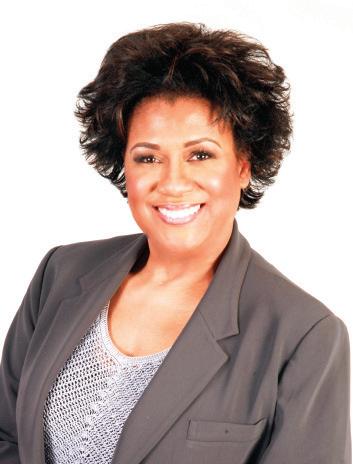





















Canada’s diverse and inclusive society, high-quality educational institutions and potential opportunities to work or immigrate after graduation have made Canada a leading destination for students from around the world. The International Student Program must be sustainable, and students must be protected from abuse within the system.
Over the past year, Immigration, Refugees and Citizenship Canada (IRCC) has taken significant steps to ensure the sustainability of the International Student Program by rooting out fraud and protecting students from bad actors and financial
vulnerability. As announced in our 2025–2027 Immigration Levels Plan, Canada’s temporary resident population will decrease over the next few years to align with our long-term economic goals and strengthen the integrity and quality of our temporary resident programs.
Today, the Honourable Marc Miller, Minister of Immigration, Refugees and Citizenship, confirmed that new regulations impacting the International Student Program have now taken effect, including the change to the number of hours international students may work off campus that was proposed earlier
this year. With this change, eligible students can now work up to 24 hours per week off campus while their classes are in session.
Moving forward, international students must apply and be approved for a new study permit before changing learning institutions. This change is in line with the important work we have been doing to strengthen the integrity of the International Student Program.
Designated learning institutions (DLIs) play an important role in protecting the student program against misuse.
Since 2015, IRCC has been working with DLIs to strengthen student compliance reporting. There will now be consequences for DLIs that fail to submit compliance reports or verify acceptance letters. With this change, a DLI could be suspended from welcoming new international students for up to a year for failing to provide the required information.
These improvements will provide greater oversight while supporting international students and safeguarding their academic experiences in Canada. IRCC




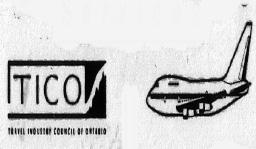


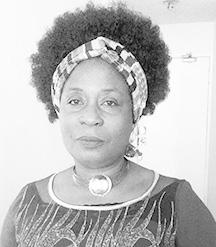






Publisher / Editor
Emmanuel Ayiku
Contributing Editor
Joe Kingsley Eyiah
Director of Operations
Comfort Ayiku
Community Reporter
Jonathan Annobil
Online Editor
Ebenezer Amankwah
The Ghanaian News
Publishes news and comments from the Community, serves Ghanaians across Canada with good source of information is committed to give good community Journalism
The Ghanaian News is published in Canada by The Ghanaian News Corporation
Editorial Office
1111 Albion Road, Suite 103
Etobicoke, Ont. M9V 1A9
Tel:(416) 916-3700
Advertising Fax (416) 916-6701
Website: www.ghanaiannews.ca
E-mail: cayiku@gmail.com info@ghanaiannews.ca
The Ghanaian News
Distributed FREE
Letters to the Editor
We encourage your feedback and value your comments. Please feel free to write to us. keep letters to a maximum of 200 words, include your full name, Telephone # and mailing address with all correspondence. Address your letters to the Editor
The Ghanaian News
1111Albion Rd., Suite 103 Etobicoke, Ont., M9V 1A9
Tel: 416-916-3700 or Fax: 416-916-6701 or e-mail us at info@ghanaiannews.ca
Articles appearing in various columns of the Ghanaian News are intended to generate civil and informed public discussions. You do not have to agree with opinions expressed by the writers. That should encourage you to write to express your own views. This is the way we generate lively and civil discussions in the community. Rejoinders are not forums for personal insults and we want readers to adhere to these principles.
We acknowledge the financial support of the Government of Canada through the Canada Periodical Fund of the Department of Canadian Heritage

Ghanaians will head to the polls on Monday December 7th to participate in crucial Presidential and Parliamentary elections to choose a President and a set of Parliamentarians for the next four years, 2024-2028. The last elections held in December 2020 saw Ghanaians giving President Nana Addo Dankwa Akufo Addo, and the New Patriotic Party (NPP) second term in office for another 4 years. However, the elections were very close with the electorate voting for a hung parliament. Thus, Ghanaians chose a narrow Parliamentary majority of just one more for the ruling New Patriotic Party (NPP). Also, the Speaker of Parliament was chosen from the opposition NDC party.
The 2024 elections are crucial and very keenly contested since the incumbent party (NPP) has voted to break the usual 8-year term of office that Ghana has been experiencing since 1992 for each of the two main political parties in the country (NPP & NDC) with exception of 2016 when the NDC government former President John Dramani was voted out of power after their first 4 years in office. Though the NPP is presenting the incumbent Vice President, Dr. Bawumia as their 2024 Presidential candidate, the NDC in their bid to come back to power are discrediting the incumbent Vice President as ‘driver’s mate’ who doesn’t deserve the votes of Ghanaians to make his party (NPP) break their 8-year term and extend their ruling of Ghana continuously beyond 8 years by any political party in the history of the country
On the other hand the NPP is campaigning against NDC party for bringing back former President John Mahama as their presidential candidate. They describe former President Mahama as ‘failed driver’ who run the nation down with country-wide energy crisis with the unpopular ‘dum so’ era and voted out of power during the 2016 national elections. Thus, making John Mahama a one (4-year) President from 2012 to 2016! He is therefore seeking second term of office as President of Ghana under the flagship of the NDC party.
Over the past year, and especially since the last three months, the candidates of the two major political parties, incumbent Vice President who is also the presidential candidate for the New Patriotic Party (NPP), Dr. Bawumia and former President John Dramani Mahama of the National Democratic Congress (NDC) have been crisscrossing the country. They have been touting their achievements during their respective rules as Presidents and Heads of their respective governments, and their future plans if voted to power.
The eight-year reign of Nana Addo Dankwa Akuffo and Vice President Dr. Bawumia has been remarkably different from that of former President John Dramani Mahama on many aspects of the nation’s life. Ghanaians have a clear choice before them to compare the performances of the two: former and present Presidents and their respective performances during their tenure. The choice is not difficult. Their records are clear in terms of a number of glaring factors including economic fortunes, standards of living, availability of utilities and infrastructure, top among which are the availability of a stable supply of electricity (power), water, and sanitation.
Also of greater importance to the electorate for consideration is the fight and control of the hydra-headed phenomenon called corruption. Politicians are always prone to stealing, and stealing big, from the nation’s resources with little or no regard for the pains these inflict on the general population, and both candidates and their respective governments have questions to answer in this domain. It is up to Ghanaians to judge which of these candidates and their governments stole big or less of the nation’s resources. In fact, the choice is so clear and glaring for Ghanaians to discern and make the right choice when they go to the polls.
On top of our national concerns is the battle against illegal mining known as galamesy in our country. The incumbent government has failed to live up to its promise of fighting this activity which has greatly damaged the country’s natural forests and water bodies.
Above all, the nation needs peace, total peace, in the days before, during and after the elections. Some irresponsible sections of the politicians and their supporters have been preaching mayhem and have even engaged in untoward behavior that is likely to threaten the peace and stability of the country in their quest to win political power. These people forget that if the country burns, there will be nothing to rule over.
The Ghanaian News therefore takes this opportunity to send a strong appeal to all our compatriots in the homeland, politicians, their supporters, and the general public to engage in responsible behavior in the run-up to the elections and in the period after. We also appeal to Ghanaians in the diaspora to advise their friends and family members at home with the same message of peace. We all have a stake in the peace and stability of the nation.
Above all, we appeal to the electorate in Ghana to turn out in their numbers on December 7, 2024 to vote and vote wisely. Voting for the right candidates and government will ensure peace, stability, development and better standards of living for our compatriots at home and for us in the diaspora. Elections, they say, have consequences, and one of such is the one coming up in Ghana on December 7, 2024. Vote early and vote wisely!!
The Lexus RX has topped this year’s list of the most stolen vehicles in Ontario as the auto theft crisis continues to worsen across the province and country.
Équité Association, an insurance fraud prevention group, released its annual list of stolen vehicles Tuesday, identifying the 2022 Lexus RX as the most stolen vehicle in the province. The 2022 Toyota Highlander, which was the most stolen vehicle Canadawide, was the second-most stolen vehicle in Ontario.
The Highlander, Équité said, is targeted by thieves due to the fact that it is globally serviceable and has a high resale value.
“Criminals continually shift demand to maximize their profits from the illegal sale of vehicles,” the report notes.
“It (The Highlander) also shares similarities with nearly all of the vehicles on the national list, where the vehicles are 2019 or newer models.”
The 2022 Dodge Ram 1,500 series took third spot on Ontario’s list. The vast majority of vehicles on the province’s list were SUVs and pickup trucks, with the exception of one car, the Honda Civic.
According to Équité, between 20212023, auto theft has increased by 48.2 per cent in Ontario, 57.9 per cent in Quebec, 34 per cent in Atlantic Canada, and just 5.5 per cent in Alberta.
“The most crucial step in fighting auto theft is stopping it before it starts,” Bryan Gast, vice president of Investigative Services of Équité Association, said in a written statement.
“One of the most common trends we’re seeing on the Top 10 Most Stolen Vehicles list includes newer vehicles with keyless ignitions.”
While he acknowledged that hundreds of millions of dollars have been committed by both the provincial and federal governments to combat auto theft, there is “much more to be done.”
“The crisis is far from over in Canada,” Gast said.
“A modernized vehicle security standard aligned to the ULC 338 Standards is needed to address current methods of theft across all manufacturers. In addition, fortifying the unauthorized access to vehicle electronic systems is imperative to stop the auto theft crisis from continuing in Canada.”
Other vehicles that made Ontario’s list this year include:
#4: Honda CRV (2020)
#5: Land Rover Range Rover Series (2020)
#6: Chevrolet/ GMC Suburban/ Yukon/ Tahoe Series (2023)
#7: Jeep Wrangler (2023)
#8: Toyota RAV 4 (2021)
#9 : Honda Civic (2019)
#10 : Ford 150 (2022)
Cp24
OTTAWA — The federal government is slashing immigration targets to levels that will flatten population growth as Prime Minister Justin Trudeau admits the government did not get the balance right after the COVID-19 pandemic.
The government had targeted bringing in 500,000 new permanent residents in both 2025 and 2026.
Next year’s target will instead be 395,000 new permanent residents, and that will fall to 380,000 in 2026 and 365,000 in 2027.
“In the tumultuous times as we emerged from the pandemic, between addressing labour needs and maintaining population growth, we didn’t get the balance quite right,” Trudeau said Thursday morning.
“With the plan we’re announcing today, along with previously announced measures, we’re making our immigration system work better.”
The change comes after significant criticism of the Liberal government’s increases to immigration and the impact of strong population growth on housing availability and affordability.
The goal is also to reduce the proportion of temporary residents to five per cent of the population over the next three years, down from 7.2 per cent in July.
The federal government estimates this
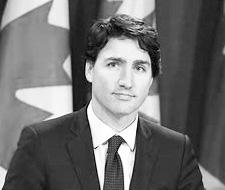
will mean the non-permanent resident population will decrease by 445,901 in 2025, 445,662 in 2026 and will increase modestly by 17,439 in 2027.
The Canadian Press reported in January that internal documents obtained through an access-to-information request showed federal public servants warned the government two years ago that large increases to immigration could affect housing affordability and services.
But Trudeau said on Thursday that businesses and provinces have also been part of the reason why the immigration system got out of control.
“Far too many corporations have chosen to abuse our temporary measures, exploiting foreign workers while refusing to hire Canadians for a fair wage,” Trudeau said.
“All while under the watch of provinces, some colleges and universities are bringing in more international students than communities can accommodate, treating them as an expendable means to line their own pockets. That’s unacceptable, and it needs to change.”
The Liberals’ pivot on immigration follows a rapid increase to the number of new permanent residents in Canada and a ballooning number of people coming to the country on a temporary basis. Federal ministers have conceded that has put pressure on housing and affordability.
Immigration Minister Marc Miller said the lower numbers will help with the housing shortage, estimating that by 2027, Canada will need to build 670,000 fewer homes to close the gap.
The federal government plans to prioritize temporary residents for permanent residency, expecting they will fill more than 40 per cent of the permanent residency spots.
“These people are a young labour pool. They’re skilled, they’re here,” Miller said.
“They’ve begun their process of integration and it doesn’t place the additional demands on the housing, health care and social services that we see with someone that comes directly from another country. It makes sense.”
The federal government is also increasing its francophone admission target for outside of Quebec to 10 per cent in 2027, up from six per cent this year.
In a new report published by BMO, senior economist Robert Kavcic writes that the plan will “take stress off the economy and infrastructure that has become almost debilitating in recent years.”
BMO estimates the changes mean population growth will be flat over the next two years. Statistics Canada recently reported that the population on July 1 was 3.2 per cent higher than a year earlier.
In addition to taking pressure off home prices and rents, Kavcic says the slowdown in population growth will also help reduce slack in the job market.
As high interest rates sent a chill through the economy, Canada’s unemployment rate climbed to 6.5 per cent in September, up a full percentage point from a year earlier.
Young people and newcomers have felt the brunt of the job market slowdown, facing significantly higher unemployment rates compared to other workers.
The Canadian Press
Economic immigrants hand-picked by the federal government are leading a growing exodus of newcomers from
Ottawa, November 19, 2024 – A new report from the Institute for Canadian Citizenship (ICC), conducted by the Conference Board of Canada shows that immigrants are leaving Canada in record numbers, particularly the highskilled immigrants Canada urgently needs.
“These are tradespeople who build our homes, nurses who care for our loved ones, truckers who facilitate commerce, and entrepreneurs who spur innovation,” said ICC CEO Daniel Bernhard. “And they are increasingly headed out the door.”
Bernhard notes that the concerning findings of the report, entitled, “The Leaky Bucket 2024: A closer look at immigrant onward migration in Canada,” coincide with 30-year lows in public support for immigration.
“Canadians are bombarded with commentary telling them that high immigration levels are to blame for homegrown challenges including
housing supply, inaccessible healthcare, crime, and even traffic,” said Bernhard. “Be careful what you wish for. This is globally coveted talent with global options. We need programs that entice them to stay, become active citizens and help fuel our economy.”
The report follows ICC’s first “Leaky Bucket” report released in 2023, also produced by the Conference Board of Canada. That original study revealed the alarming trend of immigrants leaving Canada in growing numbers to seek opportunity elsewhere. This year’s report provides updated figures and digs deeper into the characteristics of those immigrants who are leaving in greater and greater numbers. Highlights of the findings include:
• • Francophone immigrants to Quebec and Ontario are much more likely than Anglophone immigrants to leave Canada to seek opportunity elsewhere
• • The most populous cities in Canada—Montreal, Toronto
•
and Vancouver—see high turnover rates of immigrants. They function as hubs for immigrant communities to access resources and support for their settlement journey
• In contrast, fast-growing, midsized cities in other provinces (Calgary, Alberta, Halifax, Nova Scotia and Moncton, New Brunswick) see the opposite trend, but have potentially greater challenges retaining immigrants in communities outside of their larger cities
•
• The Atlantic provinces see the highest rates of onward migration in Canada in the shorter term (three to seven years after arrival), but the lowest rates longer term (25 years and more after arrival)
• • The highest two origin nations of immigrants leaving Canada are a combination of countries allowing dual citizenship (Lebanon) and those restricting citizenship only to that country (South Korea).
The Report includes recommendations to help stem the outward flow of newcomers, such as:
• 1. Support provinces and municipalities to understand onward migration trends and address unique challenges in their cities and regions.
• 2. Develop short-term and long-term strategies to address retention challenges at different points in immigrants’ settlement journeys.
• 3. Engage educational institutions and settlement service organizations in the retention conversation.
• 4. Consider the impact of language integration on retention and build out Francophone programs.
Read the full report here: “ The Leaky Bucket 2024: A Closer Look at Immigrant onward migration in Canada. ”
Canadian health care systems struggle to hold on to their young nurses, reveals a publication released this morning by the Montreal Economic Institute.
“For every 100 nurses we train in the country, 40 are leaving the profession before their 35th birthday,” states Emmanuelle B. Faubert, economist at the MEI and co-author of the publication. “This exodus of young nurses has been worsening for the past decade, contributing to our health care woes.”
By 2030, Canada is expected to suffer a shortage of 117,600 nurses
The MEI’s study shows that for every 100 Canadian nurses who started working in the field in 2022, 40 nurses below the age of 35 quit. This figure is up 25 per cent from 2013.
Ontario ranked third, with 35.1 young nurses leaving for every 100 entering in 2022. This is 83 per cent higher than in 2013.
The province of British Columbia saw the biggest drop in the number of young nurses seeking greener pastures, going from 46.3 for every 100 new entrants, down to 31.5 over the course of the last decade.
“Ontario used to be able to retain its nurses better than most provinces, with less than one in five young nurses leaving the profession only a decade ago,” added Ms. Faubert. “Much like in the rest of the country, Ontario needs to find ways to bring back more flexibility in health care workplaces to help with retention.”
Throughout Canada, nurses below the age of 35 are more likely to leave their current job (or leave the profession altogether) than remain where they are, according to a recent survey from the Canadian Federation of Nurses Unions.
Some of the most commonly cited concerns were a lack of control over their work schedules, including mandatory overtime and a lack of shift flexibility as principal sources of workplace stress.
Nurses who expressed a desire to quit their current position were also more likely to express interest in working for an independent nursing agency.
For those desiring better working conditions with more flexibility and better pay, independent agencies are considered a preferable alternative and often a final step before leaving nursing altogether.
“It’s understandable why governments would want to reduce their reliance on nursing agencies, given their costs, but that shouldn’t be done at the expense of patient treatment,” notes Ms. Faubert. “If governments want to reduce their reliance on independent staff, they need to work on giving young nurses more flexibility to make working for the healthcare system attractive to them once more.”
MEI’s publication
important to know someone you can rely on when it comes to your insurance and financial planning needs
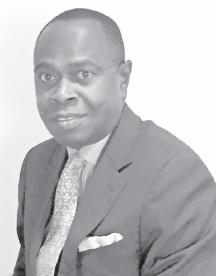
Tel: 416-630-4000 ext. 335 Fax: 416-630-4022 Cell: 416-578-3417 Email: asare@theleadingedge.ca
Dufferin Street, Suite 340, Toronto, Ont. M3K 1Z2





Every campaign season brings renewed attention to the amount of money influencing American politics, and who is spending it, and for what purposes. In particular, people are concerned about what is called “dark money.” For instance, recent media coverage has pointed to escalating dark money spending on both the Democratic and Republican sides.
The term sounds scary and raises the specter of shadowy people manipulating the nation’s politics. As a researcher who studies the American democratic system, I think it’s worthwhile to unpack what dark money is, what concerns it raises and what might be done to address it.
When people talk about dark money, they’re usually referring to money spent on elections that comes from sources that cannot be identified.
Federal and state laws impose some limits on contributions and require some political contributions and expenditures to be publicly disclosed. Candidates
for federal office, for example, must report their campaign donors to the Federal Election Commission. The FEC makes these reports available to the public.
Likewise, super PACs – groups permitted to spend unlimited amounts on independent electoral advocacy – must also report some information about donations, such as the identities of and amounts given by people who donate more than US$200 in a year.
But campaign finance disclosure laws have gaps.
Federal law, for example, allows certain entities – most notably nonprofits designated as “social welfare” organizations or trade associations under Sections 501(c)(4) and 501(c)(6) of the tax code –to raise and spend large sums on electoral advocacy without disclosing their donors.
Another dark money pathway involves making donations to super PACs through shell companies, which are companies set up for the purpose of hiding the financial activities of other people or groups –in this case, political contributions. Although super
PACs are legally required to report who they received the contributions from, if the funds come from shell companies, the super PACs may not know and are not required to disclose where the money actually came from. That information remains hidden from public view.
A lack of donor transparency raises multiple concerns. Voters may have a harder time assessing the validity of political messages or discerning whether candidates may be beholden to certain interests. Regulators and watchdogs can have trouble detecting illegal activity, such as campaign spending by foreign nationals. And unscrupulous people and groups can spread misinformation or destructive rhetoric without being identified or held accountable.
While discussions of dark money usually focus on where it comes from, the term can also describe a lack of transparency about where it goes.
Under federal law, campaign committees must report their direct disbursements, such as payments to vendors or consultants. These vendors and consultants, however, sometimes function as passthrough entities that receive campaign funds and then purchase undisclosed goods and services. And any of these recipients can be set up as shell companies, making the flow of funds even more difficult to track.

For instance, Hillary Clinton’s 2016 campaign and the Democratic National Committee faced FEC complaints for failing to disclose indirect payments made through the campaign’s law firm to researchers who compiled a dossier on Donald Trump’s Russia ties. The Clinton campaign and the DNC paid a fine to settle the matter without conceding wrongdoing.
But enforcement can be difficult. In 2020, a watchdog group filed an FEC complaint alleging that Trump’s reelection campaign directed hundreds of millions of dollars to a pass-through entity in an improper effort to hide its expenditures –which included payments to top advisers and family members that, by law, would have otherwise been disclosed. The FEC dismissed the Trump complaint in 2022 when commissioners deadlocked 3-3 on whether to pursue it.
As with a lack of donor disclosure, a lack of expenditure disclosure can deprive voters and regulators of valuable information. Lack of transparency can also invite
From Joe Kingsley Eyiah, Educator/Social Commentator
‘God bless our homeland Ghana and make our nation strong. Bold to defend forever……….’ So that lyrics of the national anthem of the beautiful country, Ghana goes! And the pledge of this wonderful tropical country in Africa reads in part, ‘I pledge myself to the honour of Ghana, my motherland…’
Indeed, this is my third visit to my motherland, Ghana since I came home to bury my mother in 2013. This time I have come home to honour and defend my homeland Ghana, as a retired seasoned classroom teacher from my second home, Canada.
I send my special greetings from Ghana to all and sundry around the globe.
As some of you may be aware, Ghana is gearing up for Presidential and Parliamentary elections on

December 7, this year. The tension in the national campaign for votes by political parties (specifically the incumbent NPP and main opposition NDC) which is described from afar as being acrimonious and wary is NO WHERE NEAR THAT IN THE COUNTRY I have just visited. Thank God! We are all praying for successful and peaceful elections
in the country soon as it happened in USA early November this year against the background of tension as well as predictable uncertainties.
November sees major heavy rains but for short periods in Ghana so the weather here is not too hot as feared by some from the cold countries of the world.
Food appears to be in abundance in the country but food prices are a bit higher than expected. Now let’s talk about roads in the country. The highways linking the major cities are good but major constructions being undertaken on some of them (e.g. Kasoa-Winneba highway) have made travelling on them very laborious. As for some inner city roads the least spoken about them the better. Some of these heavily travelled roads are full of what I would describe as ‘elephantpot’ holes making commuting
time on them unnecessarily long. However, some MPs in Accra whose constituents have seen such inner roads with pot holes are embarking on rehabilitating them due to the coming Presidential cum Parliamentary elections in the country this December. I have as yet travelled upcountry in my beloved Ghana so I would not write about roads upcountry.
All said and done, Ghana is developing very fast with its residential settlements. Beautiful houses are springing up everywhere in the cities and urban areas. Kudos to Ghanaians living abroad. Our brothers and sisters back home here are glad to see us and have enthusiastically welcomed us back home. Thanks to the amazing Ghanaian hospitality as usual. Greetings galore from Ghana as we here gear up for the upcoming elections and Christmas festivities this year!
cont’d from pg. 9
What is ‘dark money’ political spending, and how does it affect US politics?
questionable campaign practices, such as using donated funds in ways that enrich candidates, campaign staff or their associates.
Stalled federal reforms
Proponents of greater campaign finance transparency have had little success pressing federal lawmakers and regulators to address dark money.
Since 2010, congressional Democrats have been introducing legislation known as the DISCLOSE Act. Among other requirements, it would make dark money groups reveal major donors and restrict the use of shell companies to conceal donors’ identities. While versions of the bill have passed the House, they have repeatedly stalled in the Senate. Opponents maintain that these measures would infringe people’s privacy rights and chill constitutionally protected speech.
Advocates have also made minimal headway persuading Congress or federal agencies to adopt new disclosure regulations or tighten enforcement.
The FEC, which has an even partisan split among its six commissioners, has often been unable to get a majority to agree to take action. And the FEC’s most notable recent decisions have been to loosen, rather than tighten, campaign finance rules. Congress has barred the Securities and Exchange Commission from establishing new political spending disclosure rules for public companies, although some companies self-report more than the law requires.
States’ efforts to curb dark money
Dark money is also an issue in state and local elections. The strength of state and local transparency laws varies. Because these elections typically receive less attention and scrutiny than federal elections, money sometimes flows even more opaquely.
Unlike the federal government, a number of states and localities have bolstered their disclosure rules in recent years. Arizona, California, Colorado, New Jersey and Washington, for example, have passed new laws requiring more donor
information, including about the original sources of funds that are transferred between multiple groups before being spent on electioneering.
Meanwhile, states such as Iowa, Massachusetts and Texas have adopted laws requiring campaigns to provide details about how consultants and vendors spend the campaign’s funds.
Even in these states, disclosure gaps remain. The reality is that efforts to improve transparency can seem like a game of whack-a-mole: Each new round of regulations tends to generate new workarounds. But the experiences in these states and elsewhere may offer models and lessons for other jurisdictions.
Beyond the political challenge of getting stronger transparency regulations adopted, proponents of such measures also face potential constitutional challenges by opponents of disclosure.
In multiple cases, including the 2010 Citizens United v. FEC ruling, the U.S. Supreme Court has rejected First Amendment claims brought by political spenders who wished to conceal their identities. In that case, the court observed that transparency helps the electorate “make informed decisions and give proper weight to different speakers and messages.”
However, the Supreme Court has also recognized a right to engage in anonymous political speech. And in recent years, the court’s conservative supermajority has become somewhat more skeptical of disclosure rules, including in a 2021 case, Americans for Prosperity Foundation v. Bonta, which overturned a state law requiring charities to identify major donors. In her dissent, Justice Sonia Sotomayor warned that the court’s argument could be applied to campaign finance disclosure regulations.
1. Therefore, even if public momentum builds for stronger transparency regulations, the Supreme Court could stand as an obstacle to such reforms.
2. Staff Attorney, State Democracy Research Initiative, University of Wisconsin-Madison
By Joyceline Natally Cudjoe
Renowned actor Adjetey Anang has called on screenwriters to tell stories that will educate Ghanaians against illegal mining popularly called “galamsey.”
According to him, galamsey is destroying the water bodies in Ghana and threatening livelihoods.
Speaking in an interview with Max Tv in Accra recently, the actor stated that the current situation was devastating and cautious efforts were needed to mitigate its effect on livelihoods.
“We should have dealt with the issue of galamsey long time ago. We shouldn’t have reached this level where our water bodies have to be polluted for communities around those rivers to find it difficult to attend to their social amenities. It’s totally no, no,” he lamented.
Adjetey Anang therefore underscored the need for
stakeholders including the government and the citizenry to collectively work in eradicating the menace.
He maintained that due to the devastating impact of the illegal mining on livelihoods, he has endorsed initiatives seeking to combat the destructive practice.
“It’s not all about people going out to make noise on the streets. Those of us who are in the creative space, let’s begin to craft stories that will speak to it because sometimes our powerful tool is to leave a visual image in the minds of people to make them realize the effect of galamsey in our lives,” Adjetey Anang added.
He said that visual images were a powerful tool in telling stories and also expressed the need for musicians to equally use the singing medium to champion the antigalamsey campaign.
The number of children and families living in poverty in Toronto was the highest in all of Canada in 2022, a new report has found.
Released on Tuesday, Fighting for Our Future: Child and Family Report Card, Toronto 2024 revealed that the number of impoverished children in the city is up by record numbers two years in a row.
Between 2020 and 2021, child poverty in Toronto increased 3.8 percentage points from 16.8 per cent to 20.6 per cent, which is highest amount on record in a single year.
That record was broken between 2021 and 2022, when the rate jumped by another 4.7 percentage points to 25.3 per cent, which amounts to 117,890 children living in poverty.
The report’s authors, SPT and Family Services Toronto’s Campaign 2000, analyzed the latest available taxfiler and census data from 2022 to determine their findings. They specifically looked at how child poverty rates have increased in Toronto’s 25 wards since 2020 – and they have in all of them.
“In a city as wealthy as Toronto, there should be no reason why over a quarter of our children are living in poverty,” Jin Huh, SPS’s executive director, said in a release.
“In fact, in some census tracts, we have seen child poverty rates as high as 61 per cent.”
On a granular level, the report found that the city’s downtown east area

has been especially affected by child poverty with Toronto Centre topping charts at 36.6 per cent.
The ward, bounded by the Don Valley Parkway to the east, Bay and Yonge streets to the west, The Esplanade and Mill Street to the south, and Rosedale Valley, and Charles and Bloor streets to the north, has one census tract in Moss Park where child poverty reached 56 per cent.
Scarborough-Guildwood came in second with a child poverty rate of 34.1 per cent, while Humber River-Black Creek placed third with 33.9 per cent.
In nine of the city’s wards, 30 per cent or more children and families are living in poverty.
Census tracts are smaller geographic area than a ward and provides greater insight into neighbourhood-level data. Most of the child poverty in the city was found to be in census tracts in the inner suburbs, including northwest Toronto and Scarborough, and the downtown core. Forty of them were found to have extremely high rates ranging from 40 to 61 per cent, according to the report.
Chris Brillinger, the executive director of Family Services Toronto, said while homeless is highly visible in the downtown east community where he lives and works, child and family poverty in general tends to be something that is a “bit hidden” and
By: James A. Kwaateng, B.A. (Hons), LLB (Hons)
Generally, a person has a legal right to represent himself in all immigration matters just as he has the right to self-representation in most criminal and civil matters. However, where certain categories of people such as children and mentally incapacitated are involved in cases, it may be mandatory for such people to be represented by a counsel. A person may also be advised to avail himself of the services of a legal counsel if the seriousness and complexity of the case at issue so necessitate.
Immigration forms and portals, as well as many other legal forms and portals, are simplified to facilitate self-representation. In fact, the instructions and advice contained in some of the forms might even discourage applicants from availing themselves of services of legal counsels. While the immigration department denies any obligation to give legal advice to applicants, it nonetheless appears to dissuade applicants from seeking such advice by stating in application kits that if applicants choose to hire a representative, they cannot expect “a more favourable outcome”.
Immigration and other court officials would give their clients basic procedural guidelines just

to facilitate smooth provision of services by the immigration and court personnel. The guidelines are not provided with the view of enhancing the success of the clients’ applications or cases. Immigration and court officials are generally unwilling, and are not supposed, to discuss the substance of the law as it applies to an applicant’s case with the applicant.The Federal Court has even declared in an immigration case that visa officers are not under any obligation to provide legal advice to applicants or even to reply to requests for such advice.
Generally, the onus is on the applicant to provide all relevant information and documentation in support of their cases or

applications. Applicants are free to submit to immigration authorities or decision-makers in courts and tribunals whatever document and information they deem worthconsidering. The decision maker’s role is to simply review what is in front of him and come up with a decision based on the totality of the information and documents presented.
Let us focus narrowly on immigration. If an applicant decides to appeal against a sponsorship refusal decision, the applicant should, first and foremost, determine that the decision being appealed is wrong in law, or in fact, or in mixed law and fact, or a principle of natural justice has not been observed. The applicant should also be able to estimate the extent to which the appeal is winnable on a balance of probabilities.
It is doubtful if a lay man can competently do the abovementioned assessments.
In immigration hearings and appeals related to criminality and other forms of inadmissibility, for instance, the person involved must clearly know and understand the facts of the case and legal issues involved and should also be able to assess chances of success and reasonableness or necessity of proceeding with the case. At a refugee hearing, for instance, greater focus would likely be on identity, credibility, subjective fear, generalized risk versus particularized risk, availability of state protection, internal flight alternative and legal residence in another country. This will certainly require some professional assistance and guidance. Do not proceed with a case or file an appeal just because that is permissible under the law.
From the perspective of cost, one may gain nothing from proceeding
with immigration matters without a legal counsel. Should an initial application fail, one should bear in mind that the subsequent appeals and judicial reviews could be very costly – in terms of time and money. Also, in many situations, the grounds for appeal in applications processed without legal guidance are almost alwaysweak. Thus, a counsel would be faced with an uphill or near-impossible task of convincingdecision makers at the appeal stage to overturn negative decisions in respect of such applications.
One should also bear in mind that decision makers, in the course of making decisions, do not take into consideration the fact that a client represented himself. Equal weight is attached to mistakes and omissions made by both unrepresented clients and clients with counsels. After all, the decision to go it alone was a free decision of the applicant and ignorance of the law is no excuse.
Immigration laws and regulations are becoming more complex and incomprehensible. Contact a professional in immigration law whenever necessary. Don’t take chances. What you consider to be a trivial immigration issue could be a complex immigration matter that could cost you dearly.
James A. Kwaateng is an Immigration Law practitioner with offices located at 168A Oakdale Road, Suite 4, Toronto, Ontario. For thorough discussion of your immigration and related social and legal issues, contact him at telephone number (416) 743-2758 for an appointment.

By Edmund Agbeko, Toronto, ON

As Rachel Gyabaah pens it, in Ghana’s quest for gold, a far more precious resource is being destroyed; water. Rivers and viable forests that once sustained communities and the country at large are now tainted with deadly mercury and other toxic substances. The destruction of forest reserves and wild and aquatic life continues unabated. These devastating fallouts of illegal mining, or “galamsey,” pose existential threats to our very survival and Ghana’s sustainable development. Although the impact on the environment and human health is undeniable, the hidden costs of this devastation extend even further into the pockets of everyone in Ghana.
The Poison for Gold campaign, launched by TrustAfrica and Multimedia Group as part of the RECLAIM Sustainability Programme, funded by the Dutch Ministry of Foreign Affairs, has brought much-needed attention to the actual drivers of the galamsey menace. The campaign reveals that it’s not just about gold extraction; it’s about the survival of an entire ecosystem, livelihoods, and ensuring access to safe and clean water for future generations. A key objective of this initiative is to enhance alternative livelihoods in mining communities while advocating for responsible and innovative smallscale mining.
One of the most alarming aspects revealed by the campaign is the rampant use of toxic substances and heavy metals in illegal mining operations. Chief among them is mercury. Mercury is used to extract gold from ore, but in the process, it seeps into rivers and soil, with a high tendency to contaminate water sources and subsequently the food chains cultivated in these areas and nearby communities. The Poison for Gold campaign, through investigative journalism and community engagement, has established how communities dependent on rivers such as the Pra, Ankobra, and Offin for drinking water and fishing are being slowly poisoned by mercury and other heavy metals. This has led to serious health complications, including neurological damage, kidney failure, respiratory conditions, and even birth defects. The campaign’s effective media expositions and advocacy, along with testimonies from affected communities, showcase the damning effects illegal mining is having on Ghana’s most vulnerable populations. Additional media reports have confirmed that many women in these galamsey communities are now experiencing miscarriages.
Illegal mining has turned some of Ghana’s most important rivers into toxic wastelands. The Ghana Water Company Limited (GWCL),
responsible for providing safe and clean drinking water to millions, now faces the costly task of treating heavily polluted water because of the galamsey menace. Due to this contamination, water treatment plants along the Pra and Birim rivers are forced to use up to five times more chemicals to purify the water for consumption, thereby raising the cost of treatment. This increased cost is passed on to consumers, leading to higher water bills. The financial burden is eventually borne by Ghanaians including the poor and vulnerable whose water sources have been destroyed in the relentless pursuit of gold. Beyond this increased expenditure, there is no guarantee that the water is entirely safe or free from harmful substances like mercury, which can lead to long-term health issues such as neurological damage and kidney failure. According to recent reports, mercury can remain in water for several years.
The irony is bitter: while illegal miners extract gold that often leaves the country for foreign markets, Ghanaians are left paying more for clean water. It’s as if a golden apple is being plucked from the hands of the people, leaving behind a poisoned well. This prevailing cycle, where the extraction of one resource leads to the degradation of another, mirrors a classic scenario in the animal kingdom where a predator overhunts, devastating the ecosystem in the process. In this analogy, illegal miners are like predators, relentlessly chasing gold without regard for the ecosystem’s balance. When predators overhunt, the prey population collapses, destabilizing the environment. Similarly, galamsey is destabilizing Ghana’s water systems, affecting not just the environment but also the health, food security, and economy of the country.
The financial cost of treating polluted water is only a fraction of the dangers facing Ghana. The Poison for Gold campaign has also highlighted the devastating effects on farming and food security. Farmers rely on these rivers to irrigate their crops, but as clean, safe water becomes scarce and more toxic, agricultural yields are plummeting. This in turn affects Ghana’s foreign exchange, as galamsey also threatens cash crops like cocoa. Rising food prices are already a challenge, and this trend is expected to worsen. The destruction of farmlands through illegal mining reduces agricultural productivity, pushing the country further from achieving Sustainable Development Goal 2 (Zero Hunger).
Climate change further exacerbates the situation. The effects of galamsey compound the impacts of erratic rainfall, droughts, and floods, all of which already threaten food production and security. With food insecurity on the rise, Ghana’s goal of attaining SDG 2 could be reversed, putting vulnerable populations at risk of hunger. Beyond the environmental and financial implications, a human tragedy is unfolding. The mercury used in gold extraction seeps into rivers and soil, entering the food chain through fish and crops. The Poison for Gold campaign has revealed heartbreaking stories of children born with birth defects, adults suffering from unexplained illnesses, and communities lacking access to safe and clean drinking water.
It is clear that the fight against illegal mining cannot be won through law enforcement alone. The Poison for Gold campaign advocates for a holistic approach, engaging all stakeholders government, traditional leaders, civil society, media, local communities, and players in the galamsey industry on a sustainable basis. As global attention turns to climate change mitigation through COP negotiations, Ghana’s battle with illegal mining becomes part of a larger conversation. The costs of climate inaction rising temperatures, increased pollution, and damaged ecosystems are already being felt. Galamsey accelerates environmental degradation, making it harder for Ghana to meet its climate commitments and increasing its vulnerability to climatedriven disasters.
To turn the tide, Ghana must begin viewing the galamsey menace as an abuse of basic human rights to clean and safe water, and as an affront to the Constitution for failing to protect lives, properties, and the environment. The question of where gold from illegal mining ends must be answered to avoid a mineral curse or blood-diamond scenario in Ghana. Addressing illegal mining is essential not just for environmental protection but for the nation’s future. The escalating cost of treating water is a symptom of a deeper crisis threatening livelihoods and societal stability. Ghana faces a clear choice: either act now to restore ecosystems and protect future generations, or continue to allow illegal mining to destroy water sources and increase the cost of living. Water is life, not gold.
Child poverty in Toronto up by record numbers, new
cont’d from pg. 10
not often top of mind, despite the great challenges many households face to make ends meet.
He said many families experiencing poverty are struggling on a daily basis with many parents being forced to make the seemingly impossible decision to work more and parent less to provide for their kids.
“Literally, it’s how am I going to put a meal on the table tonight,” he said, adding the number of children impacted by food insecurity is higher than ever before in Toronto and across the country.
Brillinger noted that Toronto Centre is a part of the city where there is a high concentration of subsidized family housing, including several co-ops. He also said the downtown east area is one of the few remaining places in the core that has “relatively” affordable housing stock.
A women walks past a child care centre in Toronto. THE CANADIAN PRESS/ Nathan Denette
Beth Wilson, a senior research and policy analyst with Social Planning Toronto and one of the report’s coauthors, said more than half of all children in one-parent families live in poverty.
“That’s three times the rate of children in couple families. We’re seeing how the elimination of pandemic-related benefits has been disproportionately impacting these families, most of whom are led by women. Without meaningful interventions, the problem is likely to get worse,” she said in a release.
The report also found that child/family poverty in the city disproportionately
affects Indigenous, racialized, newcomer, and non-permanent residents.
Huh, of SPT, noted that every child has the right to live free from poverty, adding that her organization’s research has found that government policies can have a “significant and positive impact” on poverty rates.
“The solutions … are available to us, but they require political will,” she said.
Brillinger agreed.
“The government needs to step up to support people and we need to work together to move the bar,” he said, adding during the pandemic government support helped significantly reduce child poverty – at least temporarily.
“It’s amazing what we can accomplish when we put our minds together.” … We know we can do better.”
Among other things, SPT’s report calls on the City of Toronto to take a human rights approach to affordable housing, food security, and access to transit and technology, ensure livable incomes and inclusive economies, address systemic inequality, and develop a fully funded Third-Term Action Plan for its Poverty Reduction Strategy.
Social Planning Toronto’s report, which was supported by Family Service Toronto’s Campaign 2000, was released in tandem with two other similar reports titled Tackling Child Poverty: A Call for Bold Solutions and Ending Child Poverty: The Time is Now. These studies found child and family poverty rates have been similarly increasing in Ontario and across Canada. CP24.com
By Ghanaian News Staff Reporter, Toronto, ON
A name is a trademark and a distinctive feature and description of a thing, an object, material and a substance both physical and non-physical forms and of people showing the uniqueness like a given word(s) that qualifies it. Being informative, communicative, descriptive and as an accessible specification of the thing in quote. Name is therefore, the legal tender of all things in a language that can be used to express and constitute the exact analytical conceivability of the mind.
In the Akan language and culture, it is believed anything without a name doesn’t exist. And all names of all things including the supernatural world are believed to exist so long as they have names. So, it is equally important and highly significant for every new born baby to be given a name which he/she can legally and accordingly answer.
The African Child, nevertheless also needs to be known and recognized and be given a name on the seventh day after birth. In the same culture, names can be divided into three or four categories known as the automatic names, given names, and the first and second appellations and a long name to run through.
Automatic names are the ones a child or thing answers to automatically at birth according to the day, time, event, calendar, horoscope, accidental, bestowed blessings and sometimes a created festival and nick names and or to its biological origination. For example, a calf of the sheep is called sheep, and the young’s of lily is also called lilies and the native African child an African but should also has native given and automatic name(s). The native African here, is referred to the Akan speaking people namely the Fantis, Akims, Ashantis, Akwapims, Kwahus, Ashanti-Akims, Denkyiras, Brongs, Ahafos and all the Twi speaking people leaving in the present Ghana. It also includes the Eves, Gas, Adangbes, Dagombas, Frafras and the Dagates.
For example, His Excellency Kofi Annan was born on Friday and all male issues born in (to) this day answer to Kofi and the females Afua automatically. This is his automatic name that will be more than hard to dispense with. “KOFI” can as well be known as his ‘ghost’ name and it is stronger than any changeable and given names he may answer later.
That is to say, both boys and girls equally answer to such automatic
names in all the seven days of the week. Beginning from Monday; Kwadwo, Adwoa; Kwabena, Abena; Kwaku, Akua; Yaw. Yaa; Kofi, Afua; Kwame, Amma and Kwasi, Akosua; all ending on Sunday. Other names like Okoda - War Child, born in the first and second world wars, Ohum at Ohum festival, Atta and Ataa twins, Tawia, one next after twins, Nyankomago next to Tawia and in the recent times Brenya to children born in Christmas days. Wia to the Sun, Bo and Bo the Stone or September born and Ahyia, an unlucky child. All these names are automatic and must go with given names where appropriate. Sometimes as well with another automatic name(s), which will go together with second and third automatic and appellation names. As said, Kofi going with Annan another automatic name. Some automatic names are Piesie meaning first born, Manu, second male or female child, Mensa and Mansa for the third consecutive male or female child, Annan or Anane for both fourth consecutive male and female children, Nsia for the sixth male and female children, Eson, Ason and Nsonowa, the seventh, Botwe the eighth, Nkrumah the ninth, Badu the tenth, and Duku the eleventh etc.
Given names are the names the biological parents especially the father, supported by the wife and both families, the native folks and well wishers agree to be given and confer to the baby after lengthy consideration and questionnaire of the total summation of all things needed to be put into consideration by weighing the pros and cons of it to befit the child. Call it character wise, natural behavior, command of respect, sincerity, response to work, temperament, drinking attitude, to marriage, to money and wealth and his natural inborn characteristics towards his fellow man, wife(s), children and family life and above all how successful the one is or can be. All these and many more are considered before a child is given a name or named. This is a scrutiny of work since the name is believed to have direct and indirect effect and influence of a child and his entire life. To make it easier and lovely, the biological parents put two names down prior to delivery. One name is for a male offspring and the other for a girl and a female and it’s kept secret in between them till the ceremony.
Naming ceremonies take place early in the morning before the yellowish tropical African sun turns white and
scorching to destroy the lenses to affect the baby’s sight being the first time he/she is brought out to see the sun and life. And at the same time to preserve and prevent the skin from cancer but rather enjoy the free vitamin ‘C’ rich natural sun bath. It is on the seventh day he qualifies to be part of creation and as such needs to be given a name. This tells about the natives strong believe in creation and the seven days God used. Going through the seven days successfully qualifies one to be legal and bona fide part of it. The initiation and quickening period left to be written in the long tribal and clan’s record, to be orally registered as human and part of the clan. And after the naming ceremony, the child qualifies to be buried and cried for as an adult if he dies.
This day, the families of the biological parents meet especially that of the father where the grand parents, aunts, well-wishers and the natives come to celebrate the ceremony and make it highly recognizable. And an interim linguist is appointed. The child is gorgeously dressed in traditional animal skin, or ‘fugu’ and smock jumpers. The one to be named after is seated in a comfortable chair and as chairman for the ceremony. The child is put on his laps. The linguist holds two calabashes, presently glasses filled with pure clean drinking water and the other with local gin, “Apeteshi” or Schnapps aromatic gin.
They pray in the form of libation calling on to Onyankopong, the Creator to come and chair and bless the ceremony, the child, the parents and the people who have met there and their state.
The given name(s) will be called to the child three times. For example, “As from today, you’re known and called Frempong, Yaw (he is Thursday male born) Frempong. You are named after your grand parent the king, Nana Frempong Manson 11. We hereby give you water to drink (water will be served on a little spoon from the calabash or glass) and this local gin to taste, apeteshi (and the king or the one the child is going to answer to his name will dip his middle finger in the alcohol and touch his tongue and the linguist will continue) for you to know the difference between water and alcohol. To help you learn how to speak the truth, and stand to your words calling water, water and alcohol, alcohol. Let your “yes” be yes, and your “no” be no. Growing to become a man of honesty, prosperity
and integrity, and strong to stand the ups and downs of life and fight to be successful; to maintain and continue the dignity of your parents, the royal family, the king and your state and kingdom. Standing firm to your sex as man, and giving birth to dozens of children, “ma dua sa” to the third and fourth generations. This will be repeated three times. Each time the automatic, given and the appellation names will be called and the child will as well drink and taste the alcohol The linguist will finally call all his names, your full name as from today is, Yaw Frempong Manson Kotobre (the golden crab).
The remaining people will congratulate the speaker by saying, “ Mo ne kasa” or ‘well said’, and everyone will be served with the alcohol or wine as preferred to be his undersign and signature as witness to the ceremony. A fowl, sheep, cow will be slaughtered and a banquet will be held in the name and meaning of the ceremony. The child will as well taste the food on a finger tip telling he is registered and accepted as human being, and has become part of creation and the family and has the natural and statutory right to live. Right from here, the child will be called directly by his name. One of the most important things why naming ceremonies usually take place in the morning is to make sure the name stays in the peoples memories before it is forgotten by the next day since they didn’t know how to read and write.
The people begin to give presents to the baby. The king can give a ring, a sheep and land property to him. Aunts do give good gifts according to how good their relationship is with them and the wife as well. Poor people who do not have material gifts come with water, eggs and chicken or fire wood and foodstuff to express their willingness and kindness.
If she is a girl and she is born on Saturday, and her given name is Birikoramaa her full name will stand as, Amma Birikoramaa, Abode, Nkoa dan wo.
Today, this culture may be no more. Islamic and Christian naming ceremonies and names, Mohammed, Ishaque, Asetu, Kadijha; Peter, Samuel, Daniel, Mary and Naomi have superseded traditional and cultural meaningful names. But no matter how ridiculous a native child may look ‘john’ in his John remain another John to tell.
Contact us for your
Individuals
Business
Charity/Non Profit
INSURANCE
Life, Disability/Self-employed Critical Illness
INVESTMENTS
RRSP
Guaranteed Investment Funds
RESP (Educational savings)
DEBT MANAGEMENT
Credit cards * Line of Credits, etc.
MORTGAGES
Consultations * Loan

Kwabena
Ntim Andoh, BSc MBA
23 WESTMORE DR., # 301B, Etobicoke, ON, M9V 3Y7
Tel/Fax: 416-551-1902
Cell: 647-405-8852
Email: Kidoo@rogers.com
By Joyceline Natally Cudjoe
Kumawood actress Oheneyere
Mercy Asiedu has reiterated calls on the government to enforce the Film Act with a Legislative Instrument to promote the creation of a conducive environment for the local movies to enjoy 70 per cent airplay on the national television stations.
The film act will among other things provide the legal framework for the production, regulation, nurturing and development of the Ghanaian film industry, and for the distribution, exhibition and marketing of films.
According to the actress, the influx of foreign movies are swaying investors away from funding Ghanaian movies.
Speaking on the sidelines of the Ghanaian movie industry in a recent media interview, Mercy Asiedu said Nigerian movies were overshadowing Ghanaian movies due to the investors the industry has attracted.
She lamented that the national televisions were bombarded with foreign movies which were shown on prime time while the local movies were shown late night, hence driving investors away.
“No investor will invest in contents that are shown at late nights while the foreign movies are being shown at prime time,” Mercy Asiedu lamented.
She noted that the Nigerian government has implemented the 70/30 policy for 70 per cent of their local movies to be shown against

Mercy Asiedu
30 per cent foreign air play which Ghana movie industry had not gained that privilege to enjoy.
Mercy Asiedu further indicated that the Nollywood industry was far advanced in technology unlike the Ghallywood and Kumawood which couldn’t properly adjust and integrate to the technological advancement.
In solving the problems that the Ghana movie industry is facing, she said the industry was doing its best to embrace the digital channels in marketing their movies and also expressed the need for the government to enforce the Film Act with a legislative instrument to revive the ailing industry.
The process to get the Film Bill passed into law started in 2013 when the then Ministry of Information and Media Relations submitted the reviewed cinematography act to cabinet to seek its approval to provide the machinery to streamline the film industry in Ghana.
After the bill was passed by parliament in 2016, it is yet to be enforced into law.
• Review your investments ( RRSP, RESP, Mortgage, Insurance) regularly with your advisor
• Learn how to come up with a simple household budget
• Manage your debts before they take over your life
• Contact me to help you achieve your financial goals
U.S. and Canada to co-ordinate open hours on both sides of the border, Border Services says
People who frequently cross the Canada-U.S. border will find they have a shorter window for travel come the new year.
The Canada Border Services Agency says as of 12:01 a.m. local time on Jan. 6, 35 ports of entry will adjust their hours of service as a way to enhance security for both Canada and the U.S., a news release said Monday.
There will be hours adjustments seven days per week at 12 ports of entry in Manitoba, 10 in Quebec, six in Saskatchewan, four in New Brunswick, two in B.C. and one in Alberta. Details are on the Canada Border Services Agency website.
Time changes vary depending on the border, with some ports of entry shortening open times by one hour and others around five hours. Commercial entry time changes vary across the country.
The updated service was created in collaboration with the United States and based on an analysis of operations, peak periods and services required at each border, with an
alternative option to cross the border within 100 kilometres, the border service said.
The U.S. will also adjust their crossing times, in order for both the countries to co-ordinate open hours to allow the return of inadmissible travellers and goods back to the other country, the CBSA news release said.
The shift in hours will result in more resources for border officers to manage enforcement activities and help with traveller processing at busier ports of entry, the release said.
U.S. Border Patrol encounters along the border with Canada have been rising sharply since the beginning of 2023.
Rebecca Purdy, senior spokesperson for the Canada Border Services Agency, said in an email to CBC that changes at the Canada-U.S. border were not made in the wake of Donald Trump’s recent election as president.
“Analysis and planning for this adjustment in service took place over several months and is not related to the U.S. election,” Purdy wrote.
CBC News
GST/HST holiday will last from Dec. 14 to February
Prime Minister Justin Trudeau announced Thursday a suite of new measures meant to alleviate some of the affordability pressures people have been experiencing in the post-COVID era — including a two-month GST holiday on some goods and services.
The Liberal government will also send $250 cheques to the 18.7 million people in Canada who worked in 2023 and earned $150,000 or less.
Those cheques, which the government is calling the “Working Canadians Rebate,” will arrive sometime in “early spring 2025,” Trudeau said.
The GST/HST holiday will start on Dec. 14 and run through Feb. 15, 2025.
People will be able to buy the following goods GST-free:
• Prepared foods, including vegetable trays, pre-made meals and salads, and sandwiches.
• Restaurant meals, whether dine-in, takeout or delivery.
• Snacks, including chips, candy and granola bars.
• Beer, wine, cider and premixed alcoholic beverages below 7 per cent alcohol by volume (ABV).
• Children’s clothing and footwear, car seats and diapers.
• Children’s toys, such as board games, dolls and video game consoles.
• Books, print newspapers and puzzles for all ages.
• Christmas trees.
With these exemptions, all food in Canada will be essentially tax-free.
“For two months, Canadians are going to get a real break on everything they do,” Trudeau said at a media event in Newmarket, Ont.
“Our government can’t set prices at the checkout but we can put more money in peoples’ pockets. That’s going to give people the relief they need. People are squeezed and we’re there to help.”
If a family spends $2,000 on the eligible goods in the two-month period, they can expect to save about $100, according to government figures.
In provinces with the HST — where the GST is harmonized with provincial sales tax — the savings will be larger, the government said.
Provinces with the HST include Ontario, Newfoundland and Labrador, Nova Scotia, New Brunswick and Prince Edward Island.
In Ontario, for example, the same $2,000 basket of eligible purchases will result in estimated savings of $260 over the two-month period, the government said.
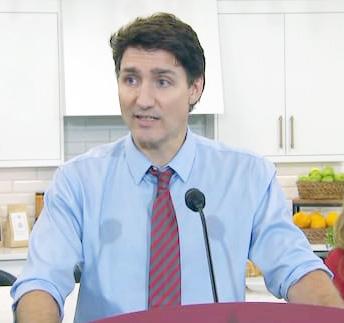
These savings will come with a big price tag for the federal government.
The tax holiday will cost the federal treasury an estimated $1.6 billion in foregone revenue. The $250 cheques will cost about $4.68 billion, a Finance official told CBC News.
The two affordability measures come as the government grapples with persistent unpopularity in the polls and after two stinging defeats in recent byelections.
The CBC’s Poll Tracker suggests Trudeau’s Liberals are about 17 percentage points back from the firstplace Conservatives. That gap has narrowed somewhat in recent weeks.
The renewed focus on the cost of living is designed to bolster the government’s support among people who have been feeling the pinch after prices on almost everything have increased in recent years due to inflation.
But there’s a risk this new stimulus could juice inflation, which has only recently come down to the Bank of Canada’s two per cent target.
Economists agree that unprecedented government stimulus around the world during the pandemic contributed, in part, to elevated inflation as consumers flush with cash chased scarce goods.
The Bank of Canada also has said that if Ottawa had pulled back on COVIDrelated stimulus earlier, inflation likely would not have been as bad as it has been.
Prime Minister Justin Trudeau and Deputy Prime Minister Chrystia Freeland announce the government is planning a two-month GST break on some items for the holidays and will send $250 cheques to some Canadians in the spring.
Trudeau claimed Thursday that these measures are “not going to stimulate inflation.”
Finance Minister Chrystia Freeland also downplayed inflation fears, saying the Bank of Canada’s aggressive rate hikes have tamed inflation and Canada is on a more solid footing now.
“We’ve done the hard work we needed to do to get inflation down,” Freeland said.
Asked about the fiscal implications of the multi-billion dollar injection, Trudeau said the government has the capacity to implement these measures “because Canada has one of the strongest balance sheets in the world.”
The federal debt has doubled over the last nine years to $1.4 trillion. The cost to service that debt is projected to be $54.1 billion in 2024-25.
When asked whether it’s appropriate to slash the GST on products that could be considered luxury goods, like pricey video game consoles, Trudeau said most of the government’s affordability measures to this point have been more targeted, like GST rebates for lowincome people and an OAS boost for seniors. He argued it’s time to give to everyone some relief.
“It’s time for people to get a bit of a break,” Trudeau said.
Conservative Leader Pierre Poilievre said Trudeau’s tax measures are “a trick” because it’s only temporary relief before the government goes ahead with a permanent carbon tax hike in the spring.
He said that on Trudeau’s watch, housing costs have doubled, food bank use has skyrocketed and the federal carbon tax is making it more expensive for people to heat their homes. He raised the spectre of these latest measures fanning the inflationary flames.
“That’s the misery you get with massive socialist money-printing and what I’m proposing is a common sense alternative,” Poilievre said, while touting his plan to scrap the carbon tax and the GST on new home sales.
“Nobody believes Justin Trudeau and Jagmeet Singh after they’ve impoverished our people and made life worse off.”
Poilievre would not say how Conservative MPs would vote on the proposal, adding he needs to see the details.
“I don’t vote for press releases and press conferences,” he said. “Let’s see what they put before us.”
NDP to support affordability
measures
Speaking to reporters after Trudeau’s announcement, NDP Leader Jagmeet Singh said his party will support the affordability measures in Parliament.
“We want to see this bill passed as quickly as possible,” Singh said. “We know middle class families need a break. We’re not going to oppose getting people some help.”
Singh said the NDP will work with the Liberals to temporarily lift the logjam in Parliament to get the bill through in a single day before then allowing an ongoing filibuster to resume.
Parliament has been paralyzed for the last six sitting weeks by a standoff over documents related to a federal green technology program plagued by scandal.
Opposition MPs passed a motion demanding the government release all internal documents related to that scheme and hand them over to the police in an unredacted form. The Liberals have so far refused. Parliament has been deadlocked as a result.
Last week, the NDP promised to go even further to improve Canadians’ purchasing power if elected.
Singh said he would permanently eliminate the GST on essentials such as grocery store meals and snacks, internet and cell phone bills, diapers and children’s clothing, and home heating.
NDP Leader Jagmeet Singh says he has written to Canada’s premiers asking them to match his pledge to remove the GST from daily essentials by doing the same with their provincial sales taxes.
This measure would deprive the government of $5 billion in tax revenues each year, the NDP estimates, and would be offset by revenues from a proposed tax on excessive corporate profits.
The NDP will support the temporary measure proposed by the Liberals, even if it is deemed insufficient.
But Singh said the party “will campaign hard on permanently scrapping the GST on daily essentials and monthly bills, like we already promised.” CBC News









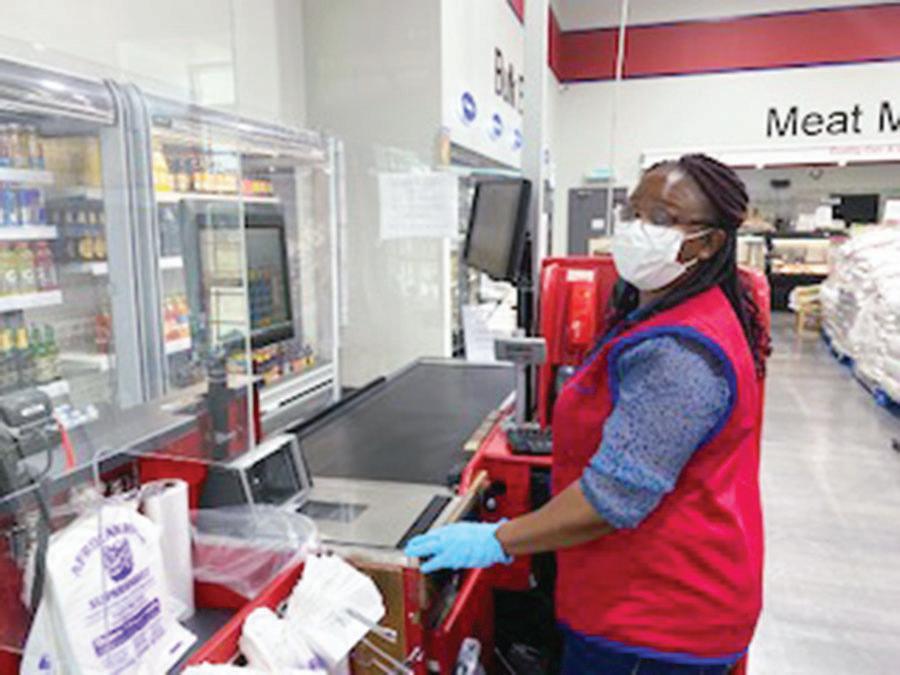






By Kwaku Obosu-Mensah
In a typical democratic society, the population elects some citizens to manage the affairs of the country to benefit all members of the society. Thus, every country is a custodian state that is supposed to ensure that all citizens have access to basic needs. Unfortunately, the State of Ghana represented by Ghanaian politicians has become the enemy of the citizenry. Through the actions and inactions of Ghanaian politicians, the state, which is supposed to seek the welfare of Ghanaians, has rather brought unnecessary hardships and misery on Ghanaians.
In Ghana, there are two main political parties – New Patriotic Party (NPP) and the National Democratic Congress (NDC). Combined, these two parties have ruled Ghana since the country returned to constitutional rule in the 1990s. That means the politicians, the nation wreckers, are from those two parties.
The politicians make decisions that waste the resources of the country, decisions that have led to the untimely death of many Ghanaians. In fact, considering the actions and inactions of Ghanaian politicians, one wonders whether they are rational beings. As recently as August 2024, there was a case in the Court involving the purchase of ambulances for the country.
The present NPP government accused the previous NDC government of corruption in the purchase of 200 ambulances. Court proceedings indicated that when in power, the NDC government took $2 million for the purchase of ambulances but imported into the country ambulances without any healthcare equipment. Thus, the NDC government imported into the country vehicles which were not suitable for use as ambulances. Since this case is still in court, we can only say that if this is true, then Ghanaian politicians are wicked nation wreckers. On the other hand, the NDC insists that the terms of purchase were that the manufacturer would first ship the empty ambulances, and then ship the equipment to retrofit the ambulances in Ghana. The empty ambulances arrived first, but by the time the equipment arrived in Ghana, the government had changed. Thus, the NPP was in power and took delivery of the equipment but refused to allow the manufacturer of the ambulances to come and install it in the vehicles. In fact, in court, the NDC asked the NPP to show Ghanaians the equipment, but the latter has refused to do so due to political reasons. If this is true, then it is pure wickedness on the part of Ghanaian politicians. Whichever is the truth, shows that the state, represented by Ghanaian politicians, is the enemy of the people. Under the NDC government, on January 4, 2013, the Ministry of Finance which is both the borrower and the lender, signed a facility agreement for the release of $200 million to fund the construction of the Saglemi Housing Project comprising of 5,000 housing units. According to NPP politicians, by the time the NDC
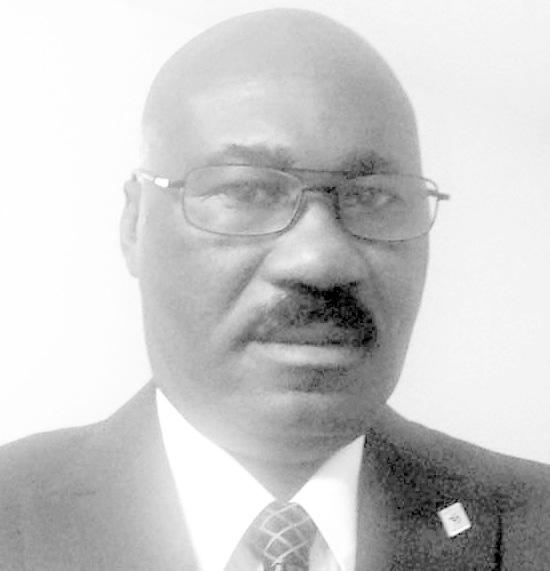
government left office in 2016, only 1,500 apartments had been built of which only 668 were 100% completed. Thus, NDC politicians borrowed $200 million to build 5,000 apartments but built only 1,500. That is naked embezzlement. According to the Attorney General appointed by the NPP, even the completed houses were not habitable. He (AG) insists that the project at the site was worth $64 million even though the NDC politicians have stated that about $196 million had been spent on the project. If this is true, then the wickedness and corruption of Ghanaian politicians, the nation wreckers, are obvious. The NDC politicians, on the other hand, insist that the project was in four phases, and phase one comprised of the construction of 1,502 apartments. They noted that, by the time they left office, phase one was 80 percent completed and earmarked to be occupied. According to the NDC, instead of completing the units for occupancy, the NPP politicians decided to abandon it. Lately, NPP politicians have decided to sell the property to private developers. Thus, for the NPP politicians, the project is viable for private developers but not for the state.
For almost eight years, the Saglemi housing project was abandoned by the NPP-led administration. Now, the government has decided to take its dirty hands off the Saglemi housing project to pave way for a private developer to refurbish the housing units and sell them to potential owners, the Minister of Works and Housing, Francis Asenso Boakye said. As of the time of writing, Ghanaians are not sure of the fate of the Saglemi housing project, but considering the record of NPP and NDC, no one would be surprised if the project is left to rot. There are too many abandoned projects in Ghana.
Another area where the state has shown that it is the enemy of Ghanaians is the wasting of money on the construction of vanity projects including some airports. Over the years, Ghana has constructed five regional airports at Kumasi, Tamale, Sunyani, Wa, and Ho. In 2024, these airports incurred a deficit of GHc26.01 million. Even though the majority of the regional airports serve no purpose and are losing money, some politicians are romanticizing building an airport at Cape Coast. According to the International Labor Organization, the youth unemployment rate was 8% in 2023. The ILO also noted that more than 65% of the youths are underemployed, and only 5% of
graduates find jobs after the mandatory national service. With such a high unemployment rate, it is not surprising that many youths are involved in the destructive mining commonly known as Galamsey. The youths are in the forests and in rivers mining in a way that has polluted many of Ghana’s water bodies, and contaminated cocoa and other agricultural products. Despite the havoc caused by Galamsey, the state is not stopping it because, as the Speaker of Ghana’s parliament noted, some politicians are behind Galamsey. Not only is the State represented by the politicians wasting the resources of the people, but they are also contaminating their water bodies and, in the process, poisoning Ghanaians. In mid-2024, when some NPP politicians were accused of polluting Ghana’s water bodies through their involvement in Galamsey, Frank Annoh Dompreh, the Majority Whip, retorted that the NDC polluted more water bodies during their tenure. Obviously, the two nationwrecking parties are competing over which of them is less evil. Recently, when some NPP politicians were accused of grabbing State lands, one of them arrogantly retorted that NDC politicians had grabbed more State lands than they had. Thus, there is a competition between Ghanaian politicians in selling government properties to themselves cheaply. Luxurious areas like Cantonments, Airport Residential Area, North Ridge, and East Legon Switch Backroad, have become the hotspots for state land allocations, with ex-presidents, former political party chairmen, and ministers among the beneficiaries. Yes, Ghanaian politicians are selling to themselves plots of land earmarked for state projects.
Economically, more taxes hinder development – no country has taxed its citizens into prosperity. Thus, the more a country imposes taxes, the less the economic development. Due to the poor decisions they make, and their greed for even more money, Ghanaian politicians keep imposing heavy taxes on Ghanaians. In August 2024, a friend purchased cutlery, a mug, a cooking pot, a flying pan, and a wooden ladle. The basic amount was Ghc575.61. The government levied the following taxes on the kitchen items: NHIL @ 2.50% - GHc14.39, GFUND @ 2.50%GHc14.39, and Covid Levy @ 1%GHc5.75. The subtotal was GHc610.15. The state then imposed VAT @ 15%GHc91.52 on the subtotal, bringing the grand total to GHc701.67. Thus, for this purchase of Ghc575.61, the state levied a tax of GHc126.06.
I believe that Ghana has very good and dedicated physicians, however, many
of our hospitals are places you go to suffer and die. This is because many hospitals lack basic medical equipment. The State does not provide necessary equipment to the hospitals because many of the most powerful custodians of the State, the politicians, travel abroad for their annual checkup, and other medical interventions. The money the nation wreckers spend on those expensive medical trips abroad could equip many hospitals to better serve the general population, but they won’t do that. Apart from police stations in the regional capitals, most police stations in Ghana don’t have police vehicles to serve the population. Thus, in a crisis, the police are helpless if transportation is required. Some years ago, I visited a mid-size town in Ghana. In the evening, I joined some police officers under a tree in front of the police station. As one of them narrated to me, a man was knocked down by a hit and run driver on the outskirts of the town. When they got wind of it, the police walked to the scene and physically carried the victim to the police station. The closest hospital was 20.5 kilometers away. They had to rely on public transportation but unfortunately at the critical time, no vehicle showed up for hours. Sadly, the man died. The officer was sure that, if they had a vehicle, the man would have survived. Ghana is the headquarters of uncompleted roads. That many, if not most, of the roads are uncompleted is because of the childish behavior of Ghanaian politicians. If an NDC government starts a road and it is not completed before they leave power, the incoming NPP government abandons the road and starts another one. In the same vein, if an NPP government starts the construction of a road and it is not completed before they leave power, the incoming NDC government abandons the road and starts new roads. Due to the numerous potholes, such uncompleted roads not only make rides unbearable, but also make them accident prone. Think about the vehicles that have gotten into accidents because the drivers tried to avoid potholes; think about the people who live near such untarred roads and the dust they inhale daily; think about state funds wasted on such uncompleted roads, etc. Only your enemy will make decisions that will make life intolerable for you. That is exactly what Ghanaian politicians, in the name of the State of Ghana, are doing to Ghanaians. How long will Ghanaians allow a few nation wreckers to continue making life uncomfortable for them? When shall we be angry enough to resist this internal oppression?

Tel: 416-244-3465
Cell: 416-278-9674
Lexington Ave, Unit 4, Etobicoke, Ont. M9V 2G4
We ship to all African Countries. We are the cheapest, Fastest and most reliable agents in town. We have been in successful business for twenty years.
We have moved to 14,000 sq ft. facility to serve you better. We have quality mattress for sale all sizes
By Gifty Annobil, New York, NY
Everyone has passed through some unpleasant phases of life. Whiles some are born into adversity, others are ushered into it by their choices and decisions. Whatever the attached reasons to these misfortunes in our lives are, recruiting people into it only blocks us from the possibility of being healed , restored and rescued happily.
A year ago, I was introduced to a single mothers group which had its weekly meetings scheduled on the Zoom Cloud app. Upon joining them in one of their active meetings, I was so amazed at how the entire meeting was centered on the series of pain they had all faced individually.
Almost all of them, who had the opportunity to address the meeting passed some sarcastic comment about their men. My only worry, really, was
how their little daughters, seen in the background, were listening to our discussion and the negative orientation about men they were being introduced to.
After absorbing the bitter comments they were spewing; I interrupted rhetorically. WHAT ROLE DID ANY OF YOU PLAY IN HOW BAD YOU ALL CLAIM YOUR WERE MISTREATED? The leader of the group responded that ONLY PEOPLE WHO HAVE HAD EVERYTHING GOING WELL FOR THEM WILL HAVE THE AUDACITY TO ASK WHAT SHE DESCRIBED AS AN UNWARRANTED QUESTION.
I was already convinced I didn’t belong there. Before exiting however, I pleaded with them to listen to my story.I made the narrative very brief and they
listened with rapt attention. The usual extreme emotional expressions were visible on their faces. A huge pity party was probably brewing for me. I interfered with what I believed was my contribution to what happened in my past life.
They could not hide their shock! I exited the platform with a smile. Clearly, that was the beginning of their healing.
Sometimes, a sincere act of excessively sympathizing with people gives them a good reason to remain in their misery.
Nelson Mandela, after spending 27 years in jail, became the first elected president to transform South Africa.
That is clearly a lesson from the irony of life!
Truly, pain can awaken a profound sense of meaning and purpose in someone’s life. Imagine the painful life threatening stories of these wonderful transformational speakers, Linda Cliatt-Wayman, and the Sean Stephenson, and how they have become professional global sensations and beautiful inspiration to many.
No matter the situation being faced with, the pain must never replace our urge to lead good expectations in every decision of results.”
You may never understand why such pain certainly occurred but redefining and deciding, how you choose to live in response to it lies on one’s shoulders.
Whether a personal identity or an inspirational testimony, YOU HAVE TO MAKE A CHOICE!
We Carry All Your Tropical Grocery Items For All Your Family Grocery Needs
* Fresh Ghana Yam (Pona)
* Titus Sardine
* Accra Kenkey
* Fresh Garden Eggs
* Palm Oil
* Exeter Corned Beef
* Akwaabi
* Red Snapper
And much more at discount prices
We are open 7 Days a week. Sundays from 12 noon to 6:00 pm
Tel: 416-745-5928
5010 Steeles Ave. W., Unit 2B, Etobicoke (Steeles/Kipling)
THROUGH MONEYGRAM
Hours: 9:00 a.m. - 8:30 p.m. Mon-Sat. 12:30 p.m. - 5:30 p.m.
* OX HEAD SCENTED RICE *PALM SOUP
*GRACE KENNEDY SCENTED RICE
*GARI *ALREADY MIXED FUFU
*ADWENE *KONKONTE
* FRESH PONA YAMS *ASANKA *KOOBI
*QUALITY ZOMI *GHANA BREAD
*BODIE FUFU *SHITO
We open 7 days a week. We also deliver
fresh yam * plantain * cocoyam * adwene* koobi * abodoi * egusi * gari * konkonte * goat meat * fufu * kenkey * snails * herrings *sugar bread etc. etc.
647-887-0744 / 416-939-5969,
* Red Snapper
* Mackerel
* Palm Oil
* Egusi
* Fresh Ghana Yams
* King Fish Steak * Adwene *


When Erin first got together with her boyfriend, they both worked in minimum wage jobs. She was a student working part-time in customer service, while he worked as a chef. In 2020, she got what she refers to as her first “big girl” job in local government, and was catapulted up the career ladder. At 27, Erin now earns significantly more than her partner.
“When I got the phone call to say I had got the job, we immediately spoke about the salary,” says Erin, who lives in Yorkshire, UK. “I asked if the fact that I was earning more was going to make him feel bad. He said that yes, he likes it when he can do things for me that I can’t afford to do, because it makes him feel like he’s taking care of me. But he doesn’t feel emasculated by my higher pay. He just wants me to be happy.”
Although it’s not unusual for women to out-earn their partners, Erin remains in the minority as a female breadwinner. In the UK, only around 26% of women were making more money than their partner in 2019, and in the US this was around 30% –hardly surprising, as working women still earn 16% less than men on average.
That’s why Erin, and many women in heterosexual relationships like her, feel the need to have conversations about how their partner feels about their higher earningpower, and protect them from any negative emotions or feelings of emasculation –talks they likely wouldn’t feel the need to have if the situation were reversed.
Women’s earning power may have surged in many instances, yet attitudes towards female breadwinners still lag behind. As well as facing external judgement, women who out-earn their partners still often shoulder the majority of traditionally ‘female’ labour, such as housework and childcare, leaving them chronically overworked, under pressure and fighting to protect their partnership against negative emotions and perceptions.
All this can take its toll – research shows that heterosexual marriages with a female breadwinner are more likely to end in divorce. But experts point out that this doesn’t have to be the case.
The domestic burden of women breadwinners
Historically, men have almost always outearned their female partners. Women, often entirely excluded from the workforce, tended to instead shoulder the majority of domestic labour, including housework and childrearing.
But evidence suggests that since women have entered the workforce en masse, the imbalance in domestic duties hasn’t really been redressed – even when women make more money than their partners.
Some researchers have found that in the UK, 45% of female breadwinners still do the majority of household
tasks, compared to just 12.5% of male breadwinners, and that the average female breadwinner spends the equivalent of an entire working day taking care of the house on top of their full-time job.
Additionally, research carried out in Australia and the US showed that although women decreased their housework as their earnings increased, this was only true up to a certain extent. Once women started to out-earn their partners, researchers found that couples often reverted to more traditional gender roles, with women picking up a disproportionate share of housework.
“Feeling like we are violating society’s expectations about what it means to be a woman or man can be very uncomfortable,” says Raina Brands, an associate professor at the UCL School of Management, whose research focuses on gender stereotypes.
“Women may feel compelled to compensate for violating traditional gender roles as a breadwinner by redoubling their contributions at home,” she continues. “But what couples should keep in mind is that feelings of discomfort can lead to some very irrational household decisions, such as women opting to earn less or leaving paid work entirely (which takes away from the financial security of the household), or taking on more than their fair share of household work (which leads to unhappiness).”
External judgements
Even when a couple have the best intentions of splitting labour in an equitable way, external judgements and perceptions can get in the way, argues Siran Cao, the co-founder and CEO of Mirza, a Londonbased fintech company that focuses on the gender pay gap. This can leave female high-earners picking up extra work and responsibilities.
“Schools still tend to call the mum, even if the dad is listed as the primary contact,” says Cao. “It’s crucial for men to disrupt these caregiving gender norms, so that they have the opportunity to parent.”
This isn’t the only situation in which external perceptions of high-earning women have a negative impact. Rowan, 24, works as an accountant, and currently outearns her fiancé. She says she often faces judgement from others about their current set-up. “I’ve had reactions of ‘it must be hard’ or people saying that it’s admirable that I don’t mind supporting him,” says Rowan, who is based in Birmingham, UK. She says she tries to avoid bringing up the topic, and that she’s learned not to let hostility or negativity bring her down.
This kind of judgement is extremely common, particularly for high-earning mothers. One 2013 study showed that 16% of Americans believed that raising a child in a family where the mother is the primary earner would have a negative effect on kids, and 59% of adults still say that children are better off when one of their parents stays at home with them. Forty-five percent of these people said it was better if the stay-at-home parent was the mother, with only 2% favouring the father.
It’s no surprise these deeply ingrained outlooks can affect how couples talk about their own earning power. Some research even supports that couples are so aware of the societal perception of female
breadwinners that mixed-income spouses tend to lie about their respective earning power when a wife out-earns her husband, exaggerating how much the man earns. Some couples go even further, with women actively choosing not to be the breadwinner; in couples where a woman’s income has a greater potential to exceed her partner’s (for example, if she has qualifications in a higher paying industry), she is still less likely to engage in paid work, and tends to earn below her potential when she does.
Research shows dissatisfaction is high in couples in which the female breadwinner spends more time on chores (Credit: Getty)
The divorce factor
For most couples, their relationship is truly tested when and if they have children – a milestone Erin and Rowan have yet to reach. Couples already going against the norm in terms of their earnings balance must make important decisions about whether they will also choose a nontraditional balance of childcare, with the lower-earning father taking on more of the caring responsibilities.
The data suggests most don’t – after all, even though around a quarter of women are the primary earners in the UK and US, only about one in 10 men say they are the primary carer of their children – significantly less than one might expect if earning power directly correlated to household labour. Like many facets of gender inequality, it seems that the most significant gaps and judgements emerge once women become mothers.
And while some couples with a female breadwinner do manage to find an equitable – and happy – balance, data shows that for many couples this isn’t the case.
Despite decades of work to empower women financially, some research shows heterosexual couples are still more likely to divorce if the female spouse out-earns her husband. Judgement and the difficulties of dividing household labour both also play a huge part in the complicated dynamics of these relationships – studies have shown men who earn less than their female partner are more likely to cheat, with researchers positing that this is a way of restoring masculine gender identity. And in couples where the female breadwinner spends more time on household chores, marital dissatisfaction is at its highest.
In a world in which women have worked hard to overcome gender biases, this might make the outlook for female breadwinners seem bleak. But Brands argues it’s important for couples not to get caught up in the overarching statistics, and to focus on how a relationship can be as equitable as possible for them.
“The main takeaway is that gender roles are not destiny,” she says. “Couples that push through the discomfort of non-traditional arrangements and negotiate a fair split of household chores relative to financial contributions are more likely to achieve equity in a broader sense, too, meaning both the woman and the man have financial security and independence from their partner, the ability to pursue meaningful careers and being able to balance both their career and family life.”
Toronto is looking to retrofit its heavy-duty vehicles with side guards in an effort to reduce pedestrian deaths.
The protective railings or bars can be mounted on the sides of large trucks between the axles to help prevent people from being pulled under the wheels in a collision.
Mayor Olivia Chow said having them on city vehicles “means saving lives. It means less tragedy. It means safety.”
According to city staff, side guards can reduce cyclist fatalities by approximately 62 per cent and pedestrian fatalities by 20 per cent.
Standing in front of a vehicle outfitted with side guards Wednesday, Chow recalled a promise she made to the husband and child of Jenna Morrison – a 38-year-old yoga instructor who was fatally struck by a transport truck while cycling back in 2011 – back when she was an MP.
“I promised her husband at the time that I would do something to make sure that this doesn’t happen again to other people,” Chow said.
She said she has championed the change for years, but has hit roadblocks, particularly around the trucking industry, which she said has resisted efforts to make the guards mandatory.
A side guard installed on the side of a heavy truck is pictured at a city announcement Wednesday November 20, 2024. The protective railings or bars can be mounted on the sides of large trucks between the axles to help prevent people from being pulled under the wheels in a collision. (Ken Enlow /CP24)
A report coming before the city’s Infrastructure and Environment Committee next week is recommending that the city retrofit all city-owned commercial vehicles with side guards.
“If there’s a side guard, they (pedestrians or cyclists) will just bounce out, get bruised a bit. Without a side guard, they’re going to get trapped between the two wheels, and they would get run over,” Chow said.
Retrofitting Toronto’s 500 heavy-duty vehicles would cost about $5.7 million, city staff estimate.
Around 219 of the vehicles could be retrofitted by December 2025, while the rest could be done by the end of 2026, the staff report says.
The safety devices have become standard in other jurisdictions, such as the EU, and Ontario’s chief coroner has said that they could help save lives.
There are currently no federal or provincial requirements for vehicles to be fitted with side guards.
Chow said she has an upcoming meeting with Ontario Transportation Minister Prabmeet Sarkaria and plans to ask him to consider making the devices a standard for provincial vehicles as well.
The report is set to go before the Infrastructure and Environment Committee on Nov. 27. It also recommends exploring the feasibility of requiring existing and new suppliers who are contracted to provide city services to have side guards installed on their commercial vehicles. A report on that part of the plan is expected to come to council next fall.
A side guard installed on the side of a heavy truck is pictured at a city announcement Wednesday November 20, 2024. The protective railings or bars can be mounted on the sides of large trucks between the axles to help prevent people from being pulled under the wheels in a collision. CP24.com
We Serve All Kinds Of African Continental Dishes
* Fried Yam with Tilapia or Red Snapper
* Fried Plantain with Beans
* Waakye (Rice & Beans) with Assorted meat
* Banku with Okro or Peanut Soup
* Dieho (TZ)
* Konkonte
* Jollof Rice
* Fufu with Peanut Soup or Light Soup
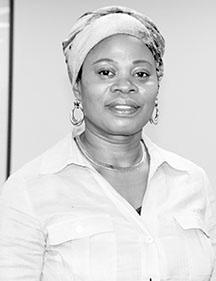
- 11:00 AM TO 9:00 PM
- 11:00 AM TO 9:00 PM
- 11:00 PM TO 9:00 PM SATURDAY - 11:00 AM TO 9:00 PM
- 12:00 PM TO 9:00 PM

By Yaw Ofori-Amanfo
Many serious disputes have arisen and even wars fought over land ownership around the world, and for several centuries. Every human being born on earth, unless born away from their nativity, has a natural endowment of a small portion of land they can call home or homeland. It is a gift of nature. It is irreplaceable because land is immovable, nonextendable and a fixed asset that is either inherited, bequeathed, or transferred to others through sales or usurpation. Bringing it closer home, during the time of inter-tribal wars, kingdoms and vassals fought for territorial acquisitions. In those primitive times, when humanity had not intentionally enacted rational laws to govern peaceful co-existence, anybody who felt stronger than their neighbor, could just get up and decide to invade and subjugate their neighbor with impunity. As neighbors conquered neighbors, so did foreign powers participate in this lucrative and fun business of invasions and conquests on the African landscape. Any conquered territories became the bona fide domain of the conqueror. Such behaviors replicated life in the jungle. The strong preyed on the weak and “dog ate dog”
Foreign invaders such as the British were vehemently resisted and several wars were fought to protect and preserve the natural endowments of people, clans and tribes. Many chiefs or ancestors sacrificed their lives in attempts to defend the land they inhabited in order to bequeath to their descendants and generations unborn. The protective resistance and agitation gave rise to the many independence movements and freedom fights. Independence was fought to reclaim and consolidate lands belonging to the present people and their descendants. Long after independence, when Ghana land was reclaimed from foreign invaders and restored to the people, the question of land ownership is still unresolved. Who owns Ghana land post independence? Does the land belong to the government, the chiefs, or the people?
A point worthy of notice is that, whereas the population has exploded and multiplied tenfold since independence, land boundaries remain static and the same. It means, ten times more people since independence are scrambling for the same land parcels. The phenomenon gives rise to the bullies, rich, well-connected, educated, famous and powerful to prey on the weak, illiterate, poor and vulnerable ones. Wars and conflicts are still raging among the tribes and peoples of Ghana over land ownership and distribution. When the vulnerable muster courage to resist and protect their obviously only legacy and property, clashes and even wars are started. Tribes have bloodily fought tribes, and families bloodily fought families. In some cases, land guards are hired to protect people’s lands. It is a very touchy but potentially explosive and dangerous issue dangling in the air. The question of land tenure is still begging for answers.
The Ghana constitution of Ghana is not definitive about ownership of land in Ghana either. The constitution vaguely puts chiefs as custodians of the
land, meaning they hold lands in trust for the people. A simple dictionary definition of custodian states, “A person who has responsibility for taking care of or protecting something.” By this definition, a custodian is not an owner but a caretaker. For example, “a custodian of the crown jewels” holds keys to the strong room where the crown jewels are kept. Banks act as custodians of people’s investment and accounts but the money therein does not belong to the banks. Custodians merely take care or guard someone’s property to ensure its safety. Unless these vague and exploitative designations of land tenure such as stool lands, vested lands and state lands etc are clearly defined, we stand the risk of being plagued with wars, skirmishes and deadly disputes. The average Ghanaian does not know what these terms mean in reality. All we know is that, the chiefs have adopted predatory practices to seize people’s lands and scuttled their livelihoods claiming ownership of the entire land within their territories. To the chiefs, this investiture means they are the material and rightful owners of all lands within their territories. This reversal of ownership makes chiefs owners, and the people custodians of the land (holding land in trust for chiefs). And so, which is which? Who actually owns Ghana land?
A case in point is the land tenure system in the Techiman Tradition Council area in the Bono East region. The chiefs of the towns and villages have enacted their own land laws and pushed down the throats of the people. These days, chiefs do not protect and guard any lands for posterity. They are actively and hurriedly engaged in selling lands within their territories. The standard practice of land sale by the chiefs in the Techiman traditional council area gives, for an acre of land containing four building plots, 3 plots to the chiefs and one building plot to family owners of the land. And, it does not matter how long, or how many generations of family members may have possessed and farmed the land, or how many people are in the families presently. In the distribution of land booty, the Omanhene is entitled to one plot of land sold anywhere in the traditional area. Also, any vacant plot of land anywhere in the city is claimed by the chief as his property. Consequently, they have confiscated people’s idle lands especially if they make any attempts to build structures on them. For his booty allocation, the Omanhene is alleged to put pressure on the subchiefs to sell more lands so he can get his allocation. In this booty distribution system, the subchief in whose territory the land for sale is located takes two plots. The chief of Oforikrom in the traditional council area claimed, “one plot is for my personal development and the other for the development of the village.” Ironically, the portion for the village is also wholly taken by the chief and never accounted for or turned over for any kind of development projects in the village. And this is the standard practice in the entire traditional domain. This means, the entire family or clan whose ancestors bequeathed the land as legacy and have resided on, and farmed the lands for centuries, is given one building plot out of four, for their development. Is

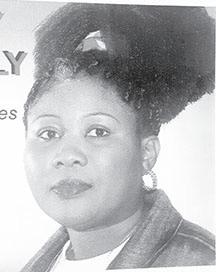

this the distribution or land tenure system instituted by the Constitution of the republic?
It begs the question, for instance, for a chief co-opted from “somewhere” to be installed chief of a village he may never, in his entire life, have lived in, or even set foot in until his poaching and installation as chief to confiscate and apportion land to himself against the will of the people. He may have no friends, classmates, playmates, affinities and acquainted relatives in his new chiefdom. He may have become chief only on the grounds of an ancient tradition that stipulates that when there is a vacuum for a chief, the kingmakers cast their net wide to find which royal family is next in line of succession to produce a chief. In this search, they may go to a so-called family who may have moved to another town and lived all their lives there a century ago. So, they bring such a person to be chief of a place he may have no affinities, familial and social ties. For the last seventeen years or so that the Oforikromhene has been chief, he has never once slept in the village. To make the situation even more bizarre, he bought land in another village and built his house there while still the chief of village he has been installed chief. The village folks are livid and claim they have no chief. They resent the disrespect they get from the chief of their village who does not see them human enough to sleep amongst them. The chief works at a coastal town and therefore does not see the day-to-day issues affecting the village folks. He rules through caretaker stooges, or proxy looters (chief-appointed and land sales gang) instead of the other clan, family heads and sub-chiefs.
So as it stands, the chief takes their farm lands and apportions for sale claiming the town has extended to those farm lands. And when land is demarcated, the village folks cannot afford the price put on their own plots confiscated without compensation. It means the villagers’ lands are stripped from them and sold to strangers. In the long run, when their birthright and only worthwhile possession in the world, and the only source of livelihood is commandeered from their hands, then where in the world do they go? It is tantamount to depriving the voiceless village folks their birthright. This is daylight robbery and avaricious. It is predatory and it must stop or be stopped. Somebody needs to correct this anomaly and stop chiefs in Ghana from their predatory practices.
It begs the question of legitimacy. Should such chiefs, whose sole interest in chieftaincy is to snatch and sell the peoples’ lands for their personal indulgence, be chiefs at all? It would be different if such chiefs fought wars, as in the past, and conquered lands they could claim and make their own. But that is not the case. These chiefs do nothing meritorious to be installed chiefs. They go through no serious vetting to ascertain their suitability and qualification to be chiefs over people. They just inherit their chiefdoms by some bizarre traditions and customary legacies. We are all aware of how many vacant chief positions are currently beset with litigation and strife in Ghana. So how does all the land in chiefs’ domains become their bona fide properties through the stool, but for their personal gain? This is unsustainable in the 21st Century
Now, chiefs need to answer the questions if that is the accepted standard traditional practice in Akan culture. Has the Regional or National House of Chiefs approved such distribution and land tenure practices? Do the chiefs have any standard principles of rulership or do individual chiefs make their own rules? Culture and customs that they invoke as hegemony to be guarded for posterity’s sake, and the edification of the oracles have been skewed to become tools of suppression and fraud. This scenario is typical and pervasive of many traditional areas in the country. The national and regional house of chiefs have become accomplices in this predatory scheme of daylight oppression. Chiefs throughout the country are caught up in this systematic larceny of their people’s lands. So one is tempted to ask the obvious question: Is chieftaincy, as an institution, relevant in 21st century Ghana? What beneficial role do chiefs play in the national reconstruction? People answer the question by suggesting that chiefs preserve our

With the African Union now a permanent member of the G20, the upcoming summit in Rio de Janeiro raises a key question: why isn’t the forum being called G21?
The decision not to rename the G20 as G21 risks undermining the progress that the AU’s membership represents /
The 19th G20 Leaders’ Summit is set to take place in Rio de Janeiro on November 18 and 19, 2024, bringing together leaders from the 19 member countries, the European Union (EU), and, for the first time as a permanent member, the African Union (AU).
This expanded membership underscores the forum’s growing recognition of Africa’s importance in global governance.
Yet, despite the AU’s inclusion, the intergovernmental forum is still referred to as the G20 rather than the G21, raising critical questions about whether this reflects lingering biases against Africa’s role in global decisionmaking.
Historically, the G20’s name has mirrored its membership: 19 major economies plus the EU that collaborate on international financial stability, economic growth, and pressing global challenges. The AU’s admission logically makes the tally 19 countries, the EU, and the AU—a total of 21 members. So why hasn’t the G20 been rebranded to reflect this?
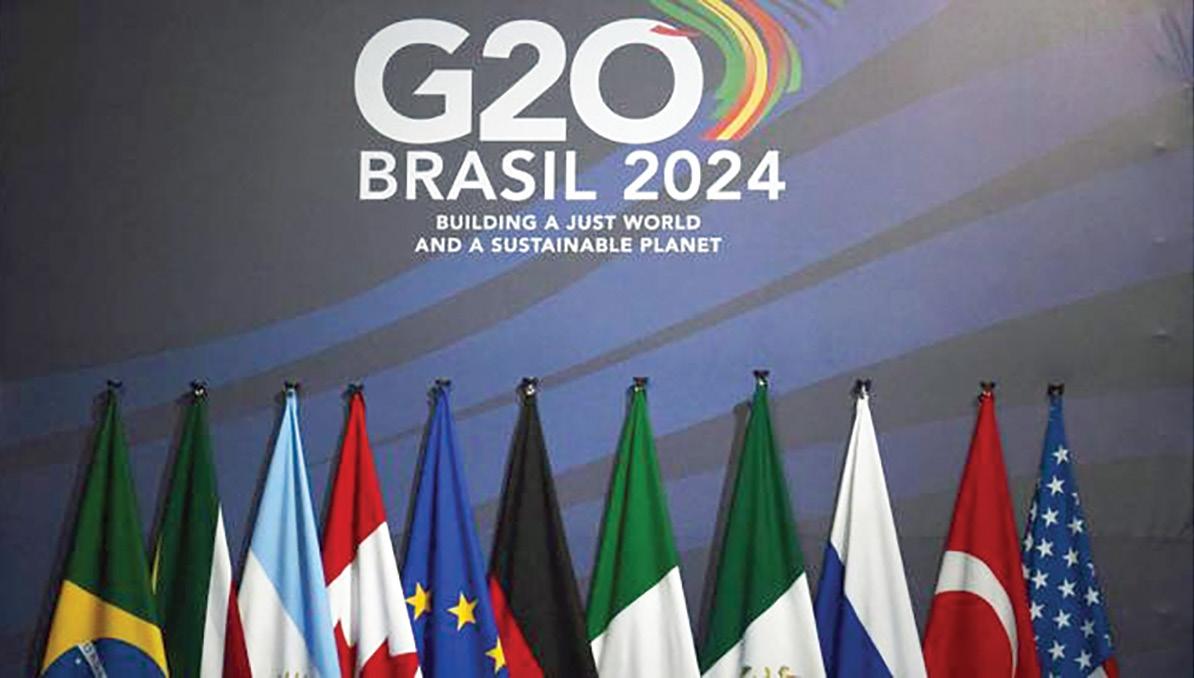
The G7 precedent: A matter of symbolism
To understand the implications, it is worth examining the precedent set by the Group of Seven (G7) political and economic forum of seven advanced economies—Canada, France, Germany, Italy, Japan, the United Kingdom, and the United States— focused on addressing global issues such as trade, security, climate change, and economic stability.
When Russia joined the group in 1997, it was renamed the G8. Following Russia’s suspension in 2014 due to the annexation of Crimea, the forum reverted to the G7.
These changes were not merely technical adjustments—they were symbolic gestures that acknowledged
the significance of inclusion (and exclusion) in shaping global power dynamics.
If the G7 could adapt its branding to reflect its evolving membership, why hasn’t the G20 done the same?
Renaming the forum, G21 would signal genuine acknowledgement of the AU’s equal standing and reinforce the commitment to inclusivity and representation.
Why AU’s G20 membership matters Africa’s absence from the G20 had long been a glaring omission in global governance.
While South Africa was a member, the continent as a whole lacked representation in a forum that wields immense influence over international economic policies. This exclusion left Africa as a passive recipient of
decisions that often failed to address its unique challenges.
The AU’s inclusion, announced during the G20 Summit in New Delhi on September 9, 2023—a date that coincidedwith the anniversary of the AU’s founding—aimed to rectify this imbalance. Its membership in the G20 is significant for several reasons.
First, it elevates Africa’s voice on the global stage, with the AU representing 55 member states, 1.4 billion people, and a collective GDP of $3 trillion.
This provides the continent with a much-needed platform to influence international policies on critical issues such as debt relief, trade agreements, and climate action, which are pivotal for its development.
Additionally, the inclusion of the AU strengthens the G20’s legitimacy as a global decision-making body, addressing long-standing criticisms about the underrepresentation of the Global South and enhancing its credibility in tackling global challenges.
Moreover, the AU’s participation helps balance power dynamics within the forum.
Historically, G20 decisions have often favoured creditor nations, leaving
cont’d 0n pg. 33
The continental organisation comprising 55 member states now holds the same status as the European Union.
Granting the African Union membership in the G20 is a step that recognises the continent as a global power in itself. Photo: Reuters
The African Union joining the group of the world’s 20 leading economies is a powerful acknowledgement of Africa as its more than 50 countries seek a more important role on the global stage.
United States President Joe Biden called last year for the African Union’s permanent membership in the G20, saying it’s been “a long time in coming.”
Indian Prime Minister Narendra Modi announced on Saturday that the bloc was invited to join during the G20 summit his country is hosting this week.
The African Union has advocated for full membership for seven years, spokesperson Ebba Kalondo said. Until now, South Africa was the bloc’s only G20 member.

Here’s a look at the AU and what its membership represents in a world where Africa is central to discussions about the climate crisis, food security, migration and other issues. Honoured to welcome the African Union as a permanent member of the G20 Family. This will strengthen the G20 and also strengthen the voice of the Global
African Union becomes latest member of G20 at Delhi summit
What does this mean for Africa?
Permanent G20 membership signals the rise of a continent whose young population of 1.3 billion is set to double by 2050 and make up a quarter of the planet’s people.
The AU’s 55 member states, which include the disputed Western Sahara, have pressed for meaningful roles in the global bodies that long represented a now faded post-World War II order, including the United Nations Security Council.
They also want reforms to a global financial system - including the World Bank and other entities - that forces African countries to pay more than others to borrow money, deepening their debt.
Africa is increasingly courting investment and political interest from a new generation of global powers beyond the US and the continent’s former European colonisers.
China is Africa’s largest trading partner and one of its largest lenders. Russia is its leading arms provider. Gulf nations have become some of the continent’s biggest investors. Türkiye’s largest overseas military base and embassy are in Somalia. Israel and Iran are increasing their outreach in search of partners.
African leaders have impatiently challenged the framing of the continent as a passive victim of war, extremism,


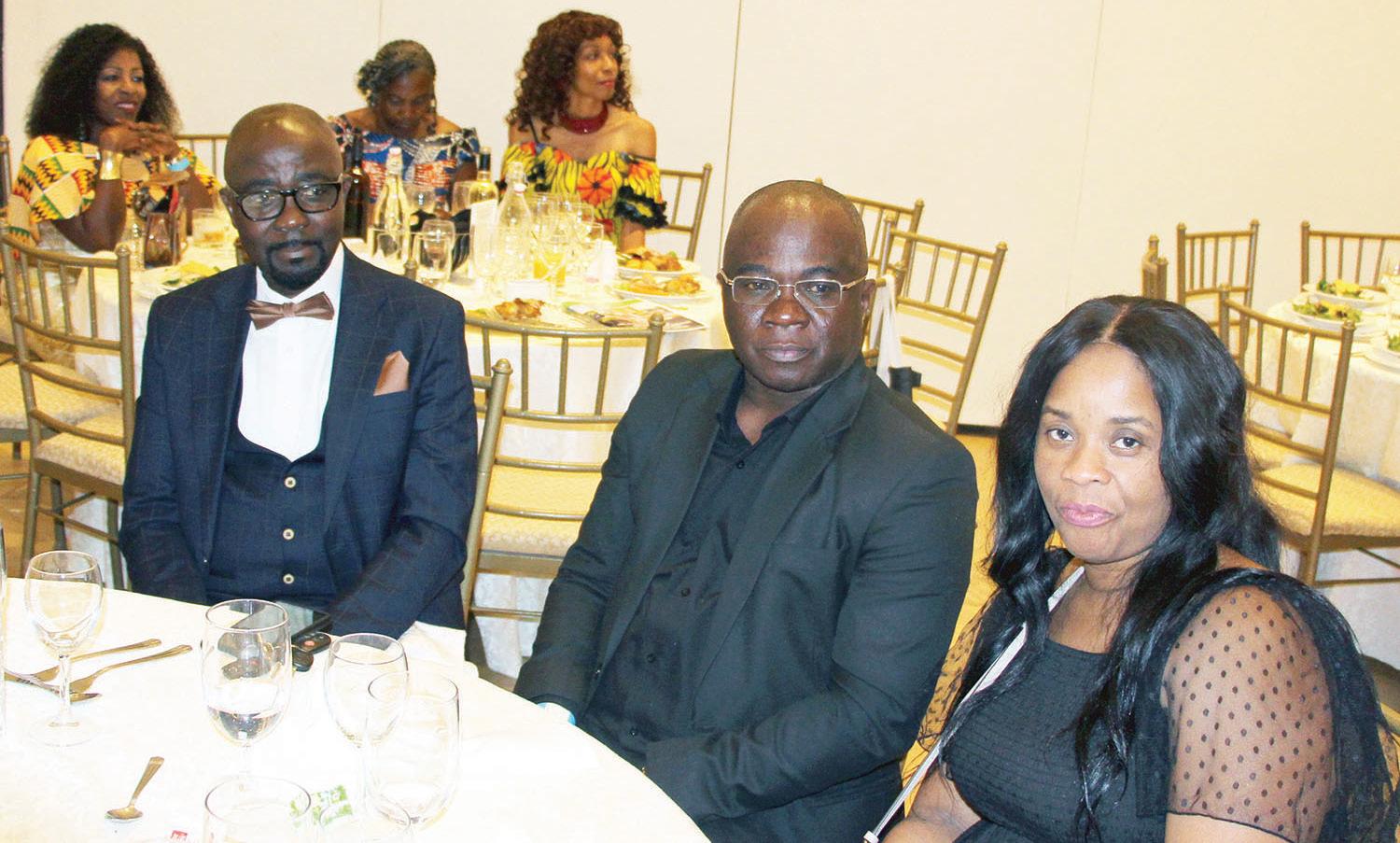





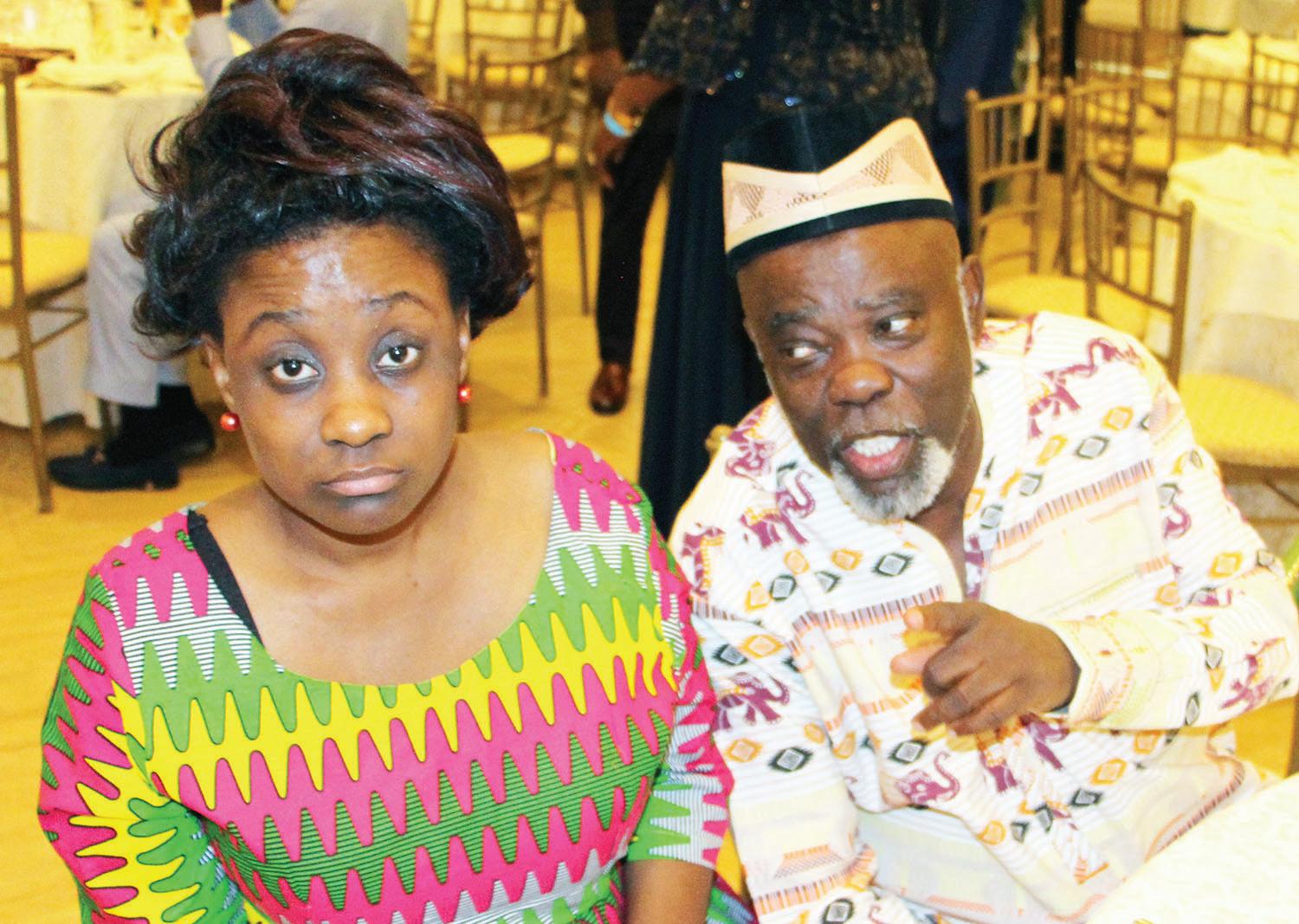


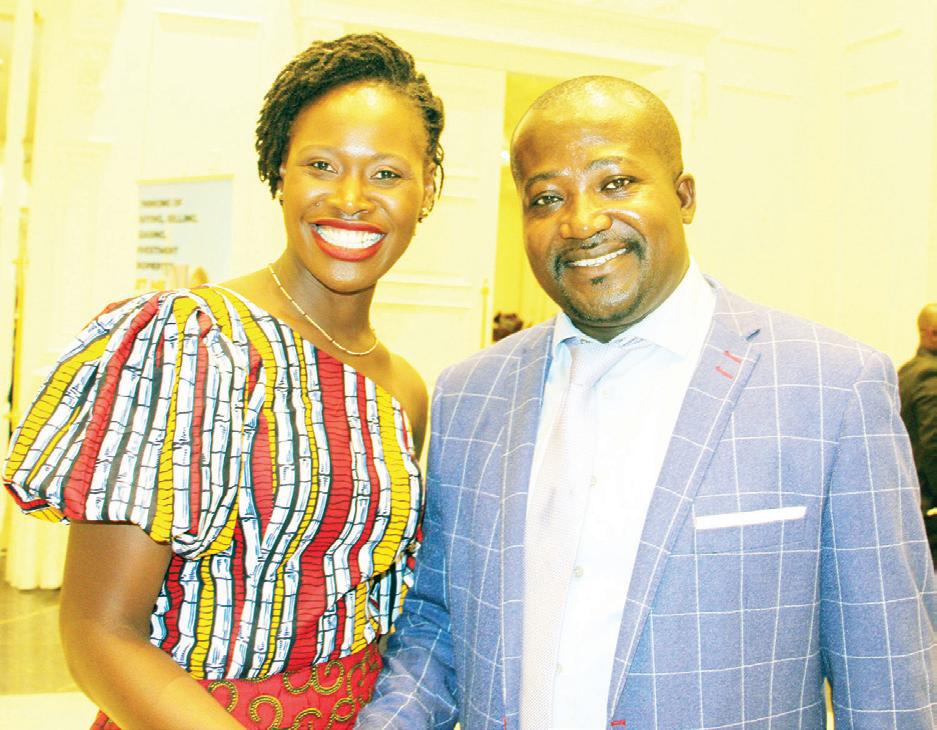
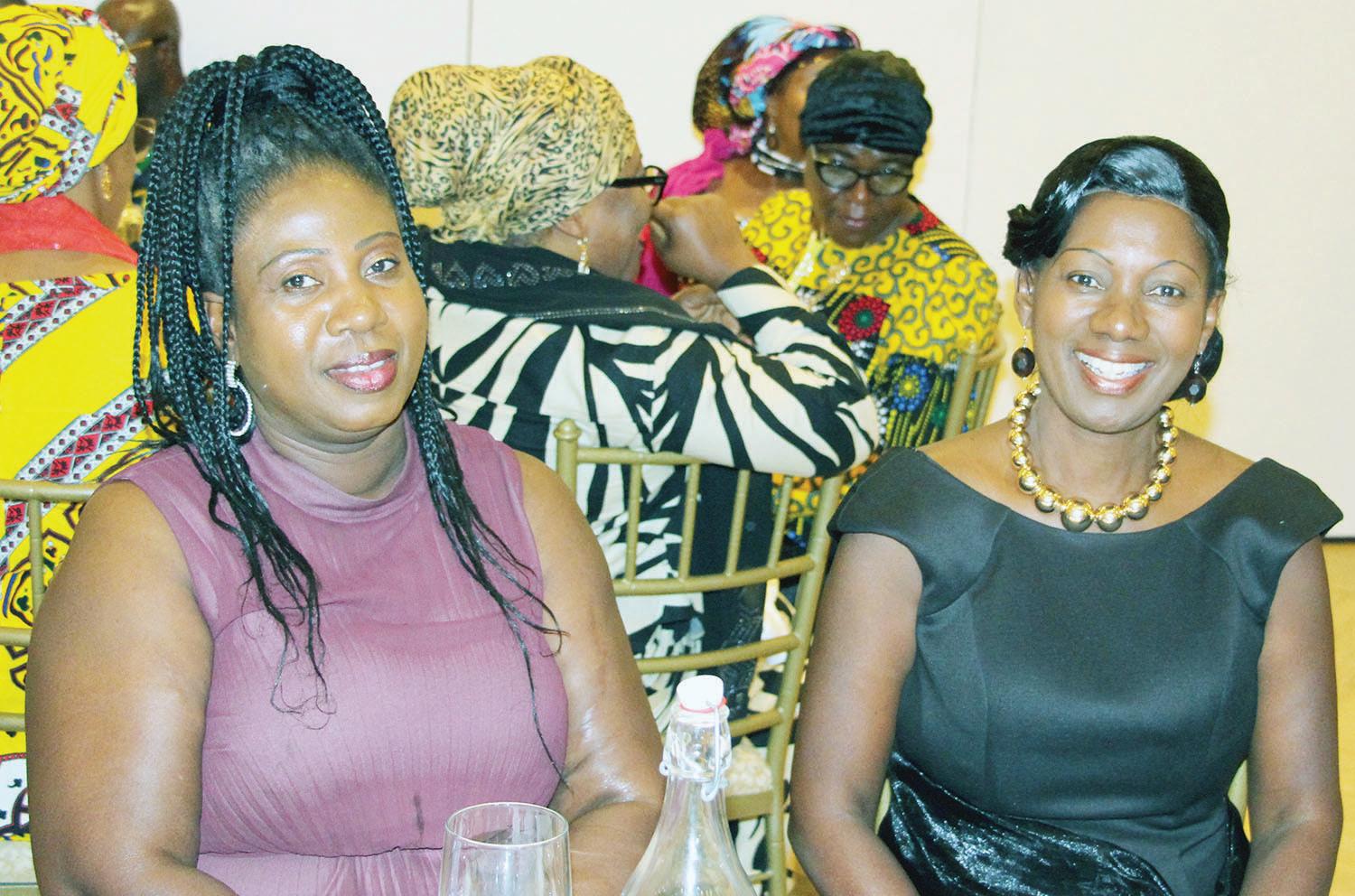







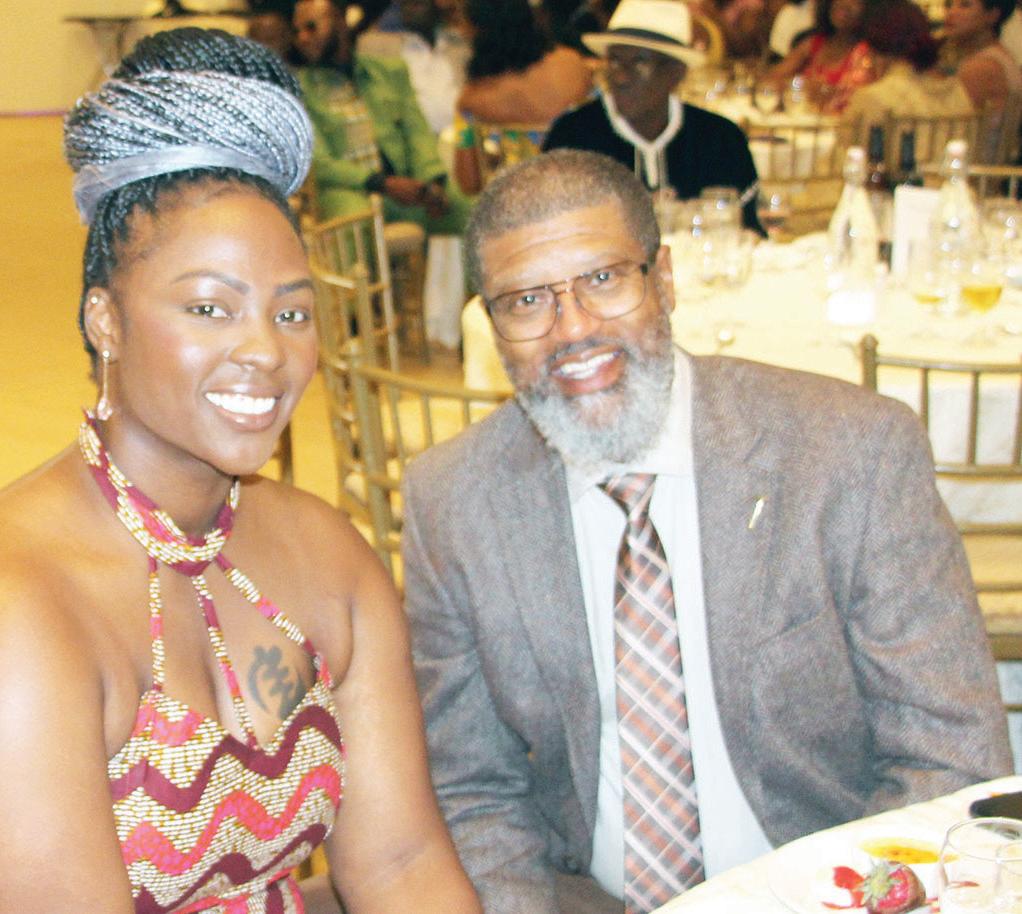



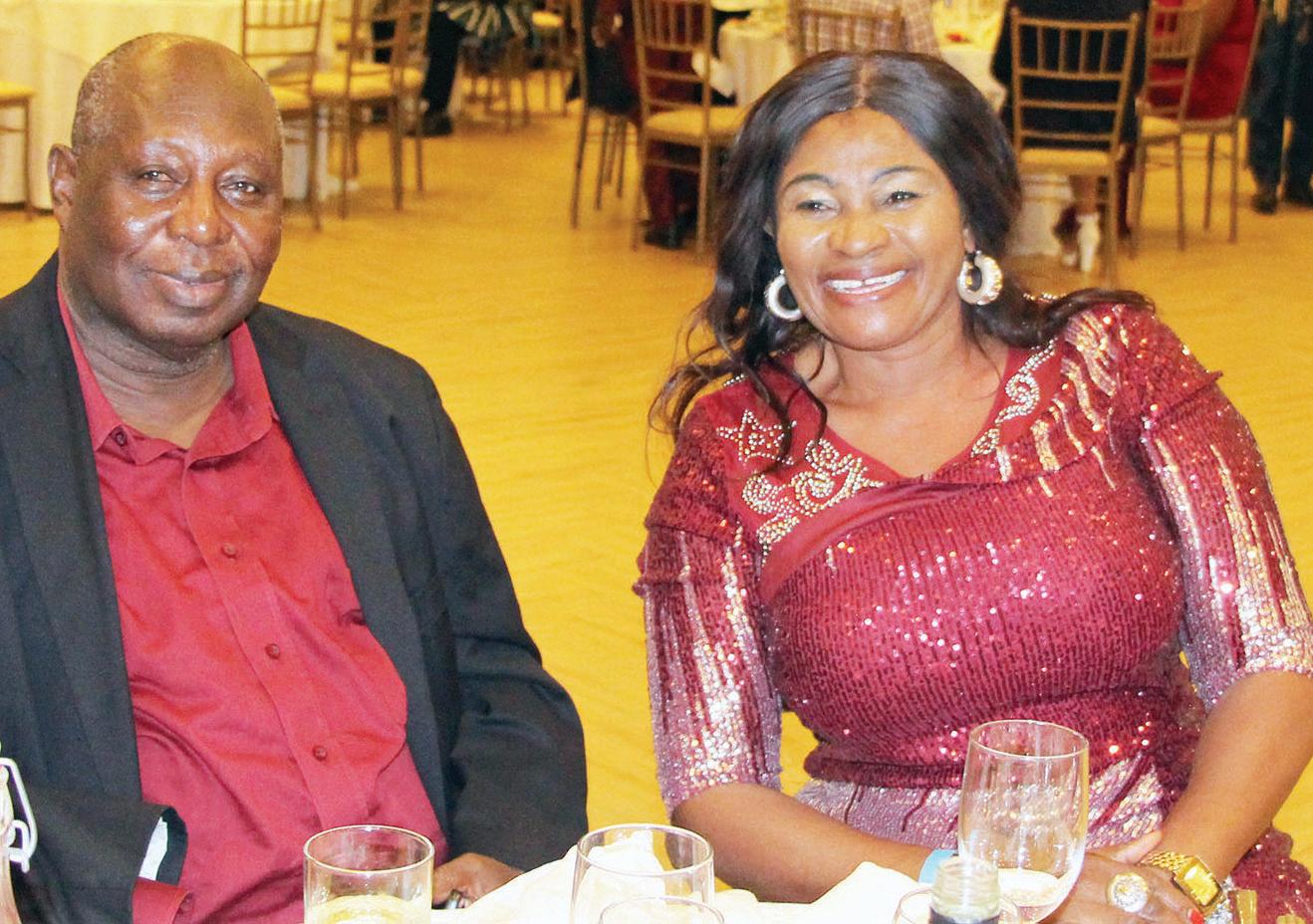

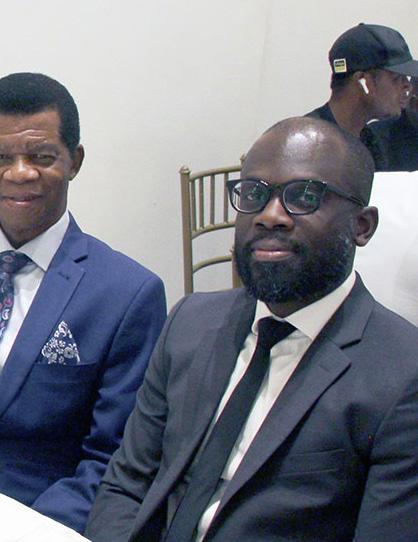





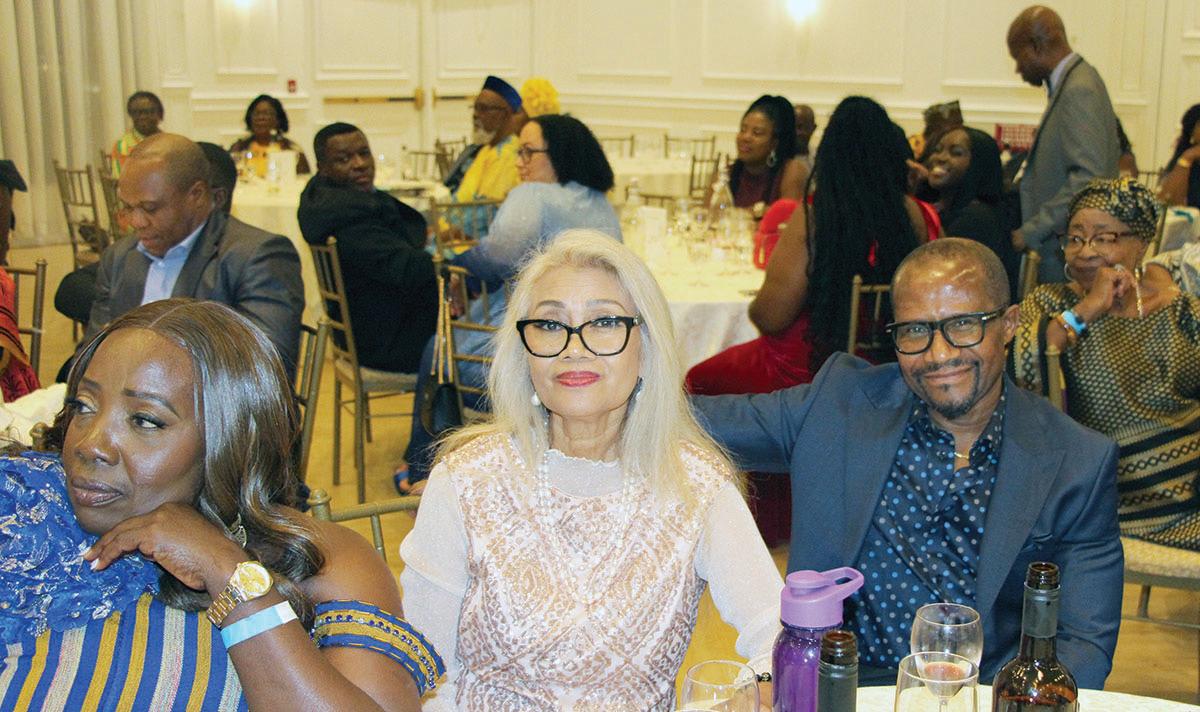


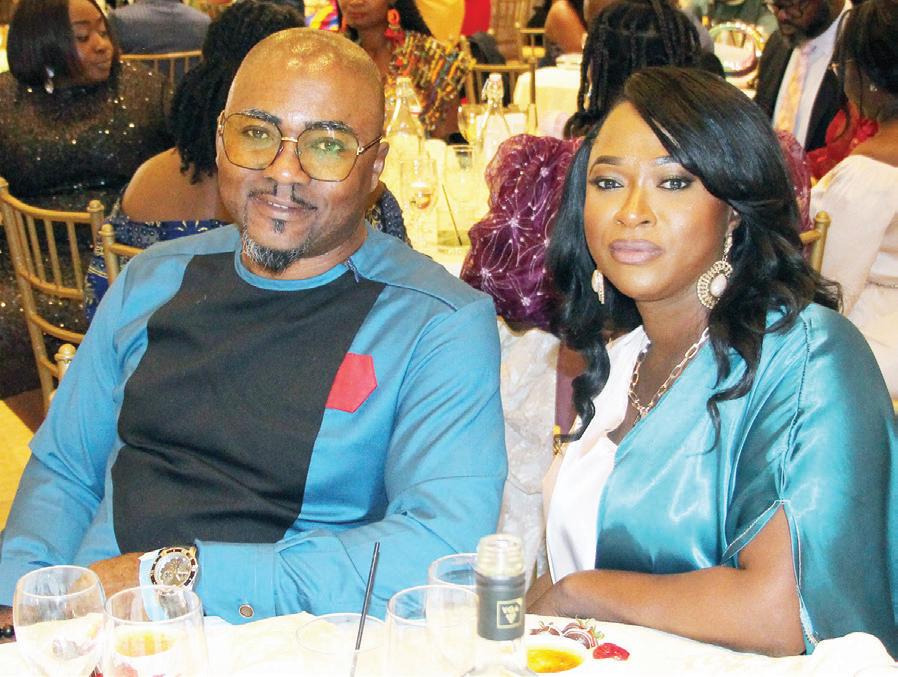


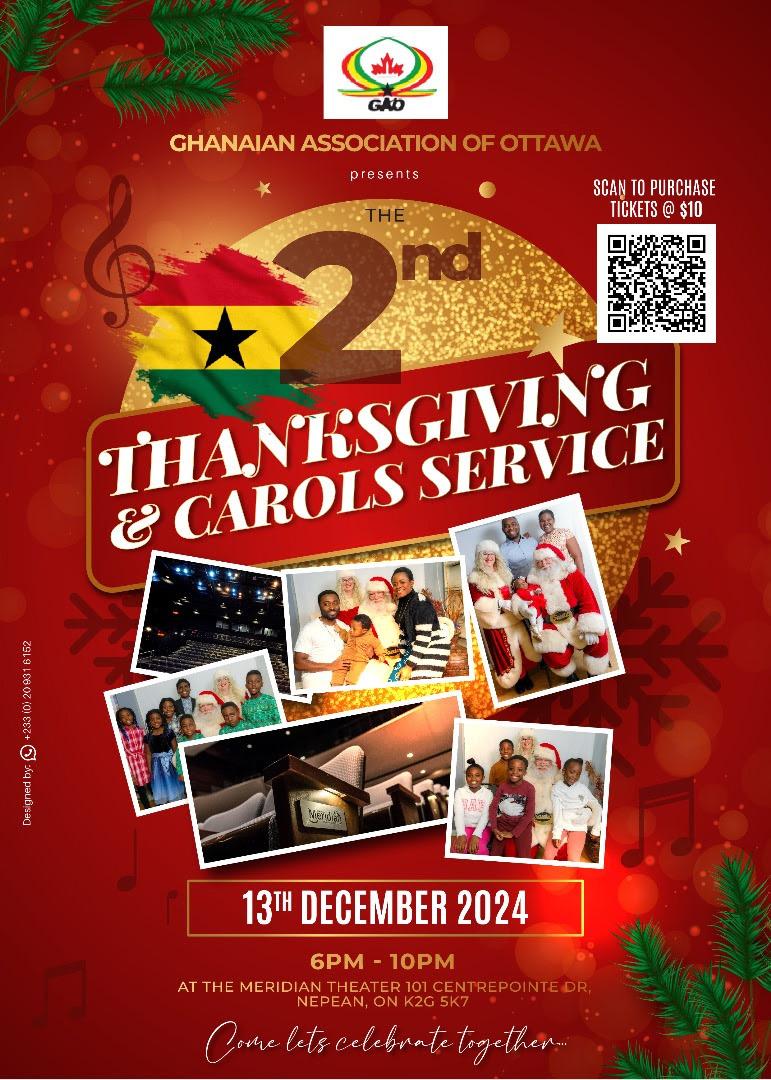
By Ghanaian News Staff Reporter, Toronto, ON
Miss Juliet Opoku (Julie Oo) CEO of Living a Balance Life Inc. and the Vice president of The Ghanaian Canadian Association of Ontario was among 100 women across Canada for Black Canadian Women Award on September 28th, 2024. Juliet humbly acknowledges, “This is the doing of the lord”.
Juliet Opoku is a registered nurse and CEO of health and wellness company Living a Balance Life Inc. for chronic illness prevention, management and mental health advocacy. She is a certified diabetes educator and bariatric educator in chronic disease management at Unison Health and Community Services in Toronto Ontario.
As a YouTube educator, she shares her expertise on chronic illness management through her channel, Living A Balance Life with Julie Oo. Her videos cover a wide range of topics, from practical tips for managing chronic illnesses to inspirational stories of individuals overcoming health challenges.
In addition to her professional roles, Juliet is a dedicated community advocate. Her tireless efforts have significantly increased access to free medications, medical equipment, and services for needy individuals, making a profound impact on the community.
She has partnered with Diabetes Canada to provide essential culturally tailored education for the management of diabetes. This unique program takes into account the cultural practices and beliefs of diverse communities across Canada, ensuring that everyone, regardless of their background, has access to the information and resources they need to manage their diabetes effectively.
Juliet also holds the position of vice president at the Ghanaian Canadian Association of Ontario, where she focuses on programming for the welfare of Ghanaians in Ontario and beyond, particularly in the areas of healthcare, education, and community development.
Juliet volunteers her time across multiple media outlets worldwide and on multiple platforms in Canada, providing health information on wellness and connecting people with resources.
Juliet’s outstanding contributions have been widely recognized through numerous awards, underscoring her expertise and commitment to community service.
She has received multiple awards from Windsor Regional Hospital for Above and Beyond Rrecognition for exceptional services and care from 2006 to 2011.
Honoured as the BBDC 2018 Diabetes Educator of the Year by the University of Toronto School of Medicine.
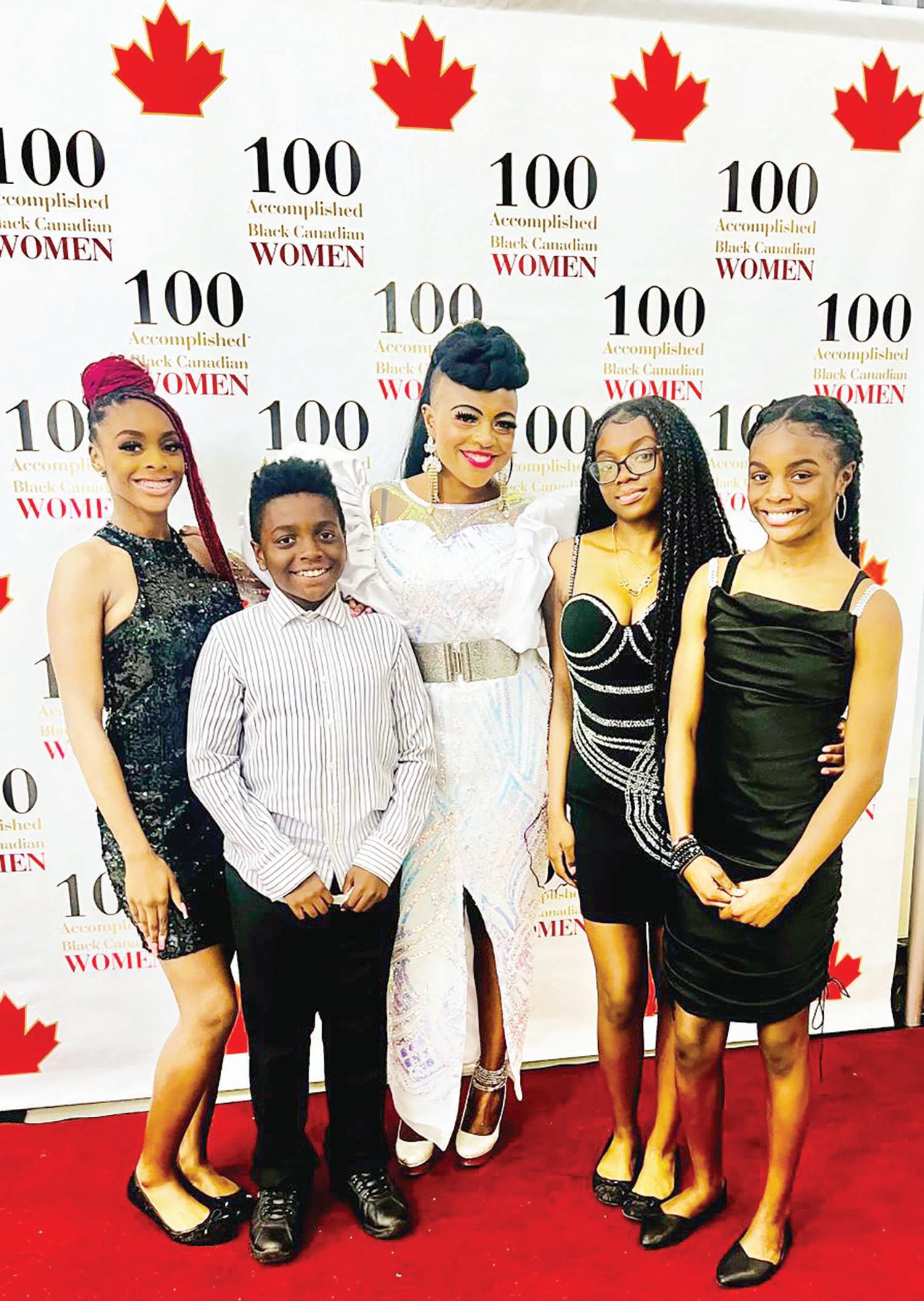

Received the Canadian Diabetes Education Certification Board Award for Excellence in Diabetes Care and Education Management.
Her excellence in community service has also been acknowledged by various cultural associations across Ontario.
Juliet’s impressive achievements are a testament to her unwavering commitment to learning and research.
Greatest Accomplishments:
Juliet’s personal life is as remarkable as her professional one, a story of resilience and dedication that many can relate to.
She is a single mother of four exceptional children, a role that she cherishes and that has shaped her into the compassionate and dedicated individual she is today.
Juliet Opoku Named 2018 BBDC Diabetes Educator of the year through the school of Medicine University of Toronto, Center For Diabetes. 2018
The Canadian Diabetes Education Certification Board recognized Juliet Opoku for the Award of Excellence in Diabetes Education Management 2019.
Excellence in Community Leadership Award by African Canadian Social Development Council. 2024
Juliet Opoku was Named Canada’s Top 100 Women to Watch for 2023 by Canada International Black Women Excellence for impactful resilience. 2023
ABEDORC Art, Entertainment and Community Service Award. 2023
Ghanaian Canadian Service Award -Ghanian News Award of Excellence in Community Service. 2023
Women of Courage Award in Excellence in Community Service. 2022
A community advocate and activist for access to health, health equipment, and medications for all continental Africans and other racialized Canadian communities.
Juliet’s reports life experiences, including her achievements, failures, and scars from her pain, are like a superwoman cape that she wears proudly. She sees them as integral parts of her journey, shaping her into the advocate and activist she is today. She firmly believes that everything happens for a reason, and it is those reasons that God uses to build her and bring positive change to the lives of the vulnerable she serves.
Premier Doug Ford has announced that his government will send out $200 rebates to every Ontario taxpayer in early 2025 in order to help with the rising cost of living.
Ford made the announcement during a press conference in Toronto on Tuesday, noting that “life is too expensive” and the money will help Ontarians deal with expenses related to inflation and the federal carbon tax.
Here is what you need to know about the rebates and when you can expect your cheque: Will the benefits be linked to income?
All Ontarians who were 18 years or older at the end of 2023 and file their income tax and benefit return for that year by the end of this December will be eligible for the rebate, so long as they are not bankrupt or currently incarcerated. Unlike many other tax benefits, the rebate will not be means tested. That will mean that millionaires or even billionaires will also be receiving a cheque. Speaking with reporters at Tuesday’s press conference, Ford defended the decision to distribute the benefit to all Ontarians, including those with high incomes.
“These are tax dollars going back to the taxpayers. We are going to give it back to every single person in Ontario and if they have a child they are getting an additional $200 because life is too expensive right now,” he said.

Premier Doug Ford
Taxpayers who qualify for the rebate will receive an additional $200 for each eligible child under the age of 18. The rebate payment for children would be automatically made to the person who currently receives a Canada Child Benefit (CCB) for that dependent. In the case of shared custody the payments would be split based on the CCB. The government says that an “alternative process” will be offered to families who did not qualify for a CCB payment for 2024 but did not provide further details. Who stands to benefit?
The Ford government says that it anticipates that
cont’d from pg. 26
low-income countries, many of them in Africa, at a disadvantage. Having the AU at the table promises more equitable policy outcomes.
Another vital aspect is the opportunity to combat illicit financial flows, with Africa losing an estimated $88.6 billion annually to activities like tax evasion, corruption, and other unlawful practices.
The AU’s involvement offers a platform to address these challenges on a global scale.
All you need to know about the G20 meeting
Finally, Africa’s vast renewable energy resources position the continent as a critical player in the global green transition. The AU’s presence in the G20 ensures that Africa’s potential contributions to combating climate change are recognised and integrated into international strategies. Cost of symbolic exclusion
The decision not to rename the G20 as G21 risks undermining the progress that the AU’s membership represents. Names carry weight—they shape perceptions, signal intent, and reflect genuine inclusivity. Refusing to adapt the forum’s name suggests a reluctance to fully embrace Africa as an equal partner in global governance.
This exclusion is more than symbolic. It perpetuates the perception that Africa remains secondary in global decision-making despite its critical role in shaping the future of the global economy, climate policy, and international cooperation.
Renaming the G20 as G21 would not only celebrate Africa’s inclusion but also signal a broader commitment to reshaping global governance to be more inclusive and representative. Failing to do so risks reinforcing the inequities that the AU’s membership was meant to address.
As the G20 convenes in Rio de Janeiro, it has an opportunity to redefine its identity and mission. Embracing Africa as an equal partner, both in substance and symbolism, would mark a significant step toward building a fairer, more inclusive global order.
Renaming the G20 as G21 would be a small but powerful gesture to reflect this transformation—and it’s a step the world should not hesitate to take.
In a multipolar world, the G20 needs Africa just as much as Africa needs the G20. Recognising this mutual dependence is key to forging a future where global governance truly serves all humanity. It’s time for the G20 to rise to the occasion—starting with its name.
By Abhishek G Bhaya is a senior editor at TRT World
approximately 12.5 million Ontarians will receive the benefit. Payments will also be issued to the parents or legal guardians of approximately 2.5 million children. The benefit will be distributed to any eligible Ontario taxpayer, regardless of citizenship.
“If they paid taxes in 2023, they are getting a rebate cheque. It is anyone who is paying taxes,” Ford said when asked whether permanent residents and those on work permits would also be eligible.
When can taxpayers expect a cheque?
The Ford government will be mailing out the rebate cheques sometime in early 2025. There will be no requirement to apply to receive the rebate.
“This is a cheque that is going to come very quickly. You don’t have to file a tax return, it is not down the road, it is going to get in your pockets really quick. That is how this government is helping people today because they need help today,” Ontario Finance Minister Peter Bethlenfalvy said during Tuesday’s news conference.
How much is this all costing?
The government has pegged the cost at approximately $3 billion. It has suggested that it is in a position to distribute the money because inflation has produced higher provincial sales tax revenue and because of the federal government’s recent changes to the capital gains tax. CP24.com & CTVNewsToronto.ca
African Union in G20- What it means for world’s second-largest continent?
cont’d from pg. 26
hunger and disaster that’s pressured to take one side or another among global powers. Some would prefer to be brokers, as shown by African peace efforts following Russia’s invasion of Ukraine.
Granting the African Union membership in the G20 is a step that recognizes the continent as a global power in itself.
Continental drift: Why Erdogan’s triumph is also a victory for Africa
What does AU bring to the G20?
With full G20 membership, the AU can represent a continent that’s home to the world’s largest free trade area. It’s also enormously rich in the resources the world needs to combat climate change, which Africa contributes to the least but is affected by the most.
The African continent has 60 percent of the world’s renewable energy assets and more than 30 percent of the minerals key to renewable and low-carbon technologies. Congo alone has almost half of the world’s cobalt, a metal essential for lithiumion batteries, according to a United Nations report on Africa’s economic development released last month.
African leaders are tired of watching outsiders take the continent’s resources for processing and profits elsewhere and want more industrial development closer to home to benefit their economies.
Take Africa’s natural assets into account and the continent is immensely
wealthy, Kenyan President William Ruto said at the first Africa Climate Summit this week. The gathering in Nairobi ended with a call for fairer treatment by financial institutions, the delivery of rich countries’ longpromised $100 billion a year in climate financing for developing nations and a global tax on fossil fuels.
Finding a common position among the AU’s member states, from the economic powers of Nigeria and Ethiopia to some of the world’s poorest nations, can be a challenge. And the AU itself has long been urged by some Africans to be more forceful in its responses to coups and other crises.
The body’s rotating chairmanship, which changes annually, also gets in the way of consistency, but Africa “will need to speak with one voice if it hopes to influence G20 decisionmaking,” Ibrahim Assane Mayaki, a former prime minister of Niger, and Daouda Sembene, a former executive director of the International Monetary Fund, wrote in Project Syndicate this year.
African leaders have shown their willingness to take such collective action. During the COVID-19 pandemic, they united in loudly criticising the hoarding of vaccines by rich countries and teamed up to pursue bulk purchases of supplies for the continent.
Now, as a high-profile G20 member, Africa’s demands will be harder to ignore.
By Abhishek G Bhaya is a senior editor at TRT World


21 Years of Experience in Family Law
Member of the Law Society of Upper Canada, York Region Family Law
Professionals specialized in the following areas of practice:
Immigration Law Other Practice Areas
* Family Class Sponsorships * Uncontested Divorce
* Sponsorship appeals * Small Claims Court Matters
* Refugee Claims * Landlord and Tenant Matters
* Humanitarian Applications * Power of Attorney
* Invitation Letters * Agreements and Wills
* Visa extensions * Bankruptcy Consultation
* Work and Study Permits
James A. Kwaateng, B.A. (Hons); LLB (Hons); CCIC Legal consultant; Commissioner of Oaths Tel. (416) 743-2758 Fax: (416) 743-7027
168A Oakdale Rd., Suite 4, Toronto, Ontario, M3N 2S5.
Wills, Powers of Attorney, Foreign Divorce
Affidavits and Declarations, Certifying and Notarising documents
By Rev. Dr. Alfred Nyamekye, Ghana
Being on time to appointments and meetings is a phase of selfdiscipline and an evidence of selfrespect.
Punctuality is the first step towards success and consistently progressing in life but the challenge with being punctual is that nobody’s there to appreciate it.
It’s a lonely path to tread. It’s not just limited to arriving at a place at right time, it’s also about taking actions at right time, at the right place and for the right reason.
Punctuality is not about being on time, it’s basically about respecting your own commitments and disciplining your own path.
The issue of punctuality is a great challenge in our African context and it is the bane of our individual mentality.
Remember the popular African quote “Black man time”?
This is the mind set that doesn’t and will not place value on the essence of time in any form.
Being punctual demonstrates a willingness to get up early everyday, plan and make every effort to complete assignments on time. It’s a sign of competence and skill that helps seed out your reliability and trustworthiness. This helps you establish your reputation as a dependable and consistent person.
Being punctual shows you are disciplined and value time yourself, and thus wouldn’t deprive others of this precious, but limited resource.
Persistent lateness puts schedules off balance and it’s one key to many a defeating and failing dreams.
Every lateness promotes a negative life effect. In fact it creates credibility defect in your life. A life of lateness makes you inefficient and less effective in life... In this way you create a disorderly life environment around you which nobody around can be proud of.
Sanitize your environment by becoming punctual in your life endeavors
Shalom.. PEACE.

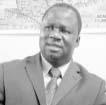














cont’d from pg. 24
customs and culture. Great! But what relevant culture are they preserving? The culture of chiefs in Ghana today is predatory and self-aggrandizing. Most only think about themselves and how much they can pillage and plunder from their poor, voiceless and vulnerable people.
With the population of Ghana exponentially increasing but with fixed, non-expandable land size, I can only foresee a time coming when people would do everything within their powers to protect their land from usurpation and seizure, sidestepping the laws and constitutional stipulations of Ghana. Danger is looming large as we have already experienced with what we call, “the Fulani menace.” With more migration from the North, including foreigners, in search of arable and grazing land, the phenomenon can only escalate. So, as a country with leaders, do we just sit down, as our custom is, for the worst case scenario to play out and then scramble for quick fixes? As the people’s anger bubble inside them, we may not have the luxury of negotiation when the bubble bursts. It can only create “the Arab Spring” type of situation where the aftermath of chaos and anarchy is very predictable.
The people of Ghana are crying and angry at the same time about their land confiscations by the very people that are supposed to protect and guard their sacred treasures. Is there anybody out there who cares and can save the situation before it escalates into chaos? Chiefs in Ghana have become predators, preying on their voiceless and vulnerable subjects. Chiefs need to know that they cannot rule over trees, or hills, or rivers or animals within their territories, but do only rule over people. It is because of people that they are chiefs. Therefore, as chiefs, they need to care about the safety, security and wellbeing of their subjects. They need to treat their subjects with respect and dignity even if they are poor or destitute folks. Any good chief would make enhancement and development of people’s lives their primary preoccupation. But, this
practice of victimizing and preying on the very people who give chiefs their pedigree is unconscionable. Their major preoccupation has become pillaging the oracles and plundering the crown jewels. In addition to confiscating the people’s legacies for chiefs’ personal usage, these chiefs act as if the practice is enshrined in their traditional mandates. It is immoral and perverse. As more and more chiefs demonstrate wanton disregard for their people’s feelings, maybe a time will soon come when chiefs may not be needed in our modern civilization. Chiefs’ behaviors in their communities have got people talking about such a phenomenon. In the era of social media and information overflow, chiefs are digging their own graves of extinction. “Buyer beware!!”
Among others, every government’s foremost obligation is to “provide safety of law and order, protecting citizens from each other and from foreign foes” (Thomas Hobbes). This obligation is sacrosanct! If a government cannot provide these basic human rights, then it is not a proper government aware of its duties. It is ironic that various governments in Ghana look on, year after year, as Chiefs in the country prey on their people. While turning the blind eye to the atrocities perpetrated by chiefs, and deaf ears to the people’s cries, they are swift to dispatch police or soldiers to quell protests by the people for inhumane treatment in the hands of their own chiefs. When criminals hold citizens hostage, government functionaries and law enforcement apparatus look the other way and seem to condone criminal activities. It appears law enforcement have become bedfellows with the criminals otherwise one wonders why they do not intervene in criminal holdups, though they know the criminals’ hideouts. Just a few years back, the youth of Techiman Traditional Council got permission to stage a peaceful protest against rampant ritual killings, scamming and defrauding by Mallams, spiritualists etc in the city. The youth and town folks have had enough of the unchecked and unstoppable criminal activities by an overwhelming number of
perpetrators. The chiefs and law enforcement in the town should have preemptively checked and run these criminals out. To the contrary, they look the other way and by the omission of duty, become accomplices. Actually, sometimes these miscreants are defended and protected by the chiefs. As soon as the youth decided to help their extenuating circumstances by ridding their town of crime and fraudulent activities, police were dispatched into Techiman, not to arrest the criminals who are well-known, but to arrest the protestors who assume the job of protecting their families and the town folks from criminal gangs. If there are any genuine leaders and not themselves predators, looting and sharing the natural birthrights of Ghanaian citizens, would such leaders rise to the occasion? Somebody must explain why they do not chase and arrest criminals, but turn around to arrest people who are trying to protect and keep their communities safe (Citifmonline.com, March 25, 2018). Why does law enforcement arrest the people who are trying, in their own limited ways, to do the job that the government promised but has failed to do? Did citizens vote the government into power to also suppress people’s birthrights and oppressively silence their voices of protests into subjugation? Is anybody on the people’s side or should communities build their own security forces? Is the government using the law enforcement apparatus to suppress and oppress its citizens into silence? Watch out!!
This land tenure practices in Ghana must be resolved sooner rather than later, because I am afraid of the so many boiling hearts out there that might fight back if nobody fights for them. Remember, life is about survival and in irrational environments (jungle), the fittest and the most resilient survive. Can justice be granted the people of Techiman Traditional area especially, the people of the village of Oforikrom? Does anybody care?
By Yaw Ofori-Amanfo


* You don't need to go to the Port * You don't need to see any Agent
* Just see a CARGO-LINK Representative in Accra & Kumasi for your Safe & Affordable Shipment
* We also do door to door in Accra & Kumasi at very low transportation cost (EXTRA)
* We give Bill of Lading too to those who want to clear their own goods




416-736-9973 Contact: Regina or B'B Manu






By William Doyle-Marshall, Victoria, BC
Calypso music out of Trinidad and Tobago has been in the forefront of informing collectors about things – whether they have gone or on the horizon. History, culture, politics, race relations and of course the impact of racism and slavery on the lives of the people of the world. Because most of the well-established calypsonians and composers have been based in the Caribbean, it is only natural that we can locate them in various parts of the world like the Caribbean, African nations, North America, the United Kingdom and elsewhere.
The months of August and September are important for Trinidad and Tobago. The twin island became independent from Britain August 31,1962 and a few years later became a Republic on September 23. Early in its independence Cosmopolitan was the term used when promoting tourism to the twin island state. As a result Calypso, Steelband and masquerade were the pivots upon which the country was hoisted.
As a result, the country’s calypso music has been in the forefront informing music collectors and others interested in the affairs of the country about many things – whether they have gone or may still be on the horizon. History, culture, politics, race relations and of course the impact of racism and slavery on the lives of the people of the world.
Because most of the well-established calypsonians and composers have been based in the Caribbean, it is only natural that we can locate them in various parts
of the world. Most remain at home, but others have migrated to African nations, North America, the United Kingdom and elsewhere.
Alston Cyrus whose stage name is Becket has created various hits that touch various social, political and cultural issues that have earned him numerous titles. He has been honoured by the Government of his land of birth St. Vincent. Here he sings about how Oppression which has affected everyone in the Caribbean and around the world. “Survival is a hell for Brotherman in every nation of the Caribbean,” he laments. He emphasizes the people in the region are suffering in the Caribbean because of stinking Oppression.
Repressive education -- so many brothers on the corner all because no school to go, no work to do. the cry in Saint Kitts – Oppression; the cry in Nevis – Oppression. In Antigua – Oppression; in Dominica – Oppression. “Oppressors leave we alone. Oppressors come off the phone,” Becket pleads.
Dr. Hollis Urban Chester Liverpool known in the world of calypso as Chalkdust, has captured the national Calypso Monarch title in Trinidad and Tobago nine times with very interesting and captivating compositions. He stands out from his colleagues because of the contents of his material that covers a wide range of topics. Liverpool does not fall in the wine and jam type of compositions that seem to capture the exuberance of most party-goers. You may wonder why. Dr. Liverpool has been influenced by some of the top observers of the cultural scene.
In a book titled “Carnival in Trinidad and Tobago” published in 1977 the national calypso king acknowledges there are several reasons that prompted him to embark on his study. One stems from the fact that Carnival in my opinion today tends to be too much tourist-bent, while the locals seem to be sitting on the fence. Liverpool acknowledges that Albert Gomes, a retired politician on returning to his native home in 1975 mentioned he “would like to see the government giving carnival back to the people. Gomes felt carnival was becoming a fete where the parades were being emphasized “to the detriment of the kind of folklore aspect”.
In one of his calypsos Chalkdust sings “Pride is the grandfather of all virtues. It gives you strength to chase away the blues why we must never lose or abuse. National pride, he emphasizes the value of all Trinidadians displaying especially when they go for holiday and hear a kaiso (calypso) play.
“I does feel proud, real proud when I sit down in my national stadium and when my Beewee (British West Indian Airways) plane lift off the ground pride does make my heart drum. But when they say that Tom Adams (late Barbadian) Prime Minister outsmarted Eric Williams Prime Minister of Trinidad and Tobago and get a whole airport scotch free. Chalkdust feels the hurt of being laughed at by Barbadians over the issue. He sings about the hurt he feels when he goes to Barbados and find their airport “nicer than mine and Bajans laughing at me oh the pain that I does feel inside, the grief I cannot hide them Bajans choking my national pride.”
“For everything there is a season, and a time for every matter under Heaven. A time to be born and a time to die, a time to plant and a time…. -Ecclesiastes 3:1-8.”
“Everything has its own time and there is a specific time for every activity under Heaven”-God’s word. But Adwoa, you’ve left us to your maker too soon. However, we cannot question God. Our hearts are heavy. We are engulfed deeply in sorrow. Then again, God knows best and we give Him thanks and praises for your life on earth with us. God has called one of His best angels’ home where there’s no pain or suffering. Her courageous soul is amongst all of her preceding loved ones. With many shared stories, lots of love and laughter, acts of kindness and humility, expressions of gratitude, many lessons learned and many roads crossed, we will forever treasure and cherish the precious moments and your eventual liftin our hearts. We are gathered here and in spirit with Adwoa’s Aunties, Uncles, Cousins and the rest of the Asonaba Konadu Yiadom, Nana Ofori, Pinako, Oyoko and Fiscian families in Ghana and elsewhere to celebrate your glorious lift and worthy contributions to all. Rest in eternal peace and comfort nestled deeply in the soft folds of our Heavenly Father’s Robe. Your light and legacy will live forward among all of us.
Born March 21st 1977, Adwoa NyantakyiwaaBoahen, was a baptized Catholic who started her kingdergarten and primary education at Our Lady of Airways Primary School. From there, she went to St. Cardinal Newman Catholic Elementary School and continued at St. Thomas Aquinas Secondary School. After High School, she went to Humber College for her diploma in the General Arts Program before proceeding to York University.
Her sense of humor was intact even when she was bed-ridden. She was a brave, strong, and courageous woman who rather encouraged us not to worry for she believed God will redeem and heal her of her pain and suffering. She would stare at my face and quip- “You look disturbed, why, don’t worry Daddy, I will be okay”. She gave me the hope and strength to be with her until she took her last breath to be with her maker.
Her strong Catholic belief encouraged the whole family to come together in constant prayers. She would occasionally remind me when I am about to leave her bedside not to forget to pray the Rosary for her.
The Chaplin at Credit Valley Hospital, Father Bosco during what was to be his last visit to Adwoa, in prayers and conversation asked Adwoa if she had something to say. Adwoa, quoted a few verses from the Holy Bible and at the end made this profound statement to all of us (Father Bosco, Maame and myself) that- “I know God will carry my cross for me”. Her encouraging words were

a source of strength and made us believe in miraculous healing. But it was not meant to be, because her maker wanted to relieve her from further pain and suffering to be with Him and be amongst the Angels in Heaven.
After graduating from York University with a Bachelor of Arts in Psychology, she pursued further studies to obtain a diploma in Human Resources at Centennial College in Scarborough. She joined Royal Bank Insurance for some time and later became a broker with Arthur G Gallagher -a position she held until her demise.
Her expertise in cooking delicious Ghanaian cuisine would be missed. She obligated herself in preparing and cooking Thanksgiving dinner for the whole family every Thanksgiving holiday. She spoke of it in early September when she was at the hospital. She hoped to cook Thanksgiving dinner for the whole family and friends in the just past Thanksgiving Day. But alas, it was not meant to be, Adwoa passed on to eternity on that fateful Thanksgiving Day, October 14th 2024 at exactly 09:05 am. It was a Monday, her actual birthday. She will forever be in our hearts and on our minds, particularly on Thanksgiving Days. We have to be thankful to God for calling Adwoa home to join his Angels in Heaven on a Thanksgiving Day.
Adwoa had the entrepreneurial spirit and acumen for doing business. These qualities I strongly believe were acquired or induced through the business talents and legacies of her grandparents- The Asonaba Konadu and the Ofori families in Ghana.
She was a smart and mature daughter. She applied a good sense of discernment in her daily encounters with humanity-she was
a kind, humble and compassionate individual who always exhibited respect for the elderly and authority. Her natural flair for doing business made her one of the top-notched vendors/sales in the Ghanaian and African in general; fashion world. She veered into this business seven years ago and with the help of her Auntie in Ghana and Alberta, her husband, dad and sisters her business GYE NYAME (GYN) enterprise has grown to be one of the leading companies in African fashions in Ontario. Her children’s future and well-being were always on top of her mind. She countless on occassions mentioned that the business belonged to her kids’ future.
Her love for tradition and culture naturally motivated her into various cultural shows within the GTA and beyond. She had a special passion for the Brampton Annual CARABRAM Festival. She was a strong and active participant. She promoted multiculturalism and diversity within Brampton and elsewhere. The mayor of Brampton, Patrick Brown honored her with several awards for her contributions to the city on several occasions and the most recent award was this past summer before she fell ill. Adwoa together with her husband were the co-chair of the African Pavilion in the last CARABRAM show. CARABRAM showcases the diversity in arts, fashion, crafts and culture of various ethnic groups in Brampton.
By God’s grace, Adwoa left us two beautiful children-Abygail and Nana. We thank God for this and we pray that your torch or baton will pass onto them to complete any unfinished business or intents you had for them and yourself. We know your heart desires were for them to grow gracefully, be God-fearing, very well educated and respectful citizens. We will fervently work, pray and encourage them to achieve these goals. The excellent foundation you have laid down for them makes it easier for us to build them up. We all know how you wanted them to be raised. The whole family is committed and bound to take care of them to be the good, intelligent and successful beings you always prayed for them to be.
A big vacuum has been left with your absence. You were the center-anchor of the family (your cousins and siblings). You fought a courageous fight. I will forever remember and cherish every bit of fun stories, your words of wisdom and advice. Thank you for all the respect and assistance you accorded me during your stay on this earth.
Rest well in the bosom of Nana Abraham. Our regards to all who have gone before you. Until we meet again, DAMIRIFA DUE My Dearest.
Nana Kwame Opoku Boahen (Daddy)
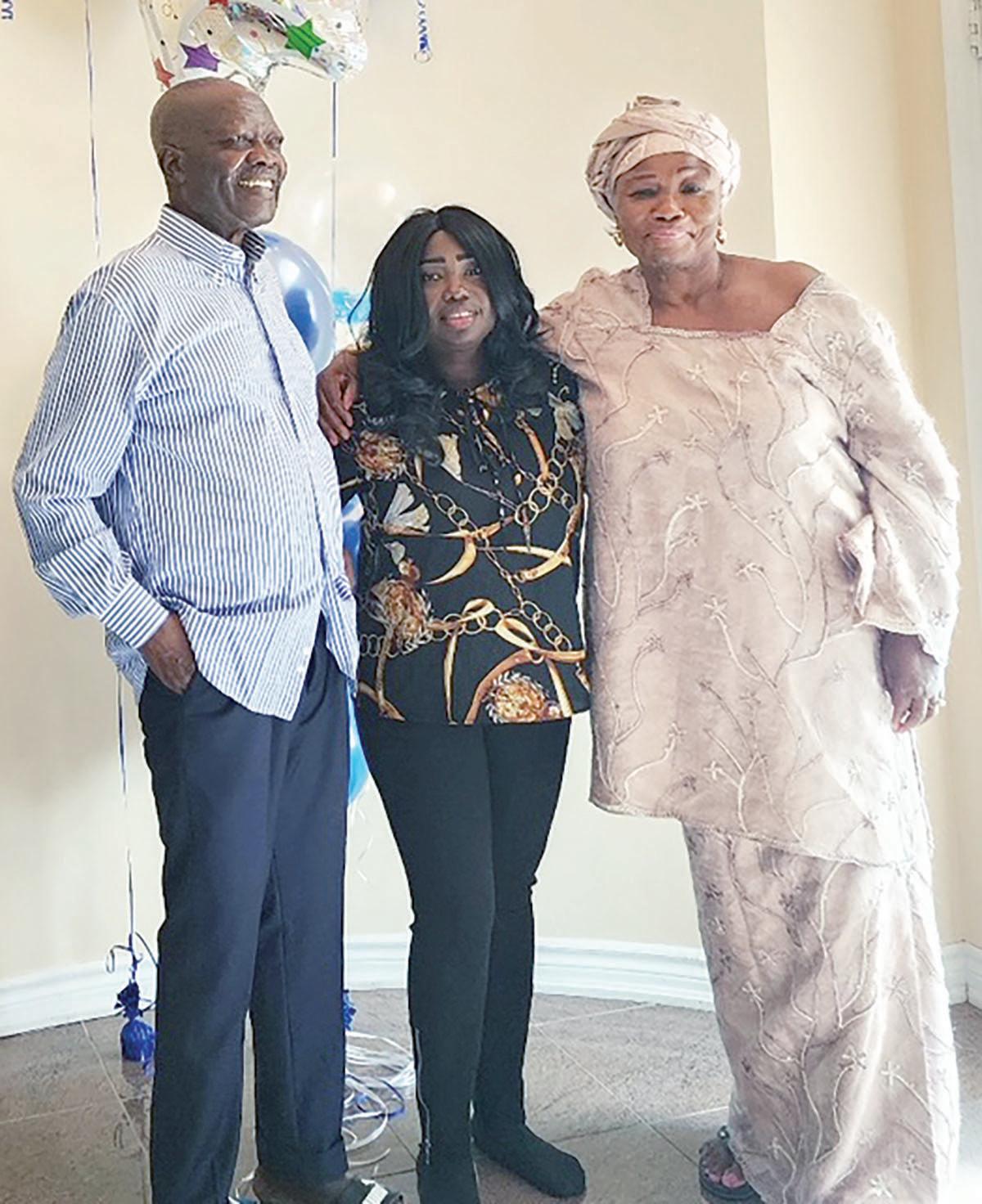
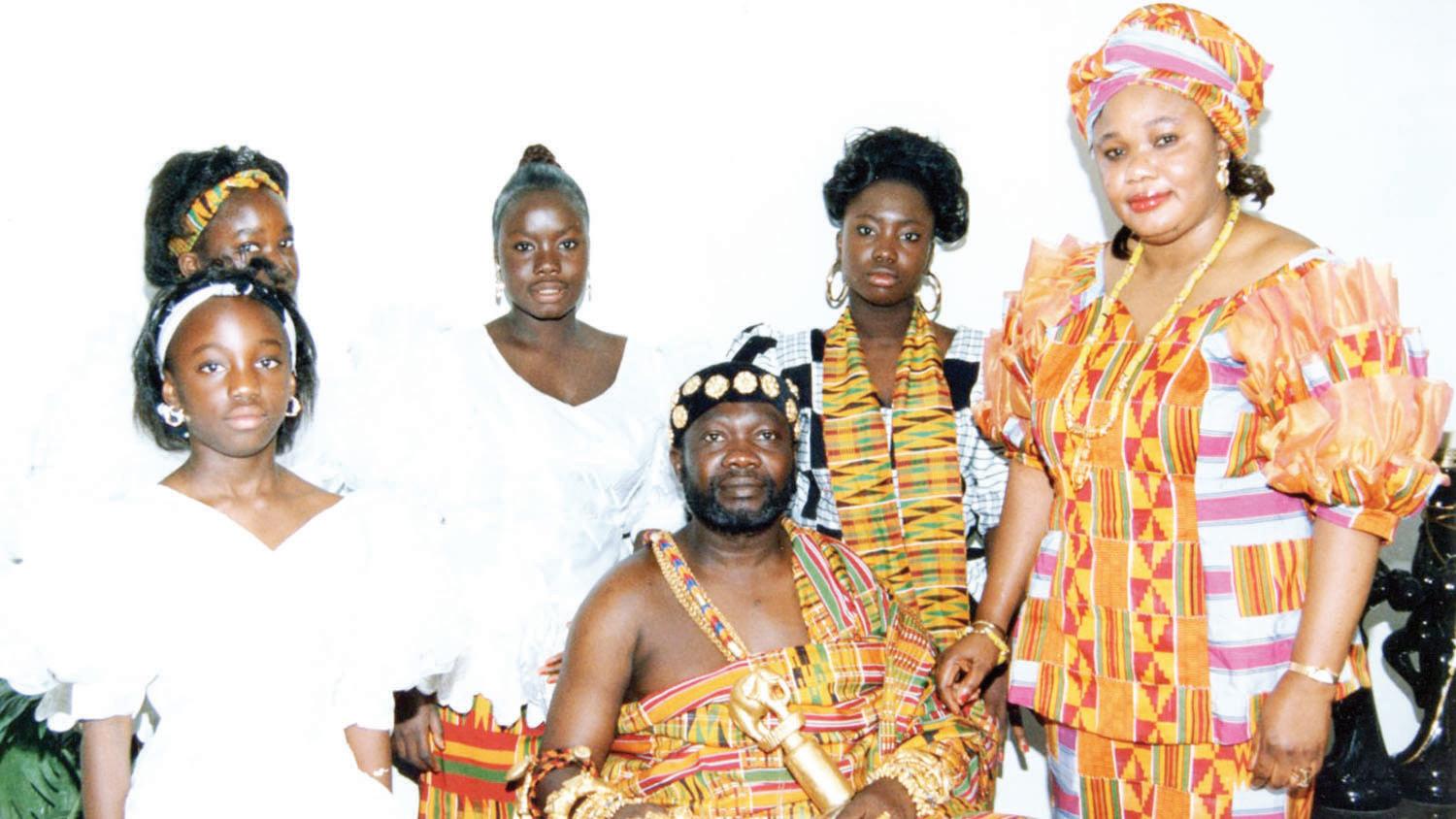


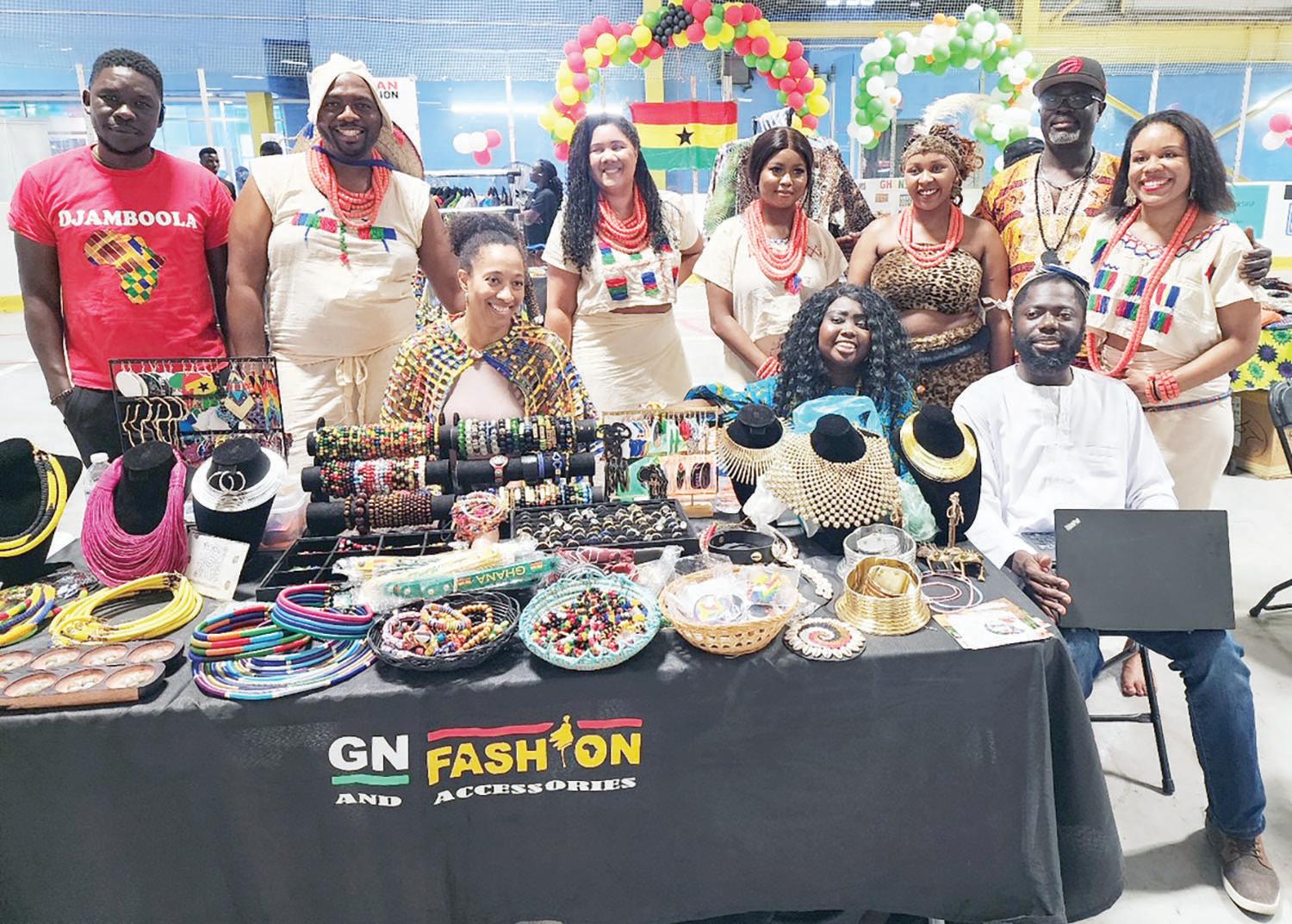


By Emmanuel Ayiku, Toronto, ON
On the Faithful day of October 14th 2024, Nana Adwoa Boahen passed away at Brampton Civic Hospital after protracted illness, Nana Adwoa Nyantakyiwaa is the daughter of Hon. Nana Boahen and Nana Pokuaa. Nana Boahen was the former Toronto Asantefou hene, former Ghana Consul General of Toronto and former Deputy Ghana High Commissioner to South Africa.





Nana Adwoa was laid to rest after viewing was held on Friday and Saturday November 15th and 16th at the Brampton Funeral Home, burial took place at Queen of Heaven Catholic Cemetery, Hwy 27, Woodbridge. Final Funeral rites were then held at the Apostles Continuation Church Banquet hall on Saturday night.
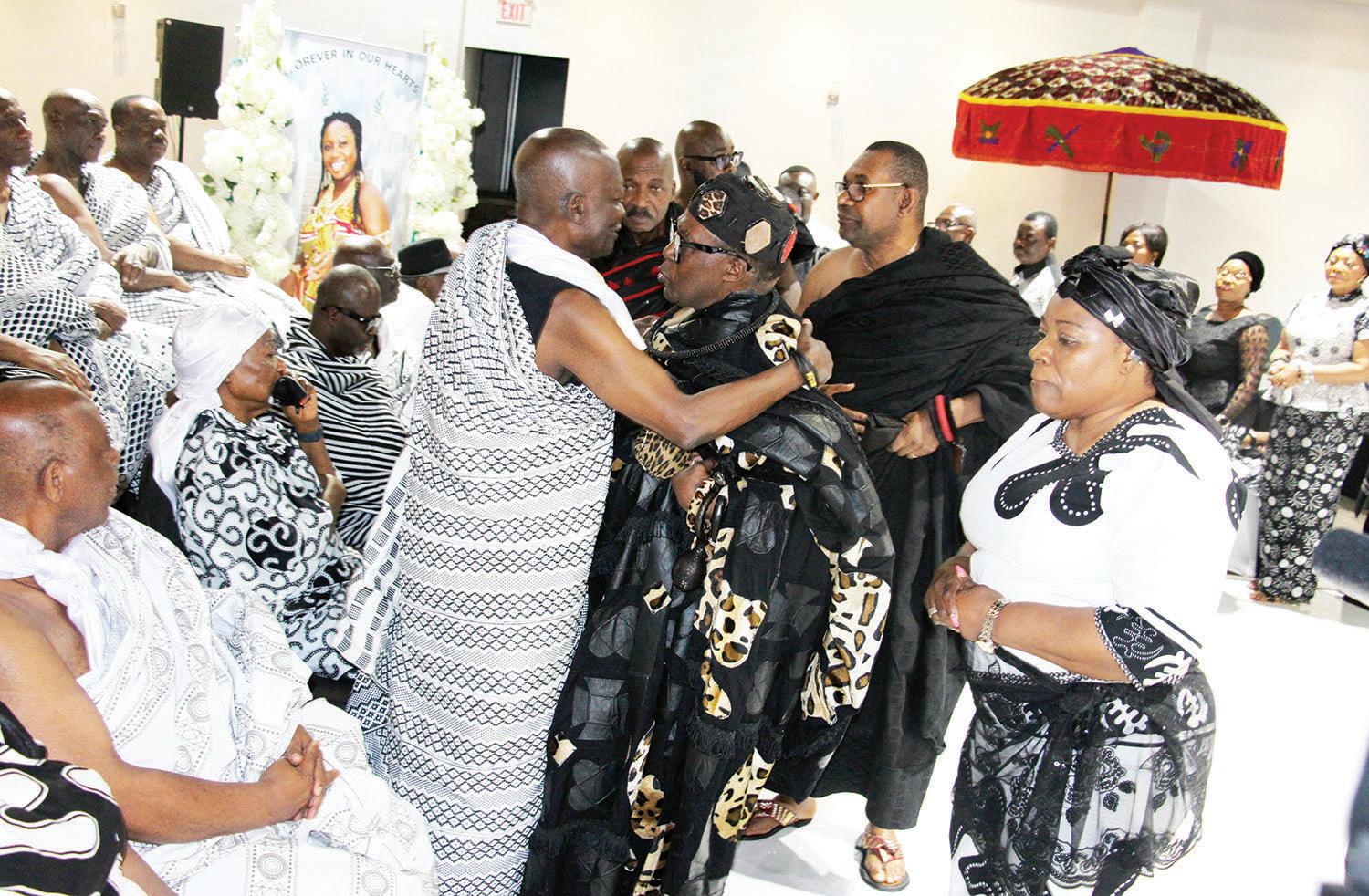
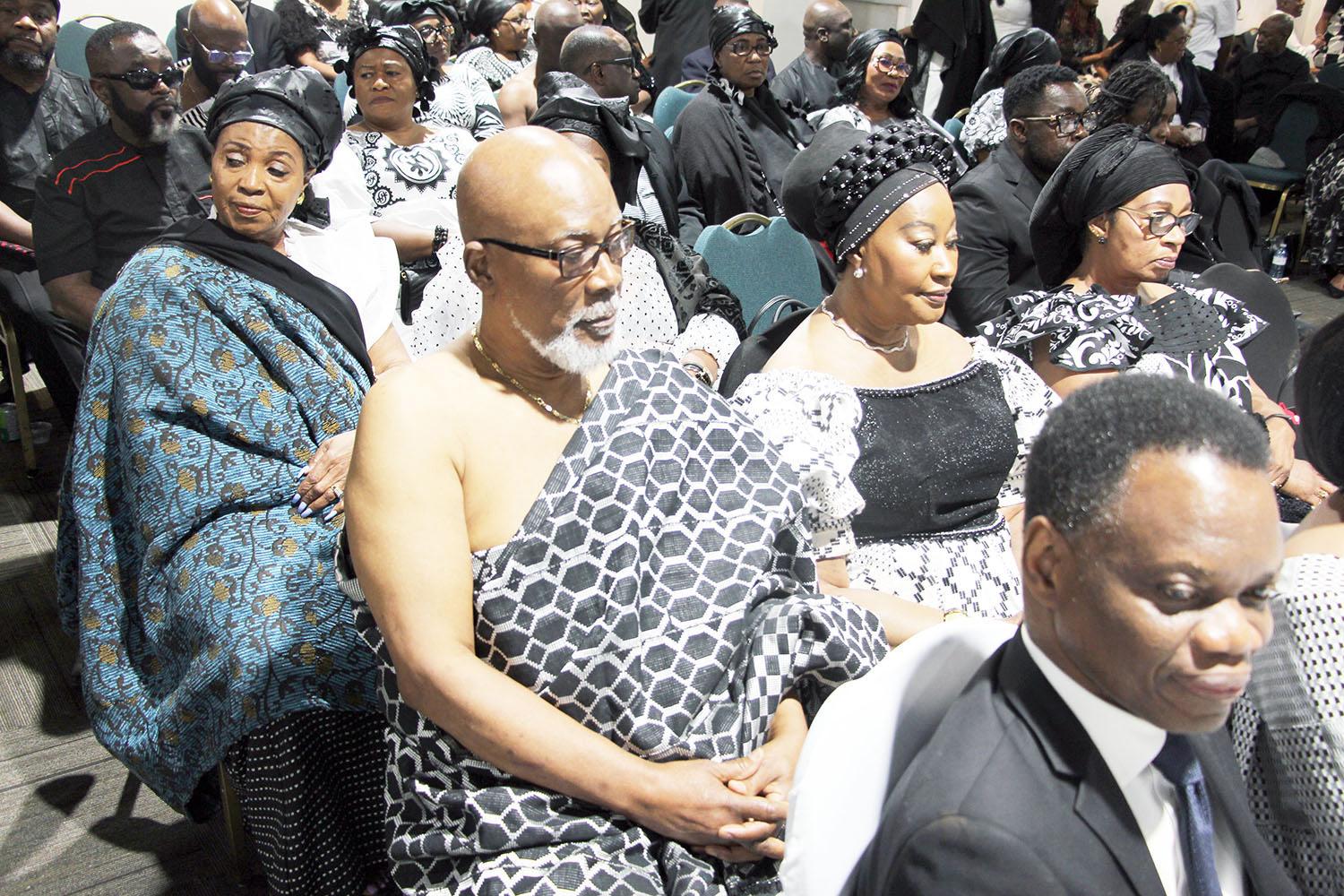

BY CHIDI ANSELM ODINKALU AND CHEPKORIR SAMBU
Debating Ideas reflects the values and editorial ethos of the African Arguments book series, publishing engaged, often radical, scholarship, original and activist writing from within the African continent and beyond. It offers debates and engagements, contexts and controversies, and reviews and responses flowing from the African Arguments books. It is edited and managed by the International African Institute, hosted at SOAS University of London, the owners of the book series of the same name.
When Africa’s leaders gather in different global capitals these days, whether as props for summits of the G-7 or ostensible partners of their hosts in Beijing, Brussels, Moscow or Washington DC, it is easy to forget that the foundations of contemporary multilateralism were laid 140 years ago at a meeting in Berlin which had the continent as the sole course on the menu.
Described by one scholar on its centenary as “perhaps the greatest historical movement of modern times”, the Berlin West Africa Conference began shortly after noon on 15 November 1884. Interrupted only by a short break for Christmas at the end of the year and another to mark the New Year in 1885, historian Adu Boahen records that the conference ended on 31 January 1884. The following month, on 26 February 1885, the powers gathered at the conference ratified the General Act of the Berlin Conference, the Treaty which embodied their agreements. The week before the ratification of the General Act, according to historian, Godfrey Uzoigwe, the Lagos Observer newspaper lamented that “the world had, perhaps, never witnessed a robbery on so large a scale.”
Among the six goals identified by the General Act, two concerned the basin of the Congo River; two others were addressed respectively to the navigation of the Congo and Niger rivers; one concerned the slave trade and the overarching provisions set out “rules for future occupation of the coast of the African continent.”
Of the 15 countries that attended the conference, 14 were European: the United Kingdom, France, Germany, Austria-Hungary, Belgium, Denmark, Spain, Italy, the Netherlands, Portugal, Russia, Sweden-Norway, and the Ottoman Empire (Turkey). All the European powers signed on to the General Act. The United States of America (USA) was the only non-European country at the table and also the only participating country that did not officially ratify the resulting treaty. From Africa, the Sultan of Zanzibar had equally sought representation at the conference but had his ambition derisorily blocked by the United Kingdom.
Otto von Bismarck, Chancellor of Germany which attained unification only 13 years earlier in 1871, hosted the Berlin Conference. Six years earlier, he had similarly played host to the Congress of Berlin called to stabilize the Balkan Peninsula at the end of the Russo-Turkish War in 1878. There was an irony to the fact that the same venue was to serve as the site of a conference to Balkanize a distant continent of some 11.7 million square miles or about 30.37 million square kilometres. For context, this is territory big enough to contain all of the USA, India, Europe, Argentina and New Zealand combined with some room to spare.

The onset of the Scramble for Africa preceded the Berlin Conference but the conference crystallized rules and doctrines that would govern the subsequent carve up of the continent. In opening the conference, von Bismarck captured the terms for its deliberations. It was to regulate “the terms for the development of trade and civilization in certain regions of Africa”; assure free navigation of the Congo and Niger rivers; anticipate and avoid disputes as to new acts of territorial occupation in Africa and “further the moral and material wellbeing of the native population.”
The aftermath remains controversial for predictable reasons at the levels of individuals, communities, states and inter-state relations in Africa. The continent lives with the consequences of decisions in which it did not participate and whose records are also outside its control. While the lingering consequences of Berlin continue to be debated, a few deserve to be highlighted.
First, as is evident from Otto von Bismarck’s stipulations, the conference objectives and outcomes infantilized Africa and its peoples at best. It also originated a disposition that arguably habituated the world to the continent as lacking in agency and its territories as lacking in history or civilization prior to the occupation that followed in the wake of the Berlin Conference. These ideas were to be subsequently embodied in doctrine, jurisprudence and treaty law. The Judicial Committee of the Privy Council, as the highest court of the United Kingdom for its colonial territories and protectorates was called, for instance, ruled in 1918 that African territories were “so low in the scale of social organization that their usages and conceptions of rights and duties are not to be reconciled with the institutions or the legal ideas of civilized society.”
The court offered no authority or support for this decision because there was none. The pillaging of the continent’s art and creativity, which occurred in the period preceding this judgment, in fact provides evidence to the contrary. Yet, this jurisprudence made its way into the provisions of Article 22 of the League of Nations Covenant which referred to these territories as being “inhabited by peoples not yet able to stand by themselves under the strenuous conditions of the modern world.”
Second, the logic of colonial occupation made atrocity inevitable. The traumas from that have assumed intergenerational dimensions in Africa. Looking back at the period preceding the conference, however, Adu Boahen recalls that Africa “was far from being primitive, static, and asleep or in a Hobbesian state
of nature.” The rules of the conference precluded any items on sovereignty whether of the European states or of the African territories. Yet the outcome created a logic that encouraged adverse assertions of sovereignty over African lands and peoples. John Kasson, the lead US delegate to the conference had argued that the establishment of “productive labour” in African territories “can only be arrived at through the permanent establishment of a peaceful regime.” In actuality, the idea of permanent establishment of a peaceful regime over other people’s lands could only occur through occupation and rapine.
This is exactly what ensued in the aftermath of the doctrine of effective occupation consecrated by the General Act of the Berlin Conference. This was embodied in the obligation assumed by the parties in Article 35 of the General Act “to insure the establishment of authority in the regions occupied by them on the coasts of the African continent sufficient to protect existing rights, and, as the case may be, freedom of trade and of transit.” Seven of the 14 countries present at the Berlin Conference went on to become occupying powers in Africa, namely: France, Britain, Germany, Portugal, Belgium, Italy and Spain. Their campaigns of occupation were accompanied by violence which has been described as “brutal and deadly.” In the quarter century from the end of the conference to 1910 when the period of active territorial occupation occurred, nearly every affected African country experienced steep decline in population. The signal case was King Leopold’s Congo Free State about whom it has been said that the population crashed from “20 million in 1891 to only 8,500,000 in 1911”. In other words, the King’s system resulted in the death of between 10 and 11.5 million Congolese as “a very conservative estimate.’” In many other locations, including SouthWest Africa (Namibia); Tanganyika, and South Africa, the colonial occupation was attended by unspeakable atrocities. Contemporary movements for acknowledgement and reparations barely scratch the surface.
Third, as Ali Mazrui points out, the Berlin Conference ultimately saddled Africa with twin crises of both state legitimacy and governmental legitimacy. Governed as they were by logics of arbitrary and convenient externalities, colonial territorialization made no effort to foster legitimate political communities. The methods of divide and rule and of indirect rule, which defined colonial administration, instead encouraged adversiarialism instead of coexistence within countries. As colony yielded to post-colony,










( SOCIETIES UNDER THE GHANA METHODIST CONFERENCE)
The Superintendents Minister-In-Charge invites you to worship with us
Toronto Society
Place of Worship: 69 Milvan Drive, North York, Ont. (Finch Av./Milvan)
416-743-4555 (Office) 905-216-2323 (Residence)
Day and Time of Worship:
Sunday: Bible Class Meeting: 10:00 a.m. - 10.30 a.m.
Church Service: 10:00 a.m. - 1:00 p.m.
Jericho Hour Prayer Meeting - 8:00 p.m. - 9:00 p.m.
Wednesday Mid-day Prayer - 1:00 p.m. - 2:00 p.m.
Friday: Bible Teaching/Prayer Meeting 8:00 p.m. - 9.00 p.m.
Saturday Organizational Meeting: 6.30 p.m. - 9.30 p.m.
Sunday Brampton Prayer Meeting 8:00 p.m.
Edmonton Methodist 778-237-7339
Ottawa Methodist 613-315-3443

BETHANY METHODIST CHURCH-BRAMPTON
PLACE OF WORSHIP-1A KNIGHTSBRIGE ROAD (Senior’s Lounge)
Sunday Divine Service - 2PM-5PM Online Prayer Meeting Fridays at 8PM -9PM 416-800-4317
Code # 9632581
Contact: Robert Frans (289-541-5579) Felix Gyimah (289-931-8443)
Location: 955 Wilson Ave., Unit 12, North York, ON
Weekly Service Schedule: Monday 7 pm - 8 pm
Online Bible Study: Thursday 7 pm - 8:30 pm, Prayer Meeting Friday 7:30 pm - 9 pm Divine Service, Sundays 10 am - 12:30 pm Contacts: Agnes Donkor - 647-881-4808, Felicia Owusu - 647-533-1093, Grace Kubi - 647-608-5373
Holy Trinity Methodist Church, Montreal
Place of Worship: 455 Church Street - Beaconsfield Qc H9W 3S6
Day and Time of Worship
Sunday Divine Service: 12:30 p.m. - 3:30 p.m.
Friday Prayer Meetings: 7:00 p.m. - 9:00 p.m.
Contact: Bro. Joselin Twumasi 438-881-6640
Ebenezer Methodist Church
Stoney Creek United Church (Chapel)
1 King Street West, Stoney Creek, Hamilton
Contact: Bro. Kofi Bonsu 289-684-6074
Worship Time: 11 am to 1 pm
Peniel Methodist
Church Vancouver #2322 1248 82 Ave. Surrey, BC, V3W 3E9 Sister Comfort T. Owusu 647-895-7131
Worship Time: 9 am to 10:30
SERVICES ARE CONDUCTED FOLLOWING THE TRADITIONAL GHANA METHODIST LITURGY. PLEASE COME AND JOIN US. WE HAVE A PLACE FOR YOU. GOD RICHLY BLESS YOU
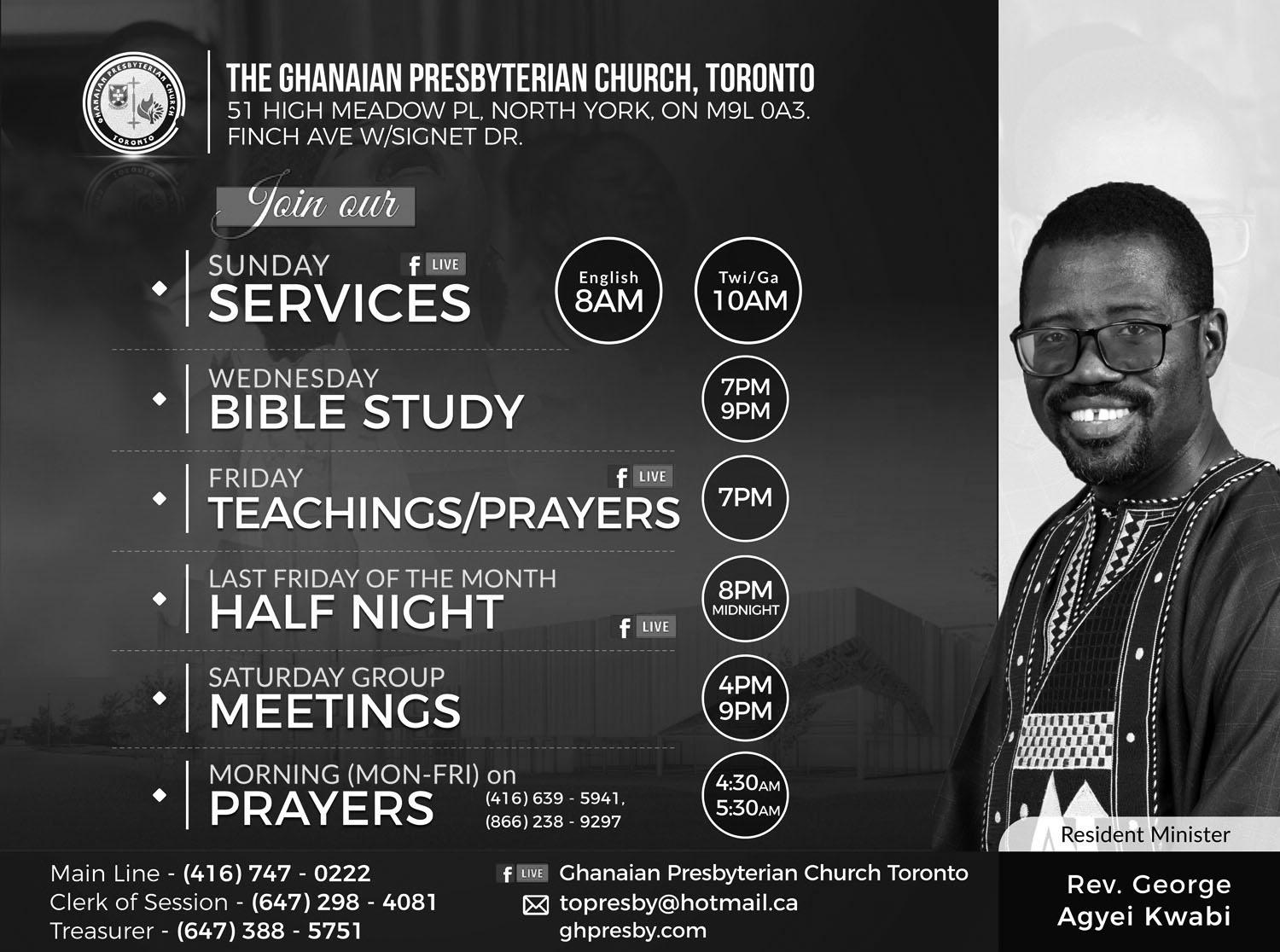
By
“The only person you are destined to become is the person you decide to be.” - Ralph Waldo Emerson 1
“I have told you these things, so that in me you may have peace. In this world you will have trouble. But take heart! I have overcome the world.”
John 16:33:
AN INDOMITABLE WILL: A REFLECTION ON PERSEVERANCE AND PURPOSE
In the journey of life, there are few qualities more essential than an indomitable will. It is the driving force that empowers us to overcome adversity, persist through trials, and fulfill our God-given purpose. As a pastor and theologian, I have witnessed this unyielding spirit at work in both scripture and the lives of everyday people. It is a testament to the resilience of the human spirit when anchored in faith and conviction.This unyielding determination fuels the human spirit to rise above adversity, break barriers, and achieve greatness against all odds. But what exactly is an indomitable will, and how can we cultivate it in our lives?
UNDERSTANDING AN INDOMITABLE WILL: WHAT IS AN INDOMITABLE WILL?
An indomitable will is a quality that allows individuals to persevere through challenges, obstacles, and setbacks. It’s the inner strength that propels us forward, even when the path seems insurmountable. It’s the unwavering belief in oneself that fuels our determination and resilience.
An indomitable will is the unwavering resolve to persevere, no matter the challenges or setbacks encountered. It’s the force that keeps us going when the path is uncertain, the storms are relentless, and the odds seem insurmountable. This type of will is not merely about stubbornness or obstinacy; it is about resilience, adaptability, and a relentless pursuit of purpose.
Famous figures like Nelson Mandela, Helen Keller, and our Lord, Jesus Christ exemplify this trait. Mandela’s unyielding commitment to justice kept him steadfast through 27 years of imprisonment. Helen Keller overcame the dual barriers of deafness and blindness to become a world-renowned author and activist. Christ’s quiet yet unshakeable determination brought the

world peace and salvation, using the power of nonviolent resistance.
In a world filled with uncertainties and obstacles, an indomitable will becomes aninvaluable asset. It empowers us to:
• Overcome Adversity: When faced with challenges, an indomitable will enables us to maintain a positive outlook and find creative solutions.
• Transforms Adversity into Growth: Challenges are inevitable in life, but an indomitable will helps us view obstacles as stepping stones rather than stumbling blocks. It fosters a mindset of growth, turning failures into valuable lessons.
• Achieve Goals: By staying focused and persistent, we can turn our dreams into reality.
• Drives Progress: Whether it’s personal development, professional success, or societal change, a relentless will enables individuals and communities to push boundaries and create lasting impact.
• Build Resilience: An indomitable will helps us bounce back from failures and setbacks, making us stronger in the process.
• Inspire Others: Our unwavering determination can motivate those around us
to persevere and achieve their own goals.
• Inspires Others: People with an indomitable will become beacons of hope and inspiration. Their stories ignite courage and determination in others, creating a ripple effect of positive change.
CULTIVATING AN INDOMITABLE WILL
1. Define Your Purpose: Clarity of purpose provides a foundation for perseverance. When you know your “why,” it’s easier to stay the course.
2. Embrace Resilience: Develop the ability to bounce back from setbacks. Resilience is like a muscle – the more you use it, the stronger it becomes.
3. Focus on What You Can Control: An indomitable will thrives on proactive effort. Concentrate on actions within your sphere of influence and let go of what you cannot change.
4. Cultivate Discipline: Consistent, deliberate actions build momentum. Discipline is the bridge between goals and achievement.
5. Surround Yourself with Positivity: Seek out relationships and environments that encourage growth, optimism, and determination.
6. Embrace Challenges: Instead of fearing challenges, view them as opportunities for growth and learning.
7. Set Clear Goals: Having clear goals gives you a sense of direction and purpose, motivating you to keep pushing forward.
8. Develop a Positive Mindset: A positive mindset can transform your perspective and help you overcome obstacles.
9. Practice Gratitude: Focusing on the positive aspects of your life can boost your overall well-being and resilience.
10. Learn from Failures: Instead of dwelling on setbacks, use them as valuable learning experiences.
11. Build Strong Relationships: Surrounding yourself with supportive people can provide encouragement and motivation.
12. Take Action: Don’t just dream about your goals; take concrete steps to achieve them.
13. Lean on Your Community: God created us to live in fellowship with others. Seek support, encouragement, and wisdom from those around you. Together, we can carry burdens that feel insurmountable alone.
14. Pray Without Ceasing: Prayer aligns our will with God’s and provides the strength we need to keep going. It is a reminder that we are never alone in our struggles.
For many, an indomitable will is deeply rooted in faith. It draws strength from
cont’d on pg. 46
Sunday
am
LOCATION
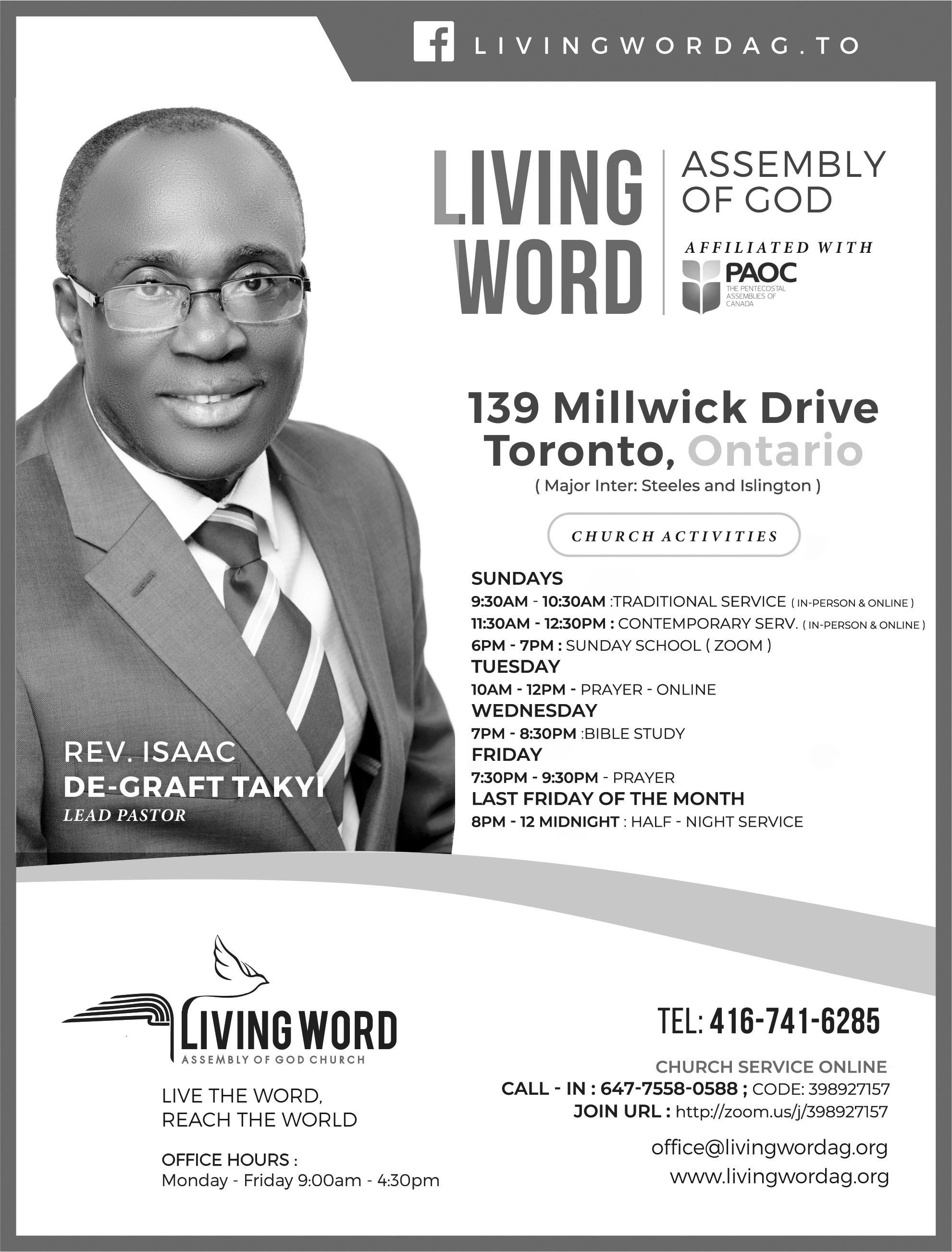

the belief in the creator of the heaven and earth and the assurance that every trial serves a divine purpose. The Bible reflects this in verses like Philippians 4:13: “I can do all things through Christ who strengthens me.” Such faith provides an anchor, enabling believers to endure with grace and perseverance.
Faith plays a critical role in nurturing an indomitable will. It offers us a perspective that transcends the immediate and connects us to the eternal. Faith reassures us that our struggles are not in vain and that God is present in our trials. As Isaiah 40:31 reminds us, “But those who hope in the Lord will renew their strength. They will soar on wings like eagles; they will run and not grow weary, they will walk

Sunday School: 10a.m. -11:00a.m.
Service: 11a.m. - 1:30p.m.
7p.m. - 8:30p.m.
7p.m. - 8:30p.m.

and not be faint.”
This divine assurance gives us the courage to press on, even when the road ahead seems impossible. It empowers us to view obstacles not as roadblocks but as opportunities for growth and transformation.
An indomitable will is a powerful force that can transform your life. By cultivating this quality, you can overcome challenges, achieve your goals, and live a fulfilling life. Remember, the journey may be tough, but with an unwavering belief in yourself, you can conquer any obstacle. “No, in all these things we are more than conquerors through him who loved us.” Romans 8:37:
We invite you to worship with us


Address: 101 Westmore Drive, Unit 206, Etobicoke (Highway 27/Finch)
Time of Worship: 10am - 12:15pm
Contact: Bro. Fordjour Acheampong: 416-671-4268
Bro. Agyenim Boateng: 647-656-9905
Email: churchofchristtwiservice@gmail.com
Bro. Christian Kpodjie: 647-405-2068
Website: churchofchristghtoronto.com

Lead Pastor: Rev. Nana Kwadwo Boateng Addo
SUNDAY SERVICES:
9:30 am-1:00 pm - Ghanaian Service
WEEKDAY SERVICES:

Rev. Nana Boateng
Wednesday - Bible Studies 7:00 pm - 9:00 pm Friday - Holy Ghost Service 7:00 pm -9:00 pm
LOCATION: 42 Steinway Blvd. Unit 1&2 (Hwy 27/Steeles) Toronto, Ontario, M9W 6Y6
Tel: 416-740-1200 Res: 647-763-6681
Fax: 416-740-6435 Email: lighthouseagtoronto.org lighthouseag@outlook.com
Invites you all to come worship with us
Venue: 95 Eddystone Ave unit 4 North York, ON
Time of worship: Sunday:10am - 1pm
Wednesday bible studies 7pm - 9pm Friday Prayer / Deliverance 7pm - 9pm

Pastor-in-charge: Pastor Eric Amoah
Tel: (416) 748-1242 Cell: (416) 300-9970
Church Services
Sunday Service:
Bible Study: 10 a.m.-11a.m.
Worship Service: 11a.m. - 1p.m. Wednesday: Bible Study 6:30p.m.-7:30p.m.
Friday Night Prayer: 8p.m.-10p.m.


Tel: 416 667-9763 cell 647 500-4415 / 647 718-4819 / 416 300-4258 Email:pastorjsarfo@gmail.com
I encourage you to join us in worship regardless of your situation the power of God is available to make you whole
Location: 14 Haas Rd. , #100, Etobicoke, ON, M9W 3A2
Do you desire to experience the power and the presence of God demonstrated in your life?
Do you want to experience the marvelous work of God's grace in your life?
Then, Bethel Prayer Ministry International would like to invite you to visit their church where the word of God is preached powerfully to release the power of God in your life.

COME AND YOU WILL BE BLESSED
Contact: Cell. 416-400-8211 Church 416-642-0390
Worship Hours: Sunday Service: 9am - 1pm Tuesday 9am - 2 pm Consultation
Wednesday: 7pm - 9p.m. Friday: 9pm - 12 pm
Saturday (Prayer Warriors) 6pm - 8pm
Location: 52 Carrier Drive, Unit 12, (Albion/Hwy 27) Etobicoke, Ont., M9w 5S5

Contact: Rev. Isaac K. Bonful Tel: 289-814-5482
Email: transformationcentreag@gmail.com Website: www. transformationcentreag.ca





By Sarah Obeng, Toronto, ON
Let me start of this piece by saying that, I am incredibly thankful to have you here with me – to have you receive what I have to share and be blessed by it. It brings me joy to contribute to your happiness and joy – which is the whole point of our lives. I believe by the time you will be reading this; it will be the last month of the year, and what a year we all have had! BUT, we still have every cause to be very, very thankful – if for nothing at all, simply for the fact that we are still here – that we are still counted among those who are still in their bodies and having this life experience. It is a joy; it is a privilege, and we must be thankful.
There is no gainsaying the fact that it has been one heck of a year – quite difference and unexpected. Some people have called the year 2024 saddening, weighing, deep, heavy, and whatever we choose to call it. However, it has been a good year –particularly because, it shall pass! No matter how long it lingers around, it shall pass, and for that I am so thankful! I look forward to the newness that is awaiting. It is there waiting for us and we will have it and experience it. In the meantime, how are we prepared or preparing for it? Let me recommend a good way to end this year and start the coming year. I call this R-E-S-E-T. Reset yourself and live again – life continues!
R (Reflect) – on how your year has been holistically: our health, our relationships, our finances, our faith, our careers/jobs/businesses, our friendships, our mindsets, and every aspect of our lives. In your own awareness and perspective, how has your year been? Consider this, ponder upon it, and assess it as best as you can. Think deeply or carefully about it.As you reflect, cast your mind into the coming year or into the future and see what you want to see and hope to see and desire to see. Then, plan with it and plan for it – whatever it is that you desire for your life’s experience. You still have the blessing of life and you will be doing yourself a great disservice to ignore this – I think this is a way of selflove. So, as youreflect, no matter what, try and identify some things that have been good, and you can be grateful for in the year. Of course, there are things good things in the year – unless you choose not to see or recognize them. Whatever you send your mind to look for, it will find – whether you send your mind to look for the good or the bad.
E (Evaluate) – when we reflect of how and what we have experienced this year, we might even be evaluating at the same time. If not, we must intentionally evaluate ourselves. This has to do with determining or setting the value or appraising a situation. When we reflect on the year that we have had, we would be able to determine the significance, worth, or quality of what the year has brought out of our lives. Again, whatever you send your mind to look for, it will find – whether you send your mind to look for the good or the bad, and as we evaluate our year, I encourage us to send our minds to look for the good in the year. As we find them, let us assess carefully and be sincerely thankful, and I bet the foremost thing that happens in us is change in our attitude and our mood. Thankfulness has the power to instantly lift your mood. Try it out. When you begin to experience this, no one will convince you to be a person of gratitude. 1 Thess 5:16-18.
S (Strategize)– when we have reflected and evaluated ourselves, it is vital take it further and plan. If you fail to plan, you plan to fail. Proverbs 16:3 – commit your plan to the Lord and you will be successful in carrying them out. Planning helps us to know which way we are going and to avoid just any way, because if we don’t plan, anything could be presented to us and would accept it – not knowing if that could destroy us or end us up in the wrong place. A strategy is a plan for a cause of action. A key question to ask yourself right now is, what is your plan for the coming year and the years after? I understand we must take it one day at a time. However, we still must take it! So, plan and plan as best as you can and then take it one day at a time and remember to involve God as you strategize. We must plan for our health, our relationships, our finances, our faith, our careers/businesses, friendships, our mindsets, and every aspect of our lives.
E (Execute) – when all the reflection and evaluation and strategizing are done, it is time to execute or put into effect the plan. Many of us see no or little progress in life because we fail to do what we know we must do or what we say we will do. Keep to your word and do what you know you are required to do. Shun laziness. Set some goals. Keep quiet about them. Work with God about them. Take the inspired, relevant actions. Achieve. Celebrate. Repeat. Life is so much joy when we choose to see it that way. Ensure your goals are manageable – so they keep you inspired to act, because setting unrealistic goals and taking on too much can lead t a burn out which can in turn cause you to give up. No one is perfect and so stop expecting yourself to be perfect. What I like to do is to ensure I am making and seeing progress – no matter how small – that is good enough for me! This approach gives so much fulfillment and satisfaction. I have heard of people who took ten years to write their dream books. So long as you keep at it, you are good. You are in no competition with anyone, but you of the past! So, if I am working on my project and it is taking me three or five year, I am so happy, so long as I am progressing. Remember, the horse and the turtle both arrived in Noah’s ark – both were patiently waited for. Proverbs 13:14. Proverbs 6:6.
T (Today) - today is all you and I have. We have a day called tomorrow, but do we ever realize that we never catch up with that day!? I will do it tomorrow. I will start tomorrow. When we are almost at tomorrow, tomorrow changes itself to today So, where is tomorrow?! Think deeply about this. I will be happy to have a good conversation about what tomorrow is and where tomorrow is and who has ever come into contact with tomorrow and where and when I can meet tomorrow and all the questions about that non-existent friend called tomorrow. My dear, execute today. No matter how little an action you can take today toward your better future, take
it today! When you find yourself procrastinating or putting things off frequently, have a conversation with yourself, ask yourself some questions, and answer the questions. You will be amazed at what you discover. Use positive instead of negative self-talk and feel incredibly good about the ‘small’ accomplishments you have. If you have not already, create a plan of action and remember you have strengths – so focus on them and use them! No one is empty! At the point of evaluation, think through your strengths and stick them out. Be proud of them and make your plans around them. No one lives on an island when it comes to the journey of life. We all need one another, and it is very okay to ask for help. I have personally been feeling unmotivated these days and I know I needed to ask for help in terms of prayer and some friendly chats. At the end of the day, you are back to your life and life goes on, so avoid distractions and stay focused. Consistent action is key, remember, and you are responsible for your life.
It is going to be a better year. Great times are ahead. Nothing is permanent – especially, the unpleasant ones. God is with us and He loves us. We are more powerful than we think because of the power at work in us. I pray and wish you a very merry Christmas and a joyous and abundant new year!

In the past, coffee was associated with increased health risks. But research from the last decade finds that drinking coffee may actually benefit your health.
Caffeine is the most popular psychoactive drug in the world. Humans have been drinking coffee, a natural source of caffeine, for centuries, but there have been mixed messages around its effect on human health for decades
“Traditionally, coffee has been seen as a bad thing,” says Marc Gunter, professor of cancer epidemiology at Imperial College London and former head of the section of nutrition and metabolism at the International Agency for Research on Cancer (IARC). “Research from the 1980s and 90s concluded that people who drank coffee had a higher risk of cardiovascular disease – but it’s evolved since then.”
With more, larger-scale population studies emerging over the last decade, Gunter says, scientists now have data from hundreds of thousands of coffee-drinkers. But what does the research tell us – and is coffee consumption providing health benefits, or risks?
Coffee has been associated with an increased risk of cancer because it contains acrylamide, a carcinogenic substance found in foods including toast, cakes and chips. However, the IARC concluded in 2016 that coffee is not carcinogenic, unless it’s drunk very hot – above 65C (149F). In a 2023 review, researchers argue that, while coffee is one of the main sources of acrylamide in our diets, there is not yet a strong, conclusive evidence base showing that it relates to cancer risk.
The potential health benefits of drinking coffee
Not only that, but more research has found that coffee may actually have a protective effect. Some studies have shown an association between coffee drinking and a lower risk of some cancers in patients, for example.
In 2017, Gunter published the results of a study that looked at the coffee-drinking habits of half a million people across Europe over a period of 16 years. Those who drank more coffee had a lower risk of dying from heart disease, stroke and cancer. These findings are consistent with research from other parts of the world, including the US, and more recent research in the UK
Gunter says there’s enough consensus across observational studies to confirm that people who drink up to four cups of coffee a day have fewer diseases compared to those who don’t drink any.
The potential benefit of coffee could go further. Coffee-drinkers in Gunter’s study were more likely to smoke and had unhealthier diets than non-coffee drinkers. This would suggest that if coffee does lower the risk of heart disease and cancer, it might be more powerful than we think – it’s overriding the effects of unhealthy behaviours.
That’s true whether it’s a cup of decaffeinated or caffeinated coffee. Decaf coffee has similar amounts of antioxidants as normal coffee, research has found. Gunter hasn’t found in his research any differences between the health of people who drank caffeinated versus decaf, which led him to conclude that the health benefits associated with coffee are due to something other than caffeine.
Why we can’t really know how coffee affects our health
However, all of this research was based on population data – which doesn’t confirm cause and effect.
People who consume coffee may simply have better underlying health than people who choose not to
People who consume coffee may simply have better underlying health than people who choose not to, says Peter Rogers, who studies the effects of caffeine on behaviour, mood, alertness and attention at the University of Bristol. That’s in spite of their unhealthier lifestyle habits, as found in Gunter’s research.
“Some people suggested there might be a protective effect, which is somewhat
controversial as it’s based on population evidence,” he says.
Meanwhile, people who consume coffee regularly often have higher blood pressure, which should increase the risk of cardiovascular disease. But, Rogers says, there isn’t evidence that higher blood pressure from drinking coffee is associated with higher risk of cardiovascular disease.
Clinical trials looking into coffee – which could better determine its benefits and risks – are rarer than population studies. But a group of researchers conducted one trial in which they observed the effects of drinking caffeinated coffee on blood sugar
The small study, conducted by the Centre for Nutrition Exercise and Metabolism at England’s University of Bath, looked at how coffee affects the body’s response to breakfast after a fragmented night’s sleep. They found that participants who drank coffee, followed by a sugary drink that stood in for breakfast, had a 50% increase in blood sugar, compared to when they didn’t consume coffee before “breakfast”.
Still, this kind of behaviour would have to happen repeatedly over time for the risk to accumulate.
Putting people into laboratory settings also brings up the question of how relevant the findings are to real life – indicating that neither population, or lab research can provide definitive answers on how coffee affects our health.
Can drinking coffee increase the risk of miscarriage?
Advice on caffeinated coffee consumption is particularly confusing in pregnancy. One 2022 review of studies found a link between coffee consumption before and during pregnancy and misscarriage. But the researchers say that, since they looked at population studies, there could be other explanations for the relationship they found between coffee consumption and pregnancy loss. For example, smoking is related to caffeine intake, they say, and is known to increase the risk of misscarriage.
Esther Myers, a dietician and chief executive of EF Myers Consulting, carried out a review of 380 studies and concluded that four cups of coffee per day for adults, and three for pregnant women, shouldn’t lead to any adverse effects.
However, the Food Standard Agency advises pregnant and breastfeeding women not to have more than one to two cups of coffee per day. A review of previous studies concluded that pregnant women should cut out coffee entirely to reduce the risk of miscarriage, low birth weight and stillbirth.
Getty Images
Emily Oster, an economist and author of the book Expecting Better, which explores the data around pregnancy recommendations, also found guidance around coffee to be inconsistent.
“The big concern is the possibility that caffeine consumption is linked to miscarriage, especially in the first three months,” she says.
But, she says, there isn’t much randomised data on this, and drawing conclusions from observational data isn’t reliable.
“Women who drink coffee in pregnancy are likely to be older and are more likely to smoke. We know age and tobacco consumption are causally linked to higher rates of miscarriage,” she says.
“The second issue is that women who are nauseous in early pregnancy are less likely to miscarry. These women also avoid coffee – it’s the kind of thing that bothers you if you’re already feeling sick – so a lot of women who are nauseous and aren’t consuming coffee are less likely to miscarry.”
What about caffeine addiction?
Aside from coffee’s potential effects on heart health, cancer and miscarriage, there is how it influences the brain and nervous system. Caffeine is a psychoactive drug, which means it affects our cognition.
Within the general population, some people
can drink caffeinated coffee all day long, while others become anxious after one cup. Studies have found that differences in our genes can affect how differently two people metabolise caffeine. But, Myers says, “we don’t understand why one person is perfectly fine with a level of caffeine and another person is not”.
For regular drinkers, meanwhile, there’s bad news for those who drink coffee for a boost in concentration.
“As the body gets used to receiving caffeine on a daily basis, there are physiological changes that adapt the body to live with caffeine and maintain normal function,” says Rogers. “Consuming coffee produces no net benefit to our ability to work efficiently because we become tolerant to that effect, but as long as you keep consuming it, you’re probably not worse off.”
The only people who stand to use caffeine to their advantage, he says, are those who don’t drink it regularly.
At the other end of the spectrum, many people joke about being addicted to coffee. But in most cases, they’re just dependent, says Rogers.
“There’s a low risk of addiction to caffeine – if you take it away from someone, they don’t feel great but they’re not strongly craving it,” he says.
Coffee, he says, demonstrates the difference between addiction, where there is a compulsion to get the drug, and dependence, where the user’s cognitive performance is impaired, but they don’t go to lengths to get it.
The only thing coffee-drinkers need to be aware of, he says, is withdrawal. “Anyone who drinks a few cups of coffee a day is dependent on caffeine. If you took their coffee away, they’d be tired and would maybe have a headache,” Rogers says. These symptoms depend on how much coffee the person was drinking, but they usually last between three days and a week, he says – in which time, caffeine is the only thing that will alleviate them.
Does the type of coffee matter?
The way you brew your coffee – whether lovingly crafting it from bean to cup or throwing some instant powder into a mug –doesn’t seem to change the association with better health. By studying people across Europe, Gunter found that various types of coffee still were associated with health benefits.
“People drank a smaller espresso in Italy and Spain; in northern Europe, people drank larger volumes of coffee and more instant coffee,” says Gunter. “We looked at different types of coffee and saw consistent results across counties, which suggests it’s not about types of coffee but coffee-drinking per se.”
Getty Images
Still, researchers from a 2018 study found that the relationship between coffee and lifespan were stronger for ground coffee than for instant or decaf – although these were still found to be healthier than not drinking any coffee at all. The discrepancy, the paper states, could be because instant coffees have lower amounts of bioactive compounds, including polyphenols, which are known for their anti-inflammatory properties.
A 2021 population study found that all types of coffee – including decaffeinated, instant and ground – are associated with a decreased risk of chronic liver disease. However, in another study from 2022, researchers found that, while these three types of coffee were all linked to lower levels of cardiovascular disease and death, the strongest reduction in risk of death from all causes was seen with two to three cups of decaf coffee per day
While it may not help you through a busy day at work, Gunter says the available, up-to-date evidence suggests that drinking up to four cups of coffee a day could have health benefits, including lower risk of heart disease and cancer.
“It’s common sense that if you drink too much of anything it’s probably not good for you, but there’s no strong evidence that drinking a few cups a day is bad for health,” he says. “If anything, it’s the opposite.”
BBC
“A
cont’d from pg. 42
these left legacies of political unrest, regime instability, and conflict.
Fourth, the boundaries created in Berlin have proved durable but not necessarily stable. To head off this problem, the Organisation of African Unity (OAU) at its second Summit in Cairo, Egypt, in 1964, pronounced the continent’s borders at independence as a “tangible reality” to be respected by all member states. The reality has been a lot less sanguine. The continent’s borders are notoriously arbitrary and porous and many are disputed. One scholar has counted over 100 border disputes in the continent as well as “approximately 58 potential secessionist territories in 29” African countries championed by “at least 83 political associations and pressure groups.” A cottage industry in territorial dispute resolution exists, with 13 of 18 contentious cases submitted to the International Court of Justice from Africa being about inter-state boundaries.
The legacies of the Berlin Conference in and on Africa endure. The response of the continent’s leadership has until recently been lacking in coherence and urgency. The deepening of regional
integration in the African Union which was supposed to address the colonial atomization of the continent has stalled. In parts of the continent, it is experiencing reversal or now confined only to trade in goods. Similarly efforts to address atrocity violence through transitional justice around Africa confine themselves to cases of postcolonial violence, without recognizing or addressing the lingering traumas from colonial era violence. While the movement for reparations for colonial atrocities, including the repatriation of pillaged African arts gathers pace, it faces renewed resistance from the emergence of illiberal governments in the capitals of perpetrator states who were at the Berlin Conference. On the 140th anniversary of the Berlin Conference, these trends underscore the need for renewed attention to an event whose consequences for both Africa and international law were seminal but not always constructive.
Chepkorir Sambu is a lawyer and researcher focusing on conflicts and peace processes in Eastern Africa. Chidi Anselm Odinkalu teaches international human rights law at the Fletcher School of Law and Dip
‘I
All his life Andrew Davies has had a sense of not fitting in, that he was somehow broken, weird or there was something wrong with him.
That was until he discovered he was autistic at the age of 70.
“It’s just who I am and how my brain is wired... how I experience the world is just different,” he said.
Research has suggested that like Andrew, there are many others who have spent a lifetime not knowing they are on the autistic spectrum Between 250,000 and 600,000 people over the age of 50 in England may be autistic but undiagnosed, a study of primary care records in England has suggested.
That would mean more than 90% of autistic people over 50 were undiagnosed, its researchers have said.
“Autism was seen for many years as a childhood condition but it’s a lifelong condition and as people get older they remain autistic,” said Andrew.
Andrew, now 72, retired in 2019 following a long and impressive career. He was a minister for the first 10 years of the Welsh government and the assembly member (now known as Member of the Senedd, or MS,) for Swansea West from 1999 to 2011.
After standing down from the assembly he was chairman of what was then Abertawe Bro Morgannwg University Health Board for six years.
Perhaps not the most obvious line of work for someone who says they have “often struggled understanding and dealing with other people”.
“I can be in a group and it’s keeping up with conversations, knowing what to say... it’s not knowing the rules of small talk,” said Andrew, who lives in Mount Pleasant, Swansea.
From childhood he preferred being alone and one-on-one friendships to groups. This became harder to deal with in secondary school.
“I just completely struggled really,” he said.
“I felt there was something broken, there was something weird, something wrong.”
He found the social rules and structure of working life easier to navigate but would often feel “bombarded” and “peopled out” by the end of a long day.
“I suspect people may have thought ‘oh he’s pretty standoffish’ but it’s a combination of shyness and not knowing what to say,” he said.
Andrew also experiences hypersensitivity

“Discos and rock concerts I never really enjoyed, I found the sound for example and the lights almost overwhelming and uncomfortable,” he said.
Other sounds, be it his wife popping chewing gum or a neighbour’s dog barking, and some smells, such as congealed fat or grease, and sights such as fluorescent lights, have always made him very uncomfortable.
“I just have to get away,” he said. “You try to ignore it but it’s a physical, visceral reaction.”
Something that has always served him well in work he now knows to be another trait of autism - intense interests, also known as hyperfixations.
He said he often became preoccupied with a topic he was interested in, throwing himself into intense research.
“I want to really get to know that issue in depth whereas most people will think ‘that’s interesting’ and move on,” he said.
He said researching autism had become “yet another rabbit hole I’ve disappeared down”.
It was this tendency to become overly engaged in topics that he first identified as a possible autistic trait in himself.
He was chatting to a colleague who had recently been diagnosed with autism.
The colleague said he had been working with a consultant psychiatrist who took him to one side and said: “I hope you don’t mind me saying this but you’ve got all the classic signs of autism.”
Seeing a parallel between the colleague’s detailed research and long emails and his own “the penny dropped”.
Andrew started reading and listening to podcasts about autism and decided to take the online questionnaire designed by psychologist Prof Simon Baron-Cohen. “I came out very firmly in the middle of the spectrum,” he said.
He then decided to seek a formal diagnosis, discovered the NHS waiting was three to four years so in the end went private.
What does having a diagnosis mean to him?
“It was just having that confirmation really... I wasn’t broken or weird, or something wrong, it’s just who I am and
how my brain is wired,” he said. “When you get to this age you look back on your life, from role to soul. “I think it helps you come to terms with things that have happened in your life.”
Andrew has experienced depression since he was a teenager - research suggests autistic people may be more likely to experience depression than non-autistic people, according to National Autistic Society.
He has also experienced periods of ill health which he now believes to be autistic burnout
Figures suggest people over 50 are not being diagnosed with autism at anywhere near the rate of children - one in 34 children have an autism diagnosis compared with only 1 in 6,000 adults over 50
“There’s likely to be a very large underserved population who deserve to have the support they need,” said Dr Gavin Stewart, a research fellow at King’s College London, who is interested in ageing and autism spectrum disorders.
He said one reason for older people going undiagnosed was in the ‘60s, when they were in their youth, autism was viewed as a very rare condition “whereas today it is viewed in a far more common way and the prevalence rates reflect that”.
He said for many older people receiving a diagnosis was a “lightbulb moment” and meant they could better understand their life experiences and it also opened doors for help and support, for instance from employers or those providing residential care.
He would like clinicians working in older adult services to be more able to recognise undiagnosed autistic people.
“We know that autistic people often need additional help and support throughout their lives to support them with their mental health and ensure they’re living happy lives,” he said.
“Having the right help and support could be a real key factor in ensuring that they’re ageing well and I think that everyone is entitles to have the best life that they can.” BBC

By Aishia Opoku
MJ Opoku, a rising star from Toronto, Ontario, with proud GhanaianJamaican roots, was impressive on the international stage at the inaugural Under-12 Norwich City Mina Cup in the UK.
Playing for Toca Pro FC, Opoku’s goals played a pivotal role in helping his team advance to the Gold Cup semifinals and placing in the top four teams against some of Europe’s most prestigious football clubs. Representing Canada, Toca Pro FC’s youngsters took on European football powerhouses and delivered one stunning performance after another.
Playing in multiple positions, Opoku and his team displayed defensive dominance, conceding only one goal in two group stage matches.
When asked what the highlight of the tournament was for him, Opoku said it was scoring a goal against Liverpool FC 1-0 and the hosting team Norwich FC 1-0.
Facing off against top European academy teams such as Chelsea, Liverpool, Borussia Dortmund, Arsenal and host Norwich City FC, Toca Pro FC recorded a string of impressive victories. They beat Chelsea 1-0, Liverpool 1-0, Borussia Dortmund 2-0, Norwich FC 1-0 and Arsenal to a draw, securing the top spot in their Gold Division group and advancing to the semifinals.
In a heart-pounding semifinal match, Toca Pro FC battled Leeds United, where the game came down to a nail-biting penalty shootout. Leeds eventually edged out Toca Pro FC, claiming their spot in the final and going on to win the championship against Feyenoord.
Although Toca Pro FC didn’t take home the trophy, their incredible journey solidified them as a team to be reckoned with. Despite being the underdogs, placed in the “group of death,” their passion, grit, and Canadian spirit propelled them through the tournament, winning 7 out of 8 matches and allowing only one goal throughout the competition.
Head coach and owner of Toca Pro FC, David Velastegui, couldn’t be prouder of his team’s accomplishments:
“As the head coach and owner of Toca, I want to express how proud I am of these young Canadian athletes. This was a significant test to measure their abilities against some of the top academy teams in Europe. They not only demonstrated remarkable technical skills but also displayed the hunger and determination to compete at the highest level. I am truly excited about the future for these boys. Their success in dominating the Canadian soccer scene, and now with these results, proves that we are ready to take on the world.”
This tournament plays a crucial role in the development and scouting
Sports journalist Dan Kwaku Yeboah has said that the challenges the Black Stars team is grappling with cannot be blamed solely on the coaches.
According to him, since the President of the Ghana Football Association (GFA), Kurt Okraku, assumed office in 2019, there have been the appointments of five different coaches, which affect the team’s consistency.
The Peace FM sports journalist cited how former coach Chris Hughton was sacked by the GFA after the 2023 Africa Cup of Nations (AFCON) without taking reports on the team’s performance to guide the next coach.
Speaking on Peace FM, Kwaku Yeboah asserted that the current head coach of the Black Stars, Otto Addo, should not be entirely blamed for the team’s disastrous performance in the 2024 AFCON qualifiers.
“For me, I believe the problem is not the coaches. After the AFCON in Ivory Coast, the public was demanding the report on the performance from Chris Hughton. The FA refused to heed the call because the government brought the coach, and they sacked him.
“In five years, you have worked with five coaches, so the problem is not

coaching; it goes beyond that. It’s not only the Black Stars; the league has collapsed, and other national teams are struggling. The managers are not seeing anything wrong, so it’s better we stop following the team with our hearts,” he said in Twi.
The Black Stars, under coach Otto Addo, failed to qualify for the tournament. After six matches, Ghana was left at the bottom of Group F with just three points, recorded three losses and three draws.
In Group F, Angola and Sudan qualified, while Ghana and Niger failed to progress to the main competition.
It is the first time in 21 years that Ghana has failed to qualify for the Africa Cup of Nations (AFCON). ghanaweb

of Canadian players, as there was significant interest and many inquiries about these young talents. It also provides the kids with an important benchmark, helping them understand where they stand and what they need to improve on to compete and excel at the highest level when they return to Canada .
Looking ahead, the future is bright for this fearless squad. In 2025, they will continue their international journey, competing in South America and Spain, where they will undoubtedly be ready to challenge the world’s best once again.
Chris Brown, founder of the Mina Cup, expressed his excitement for the future of the tournament:
“We were delighted with the inaugural Mina Cup UK given the level of teams that took part from all over the world including a number of the biggest clubs in England and Europe and by the seamless organization and elite level facilities provided by our partners Norwich City FC,” said Chris Brown, Mina Cup founder.
The level of the tournament and exposure gained will help build the brand of the Mina Cup across the world with Dubai and the UAE as its birthplace.”
calls
The Sports Writers Association of Ghana (SWAG) has called for accountability following the abysmal performances of the Black Stars in the 2025 AFCON qualifiers.
The association expressed worry over how the performance of the Black Stars has declined drastically to the extent that qualifying for the Africa Cup of Nations (AFCON) has become problematic for the team.
SWAG, in a statement released on November 19, 2024, fumed over how the Ghana Football Association (GFA) handled the Black Stars, leading to poor results.
“This failure is not just about missing out on the 2025 tournament; it highlights the broader decline of the Black Stars, who were once regular contenders in the AFCON semi-finals and finals. The situation calls for accountability,” portions of the statement read.
The sports group called for actions to be taken against those responsible for the Black Stars’ fiasco to avoid similar disgrace in the future.
“It is not enough for the Ghana Football

Association (GFA) to merely take collective responsibility; we need to see action. If drastic changes are necessary, including leadership changes at the GFA, then Ghanaians, who are tired of repeated disappointments, will support such moves,” the statement added.
This comes after Ghana was left at the bottom of Group F with just three points, recording three losses and three draws in six matches played in the AFCON qualifiers.
In Group F, Angola and Sudan qualified, while Ghana and Niger failed to progress to the main competition.
It is the first time in 21 years that Ghana has failed to qualify for the Africa Cup of Nations (AFCON). ghanaweb
Compiled by Nana Ama, Toronto, ON
Coated Groundnuts
Ingredients
200g groundnuts
100g flour
50g sugar
1/2 teaspoonful baking powder
1 pinch of salt
1medium egg
125ml diluted milk Oil for deep frying
Method

1. Par-boil the groundnuts, peel and dry
2. Prepare batter, leave to set
3. Put the groundnuts into the batter
4. Pass them through the flour
5. Deep fry in hot oil
6. Serve as snack
Ofam
Ingredients
4 over ripe plantain
100 palm oil
1 medium size onion
200g ground corn or corn dough/rice flour
Pepper and salt to taste
Ground ginger
Method
1. Peel and pound or mash the plantain until free from lumps
2. Mix it with ground corn, or rice flour, pepper, ginger, onion and salt
3. Add the palm oil
4. Put into tins greased with palm oil



5. Bake in a hot oven for about 39 minutes
Ingredients
200g rice
1 teaspoonful puree
1/2 teaspoonful cayenne pepper
500ml white stock
50g onion
250ml cooking oil
Method
1. Cook the onion in the oil
2. Add the puree and cayenne and cook for some few minutes
3. Add the rice, braise, then add the stock and leave to simmer
4. Cover the rice and leave to cook


5. Garnish with green pepper and serve
Ingredients
2 margarine tins roasted corn flour
6 medium sized smoked herrings
750ml palm nut liquid
1 small piece of salted fish (optional)
1/2 teaspoonful ground pepper
6 Onions (medium size)
2 Large tomatoes
1/2 margarine tin beans
Salt to taste
500ml water
Method
1. Boil beans till soft


2. Wash and break fish into pieces and add cut onions and little water to simmer
3. Add palm nut liquid, tomatoes, pepper, beans and salt
4. Skim off oil
5. Add roasted corn flour to soup and stir well with a stirrer to prevent lumps
6. Mould and pile up smoothly in a bowl and garnish with the palm oil
skimmed and crab.
Serve hot
Ingredients
400g rice
100g green beans
2 teaspoon soy sauce
2 medium size carrots
Salt to taste
2 tablespoon cooking oil
2 eggs
2 green pepper
1/2 teaspoonful Adobo
2 spring onions
1 shrimp cube
Method
1. Cook rice and dry it


2. Wash and peel vegetables, cut carrots, green pepper and beans into cubes
3. Separate the white and green parts of the onions and cut into small rounds
4. Heat oil and add white spring onions, stir for 30 to 40 seconds
5. Beat the egg and salt and pur into the pan and cook for some few minutes
unti it sets, stirring all the time. Add other vegetables
6. Add rice and stir
7. Mix in the soy sauce and season to taste
8. Add the green spring onion and serve
With the industry awash with money, global notoriety, bold Afrobeats producers are buying early Afrobeats records, channelling them to an audience seeking its slice of the musical memory pie.
BY GABRIELLA OPARA, UK
Sixteen years after the release of 9ice’s sophomore album, his song Photocopy was reimagined. ID Cabasa’s and Vector’s Photocopy Reimagined is an interpolation and sample of the original. Unknown to its creators, this song, released in December 2023, foretold a new trend in the Nigerian music industry. Although music sampling is as old as time, hearing newly released songs giving a nod to several tunes that offset the new age of afrobeats in Nigeria is a novelty. The usual spin is a reinvention of Fela Kuti’s sound, Angelique Kidjo’s tunes, and other African artists. Growing up in the 80s meant you heard the original and appreciated the samples.
However, until recently, there were no sampled songs that millennials or Gen Z could relate to their childhood or lived experiences. This also meant that people who were born in the nineties and early 200os could only understand the reference in Burna Boy’s Ye, Olamide’s Anifowose, Flavour’s Nwa Baby or Yemi Alade’s Shekere, but were more likely to be disconnected from its nostalgic effect.
“Nostalgia is a reminder that old records exist. More musicians are sampling records because there’s increased knowledge about the value of samples,” music journalist, Joey Akan says, “These [sample] records give an opportunity to the old folks to get new money. Listeners will listen to the new song, remember the old one and listen to it too. Everyone makes money out of this.”
Five months after Photocopy Reimagined was released, Tems’ Love Me Jeje, an interpolation of the 1999 original song of the same name, began filling the airwaves. It not only served as a reminder of the song, but it also introduced an international audience to a song considered a modern classic in Nigeria.
Nigerian music producer, ID Cabasa, was glad to hear Tems’ version of Love Me Jeje. It caught his attention mostly because he had planned to sample the same record in his ongoing project of creating “reimaginations” of old Nigerian songs.
“Love Me Jeje was one of the songs on my list when I started this project before COVID-19 [lockdown], but I couldn’t get an artist on it [so] I trashed it,” he says, “So when I heard Tems’ Love Me Jeje, I was applauding her. Because that, for me, was a classic that I think is really worth it.”
ID Cabasa plans to release two EPs of interpolated and sampled songs. So far, he has released two “reimaginations” of old music featuring new artists. Olufunmi Reimagined, the second song on a soon-to-be-released EP, features Fireboy, Joeboy, BOJ, and Odudmodublvk. Although it received mixed reactions from audiences over Odudmodublvk’s controversial verse, the song is still listened to favourably by people who loved the throwback it accorded them to Styl Plus’ 2003 Olufunmi
“I’m trying to use these reimaginations to tell the afrobeat story of where it’s coming from, where it is, and to also project the near future,” he explains, “Because sometimes people will tell you that

Sixteen years after the release of 9ice’s sophomore album, his song Photocopy was reimagined. ID Cabasa’s and Vector’s Photocopy Reimagined is an interpolation and sample of the original. Unknown to its creators, this song, released in December 2023, foretold a new trend in the Nigerian music industry.
Nigerian music does not carry any essence, but I’m picking the ones that carry it, that has an essence we can still look at. Photocopy, for instance, talks about identity and authenticity. Olufunmi is a love song. Music is storytelling so we have been intentional about these things.”
The turning point in Nigerian Afrobeats began with global recognition. From the early 2000s to the 2010s, international collaborations were hard to come by but record labels and artists did their best to foster the growth of Afrobeats to the world. Labels like the nowdefunct Mo’Hits Records signed international deals. Empire Mates Entertainment [EME] churned out musicians like Wizkid. And subgenres of Afrobeats were created. Now, we’re witnessing a time when Nigerian artists sample their counterparts who contributed largely to what the industry is today.
“The reason why a lot of [Nigerian artists] weren’t able to step off from sampling foreign musicians or other African artists is that the earlier generations of this postmodern version of our music industry grew up listening to songs not owned by Nigerian companies,” Akan says, “These songs were tied up in Europe, and America. Tied up with people who came here in the seventies and did deals with content. But time has passed. Records have aged and gotten into their very own realm of being Nigerian-owned. I’m happy that it’s happening. We now have more control and more money to turn around.”
Although several artists and their fans have overcome the misguided belief that sampling songs signifies a lack of talent or originality, there’s still some difficulty in clearing samples, making some artists wary about creating new songs with old records. ID Cabasa, who is soon releasing 13 samples out of the many options available, says the availability and willingness of artists to agree to their songs being sampled is vital to the success of these records.
Publicist and music executive, Gracey Mae claims
that there are sampled songs that never get released because of these difficulties. “There are loads of songs that I’ve heard that never come out because either the artist team haven’t signed it off, they’re not contactable, or the artist label is requesting crazy fees,” she says, “We can even liken that to Burna Boy saying Tony Braxton asked for 60% of the royalties for Last Last. To the common artists, that might be too much.”
This begs the question of whether sampling is experiencing a resurgence or whether artists have had the idea to do it before but weren’t able to. Now with the backing of a larger fanbase and management team, more inclusive international award categories, and access to more revenue, the new crop of Nigerian music stars are more willing to produce samples that reflect the early days of Nigerian Afrobeats.
“We’re now at a point where the artists that are making music are young or old enough to reference artists from this millennia. Someone like Ayra Starr sampling Wande Coal’s You Bad [in Jazzy’s Song] for instance. She grew up on that song. We all did. That’s a soundtrack to her childhood, she connects with it, same as us,” Mae says, “It’s also a thing of access, which is why it’s easy for them to reference it in the music that they’re making today.”
Ayra Starr, Tems and ID Cabasa are not the only Nigerian artists sampling their colleagues. Ruger’s Asiwaju from two years ago was a nod to Sound Sultan’s Area. More recently, Johnny Drille’s Palava samples Original Stereoman’s Sample Ekwe
These recently released songs are not just an homage to the Nigerian music industry by younger artists, they are an acknowledgement that these musicians share a bond with their Gen Z and millennial listeners, growing up together with the same cultural experiences.
Starr’s twelfth song in her sophomore album, The Year I Turned 21 (TYIT21) – released on May 31 – is also an homage to Mavin Records’ CEO, Don Jazzy and his old record label, Mo’Hits where Wande Coal was formerly signed to.
Jazzy Song also signals a running sentiment that these young artists are here to stay for good; so long to the oldies. “Last year I made money but this year I want a billion more… See evidences all around,” Ayra Starr says in her song.
For them, these accolades and global recognition may seem like a run of the mill, but that wasn’t the case for their predecessors. They understand this and are drawing attention back home even as they grow in foreign lands.
“I’m just happy that it’s happening now and this generation is moving closer,” Akan says, “The Nigerian music industry has matured to this level where we can sample our songs and keep everything within, while continually growing at a large scale globally.”
The Guardian, UK

